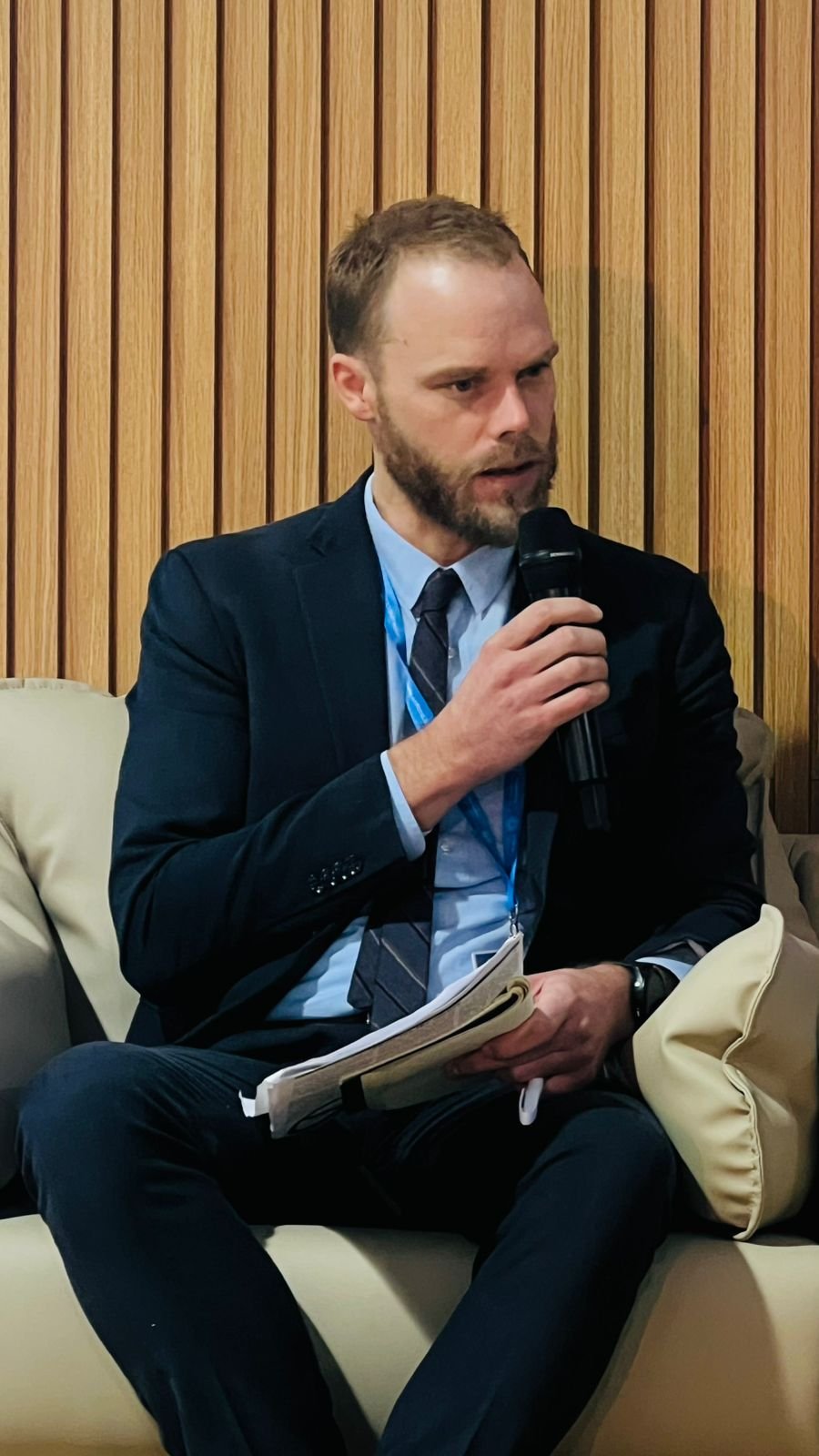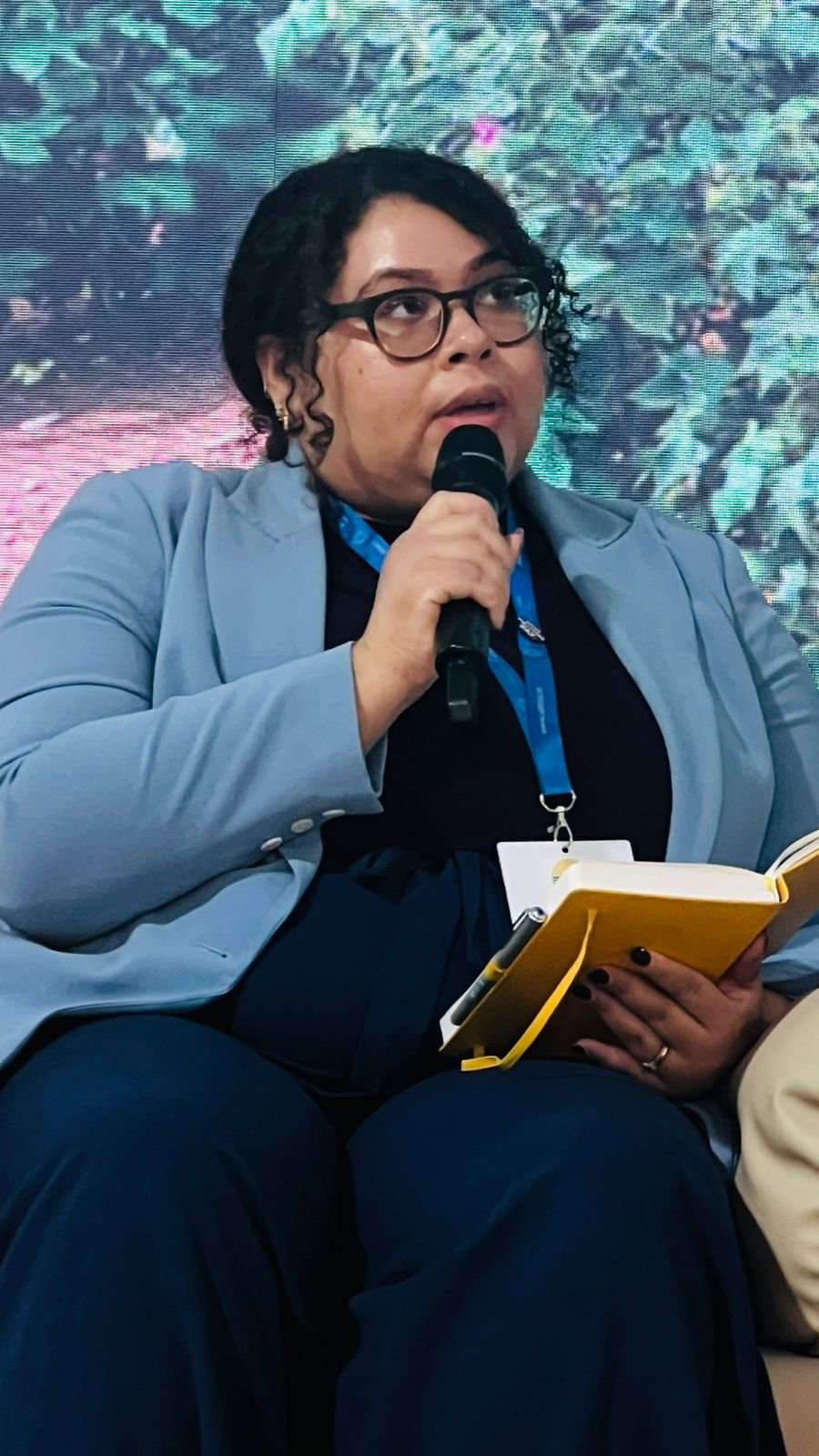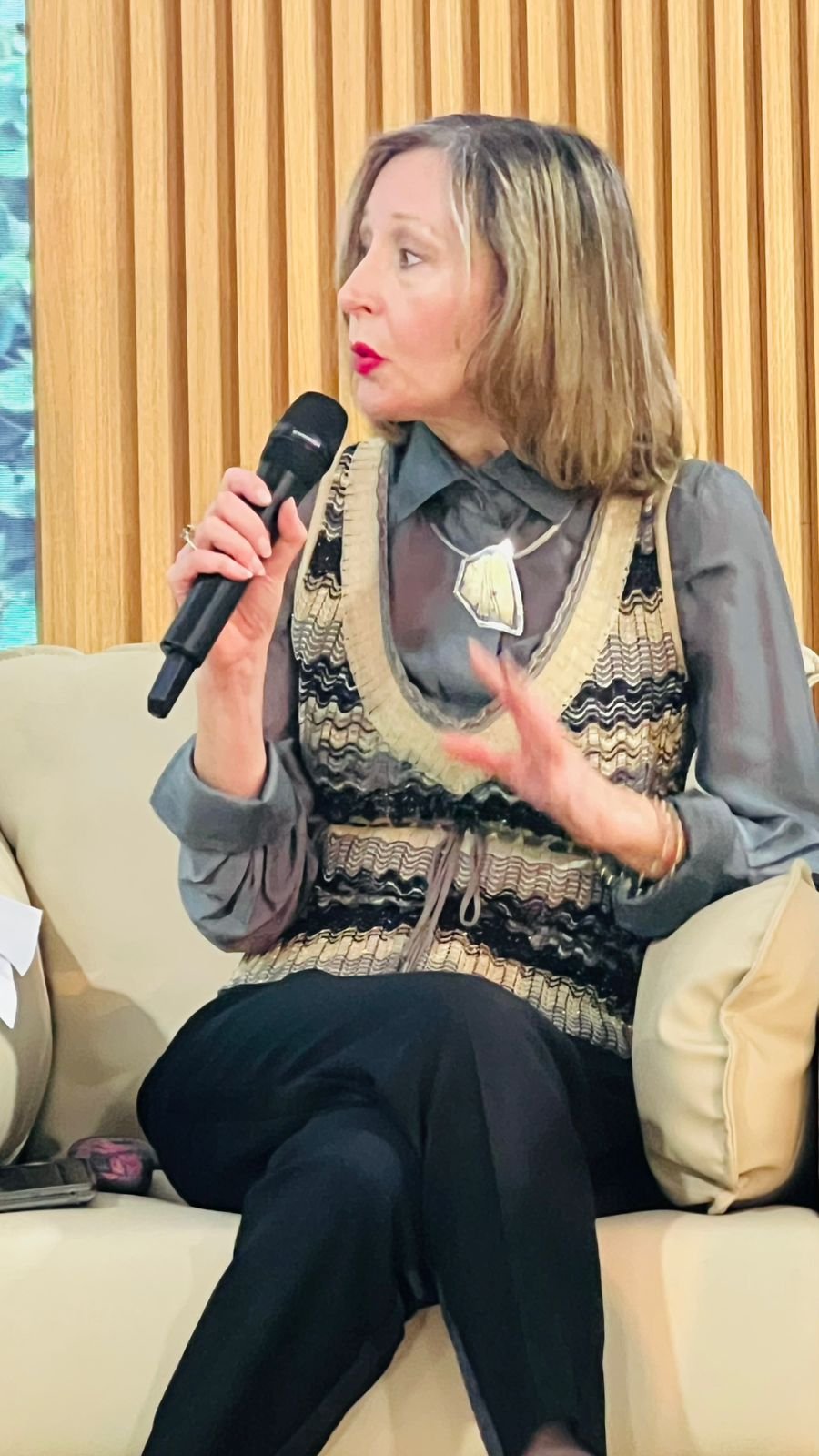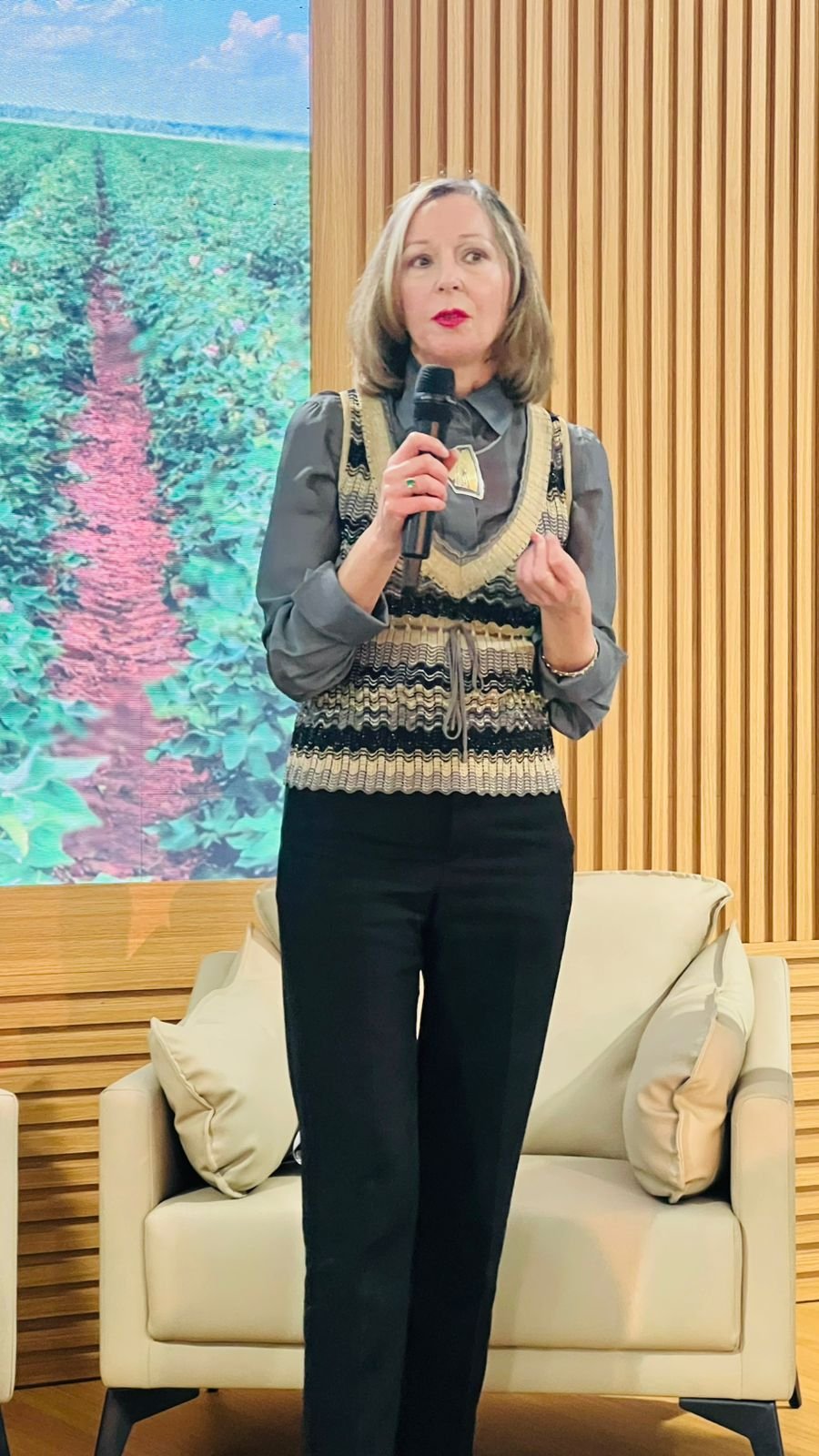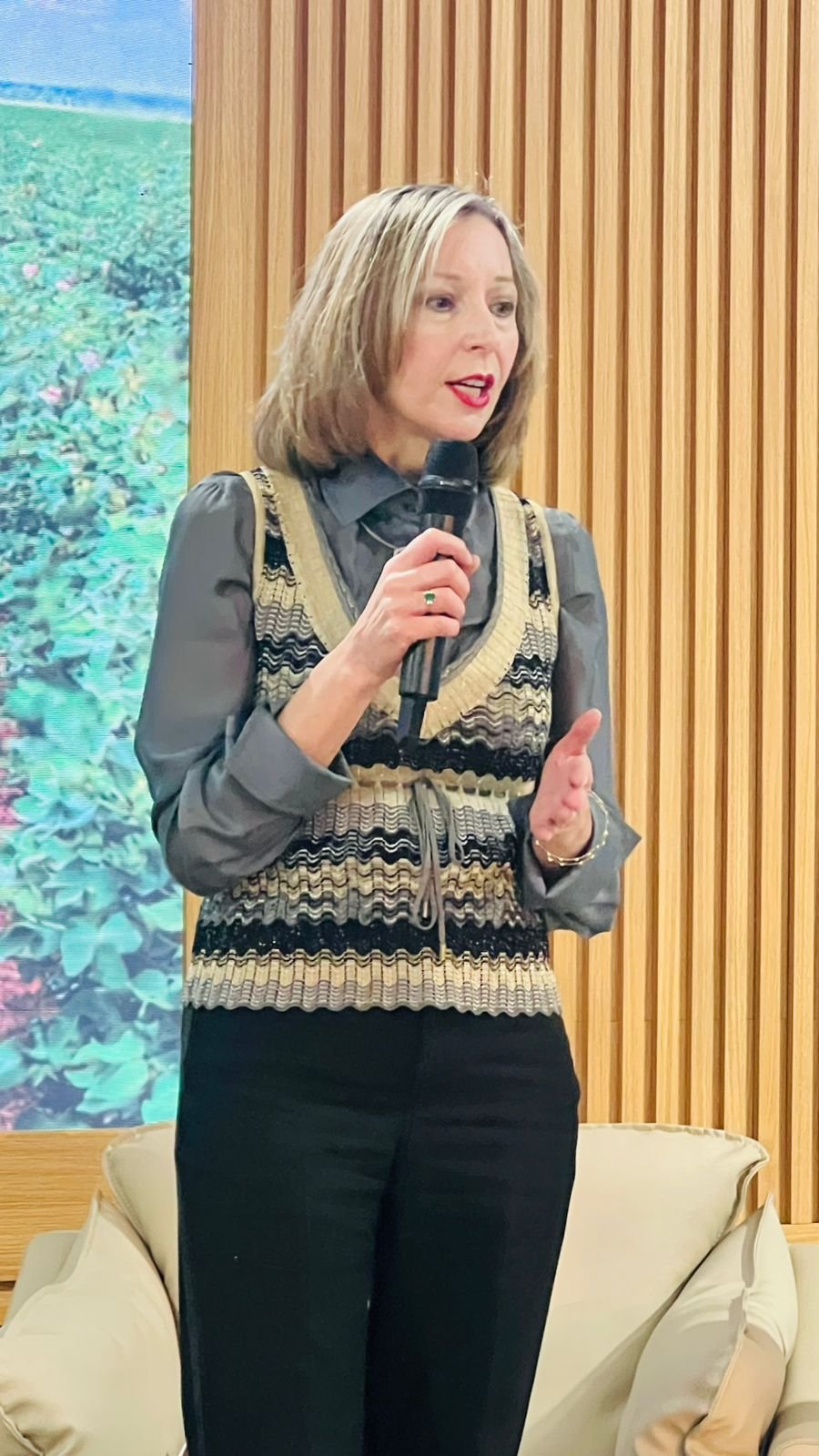#COPSoil in Action: CA4SH drove the needle forward for soil health at UNFCCC COP29
11-22 NOVEMBER 2024: The UN Climate Convention COP29 was held in Baku, Azerbaijan, themed In Solidarity for a Green World. Earlier this year, the COP29 Presidency, the United Arab Emirates (UAE) COP 28 Presidency, and the Brazilian COP 30 Presidency sent a letter to parties posing a global challenge to increase cross-sectoral engagement, from local to global levels, to keep 1.5°C within reach.
The Coalition of Action 4 Soil Health (CA4SH) is a motivated, multi-stakeholder coalition working to strengthen, facilitate and accelerate the adoption and scaling of soil health restoration practices. Soil health drives productivity and economic growth, rural livelihoods, biodiversity protection, and mitigation and adaptation to the climate crisis. Healthy soil can contribute to achieving all 17 of the UN Sustainable Development Goals, and is fundamental to achieving SDG 1 (End Poverty), 2 (Zero Hunger), 3 (Good Health and Wellbeing), 5 (Gender Equality), 6 (Clean Water and Sanitation), 7 (Affordable and Clean Energy), 9 (Industry Innovation and Infrastructure), 11 (Sustainable Cities and Communities), 12 (Responsible Consumption and Production), 13 (Climate Action), and 15 (Life on Land).
At COP29, CA4SH convened members, partners, and other stakeholders to underscore the critical importance of including soil in the climate proceedings. CA4SH held and participated in several sessions that teased apart the intricacies of scaling global soil health on the ground through finance, policy, support for farmers and land managers, and more.
Keeping soil health on the climate agenda is an overarching objective of CA4SH, and at COP29, the power of multistakeholder voices was heard.
Read on for an overview of our engagement!
Financing Soil Health and Restoration for Food Systems Transformation
Increasing financial support for soil health must be part of the broader climate finance agenda, or else we leave farmers to face the dual barriers of affordability and access to financial support to adopt healthy soil practices.
In their joint letter, the COP28, COP29, and COP30 Presidencies stressed that “finance must be made more available, accessible, and affordable at every level.” This event was organized by CA4SH, CIFOR-ICRAF, One Acre Fund, and A Wisdom Keepers Delegation. The focus was on how to finance soil health and soil restoration, at multiple scales (from farm to national to international levels).
Speakers discussed how to harness the potential of healthy soil as a critical ally and a lever in climate mitigation and adaptation, combating drought, and biodiversity conservation, and strategizing on clear entry points for financing and policy interventions to achieve climate, biodiversity, and land targets. One avenue discussed was Strengthening Nationally Determined Contributions (NDCs), National Biodiversity Strategies and Action Plans (NBSAPs), and National Adaptation Plans (NAPs); learn more about what that looks like in the NDCs here! Speakers from One Acre Fund presented their innovative climate and soil financing approaches.
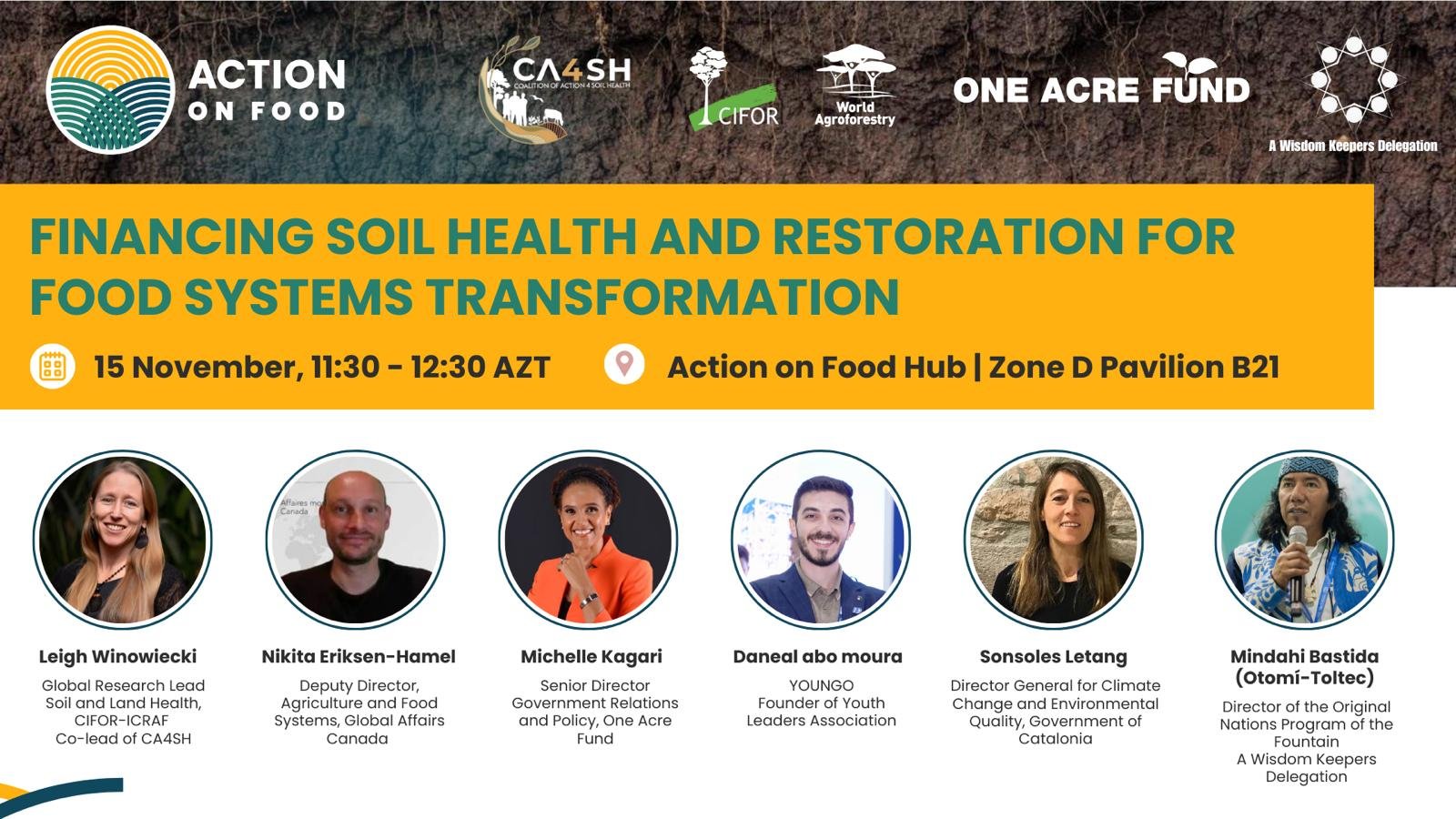
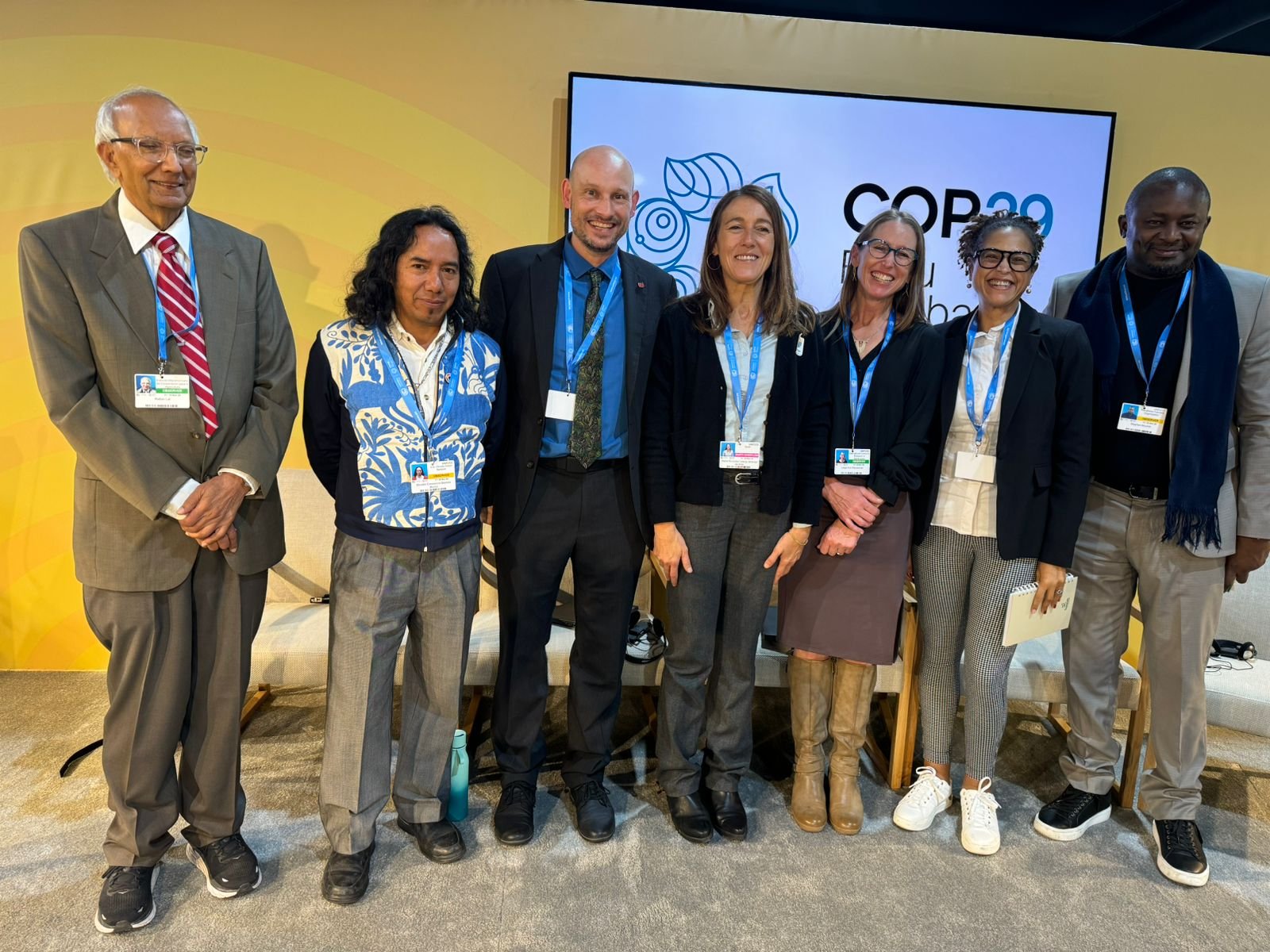
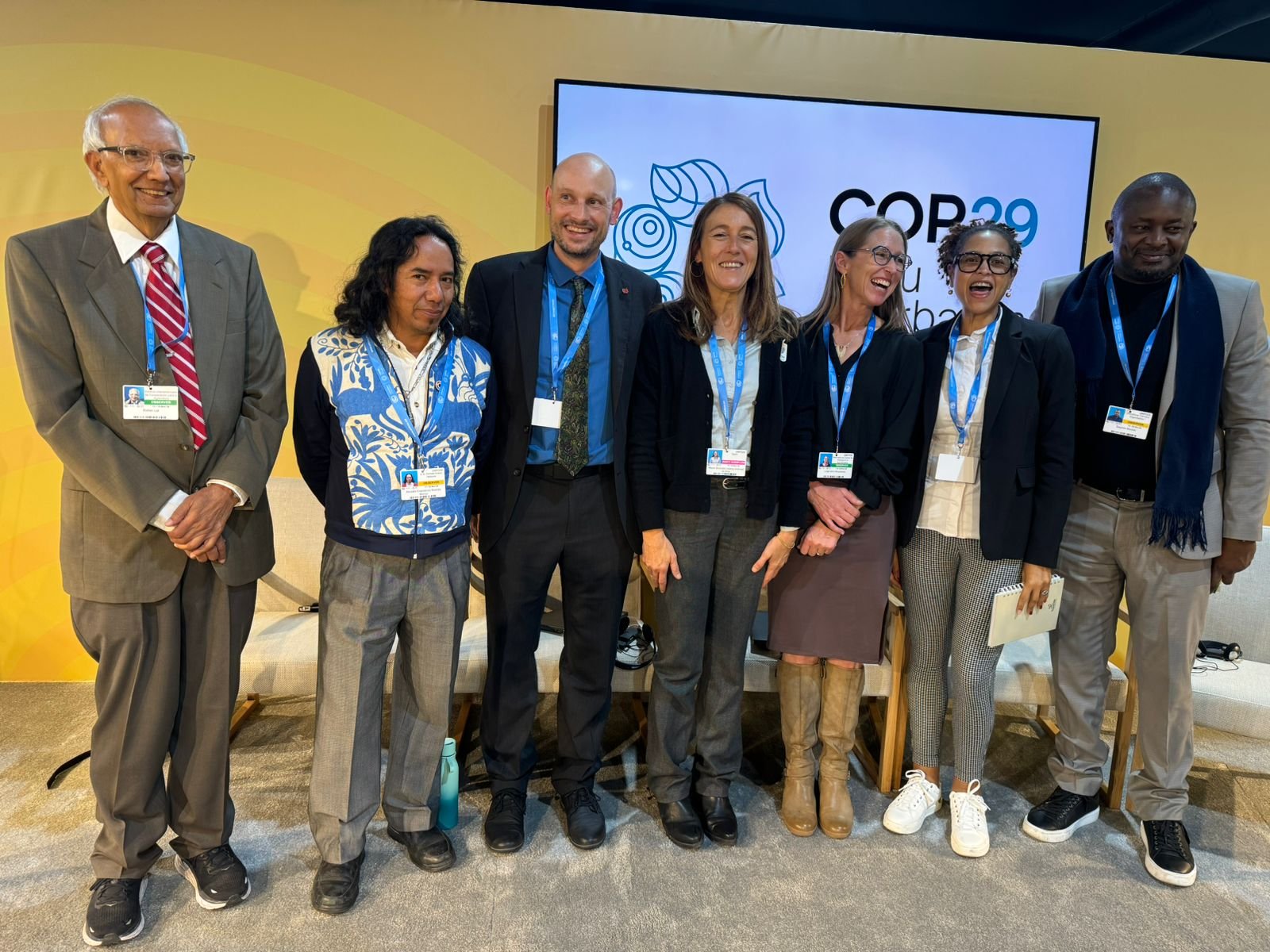
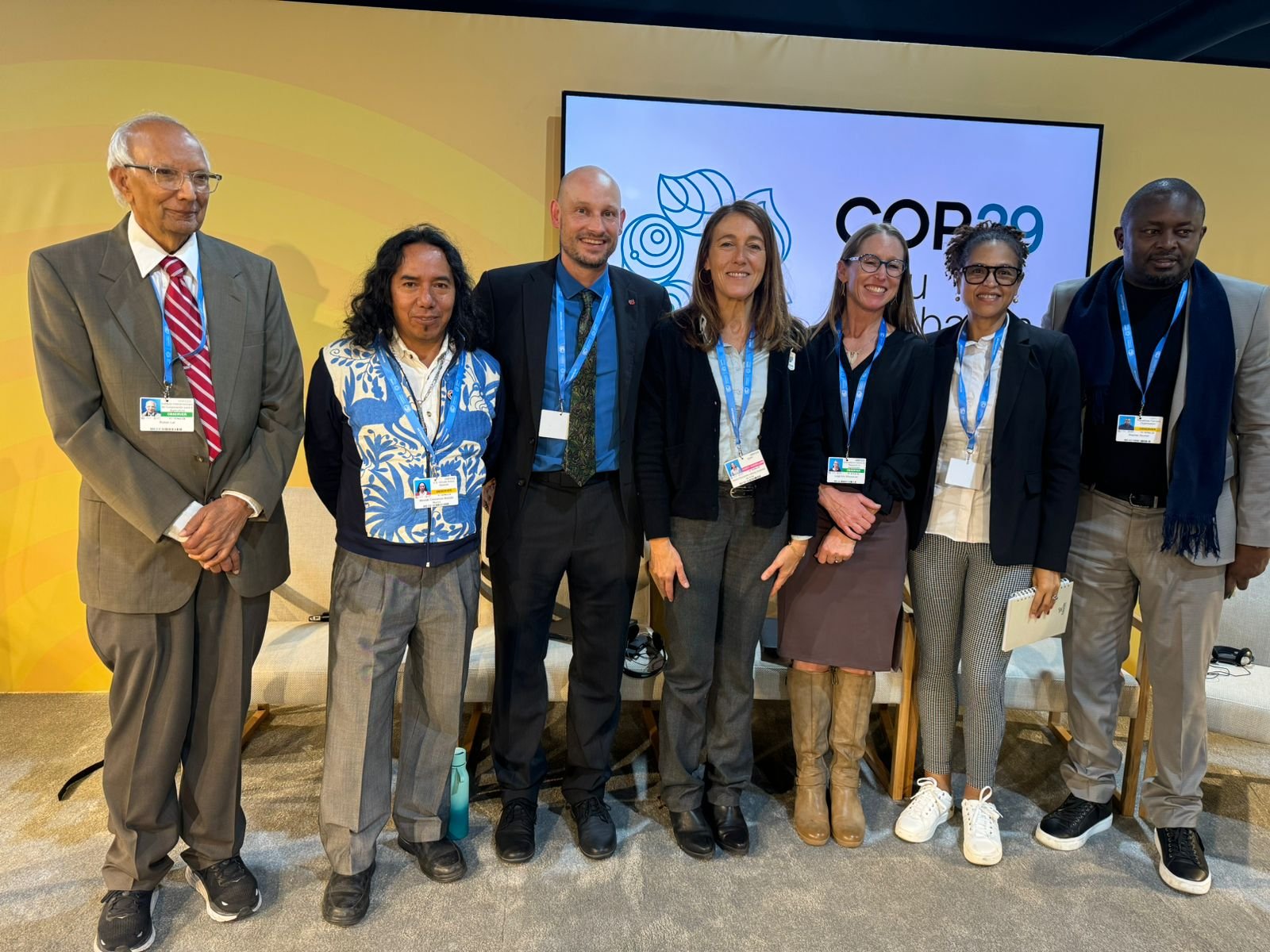
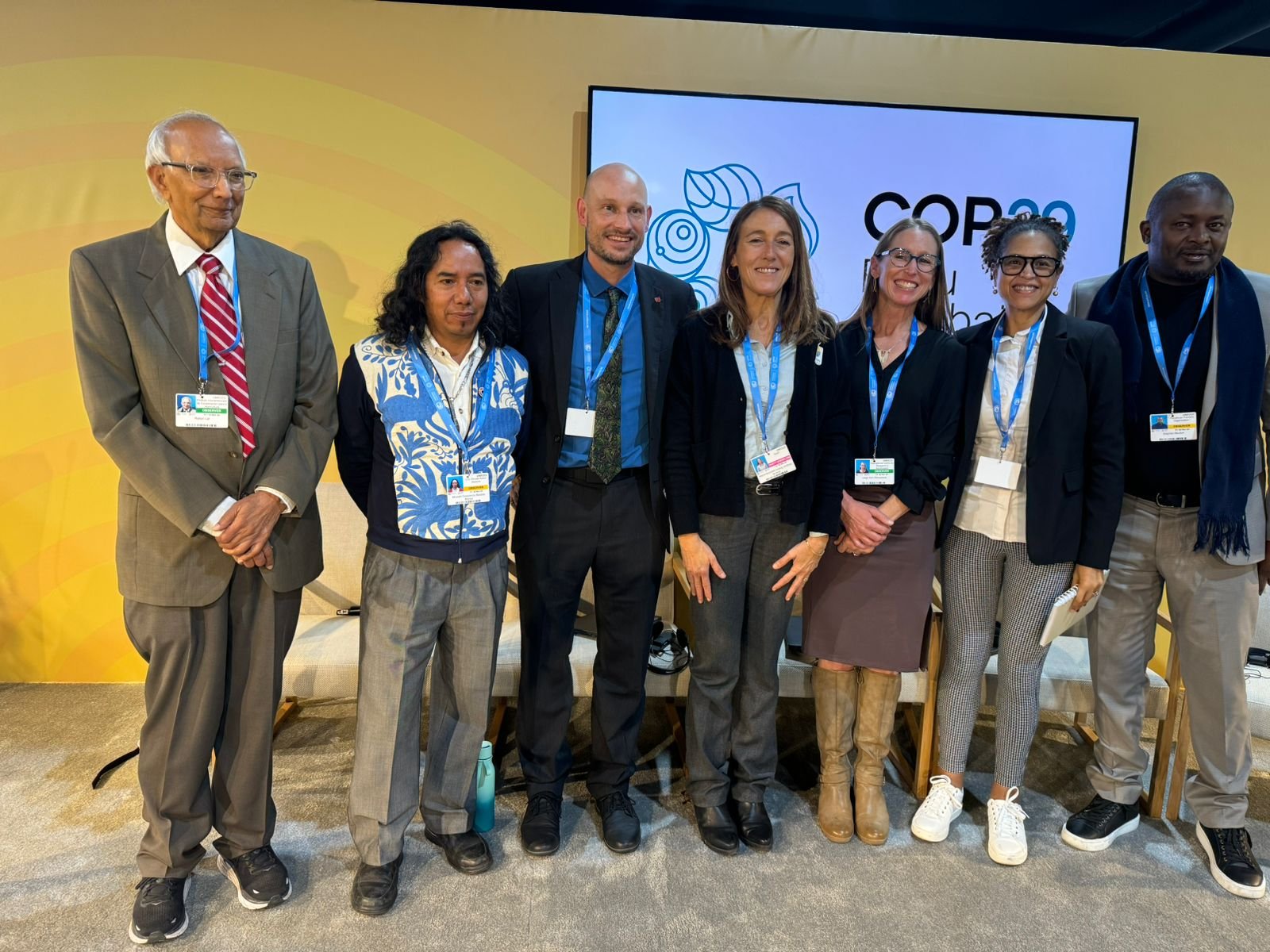
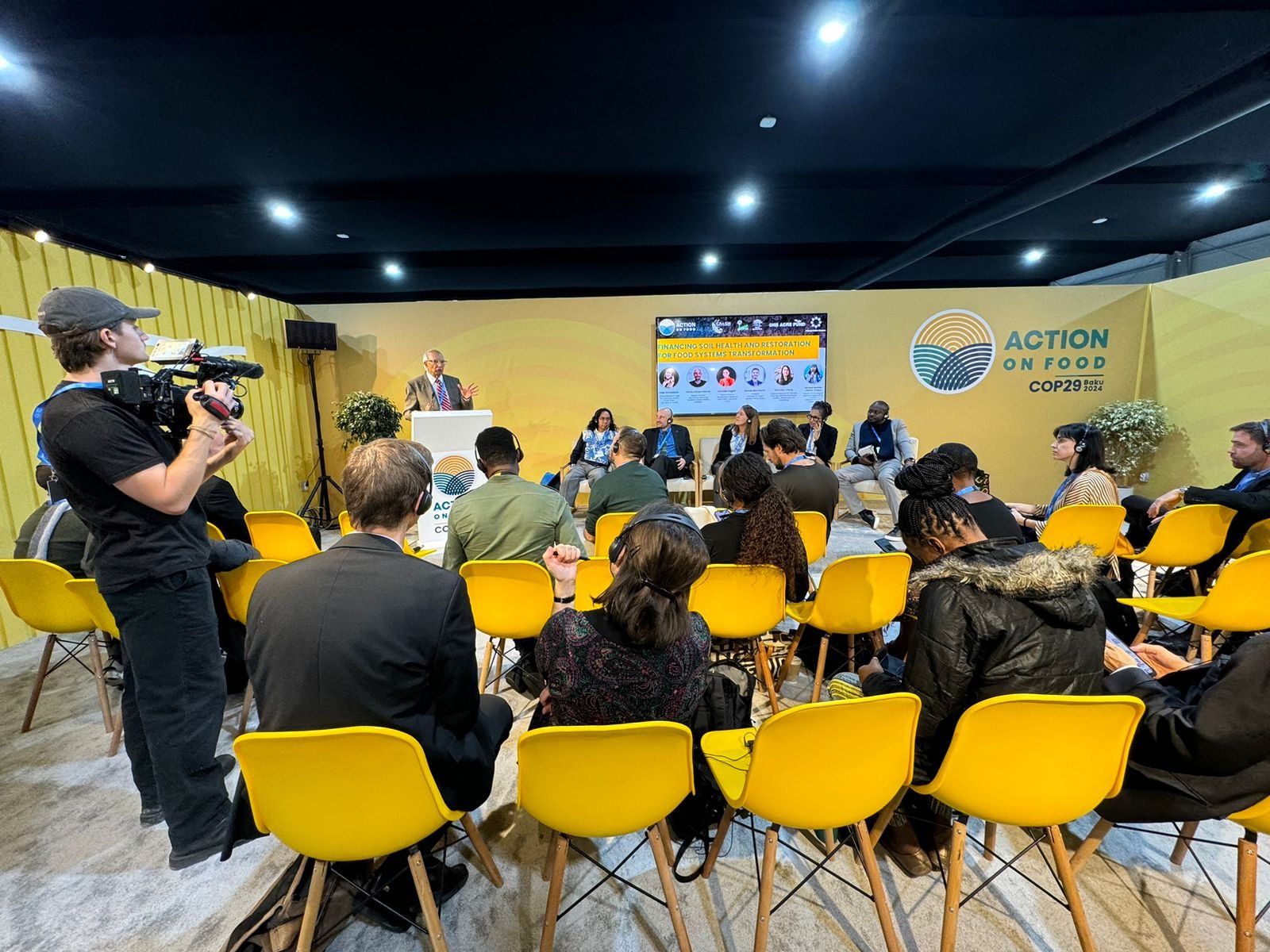
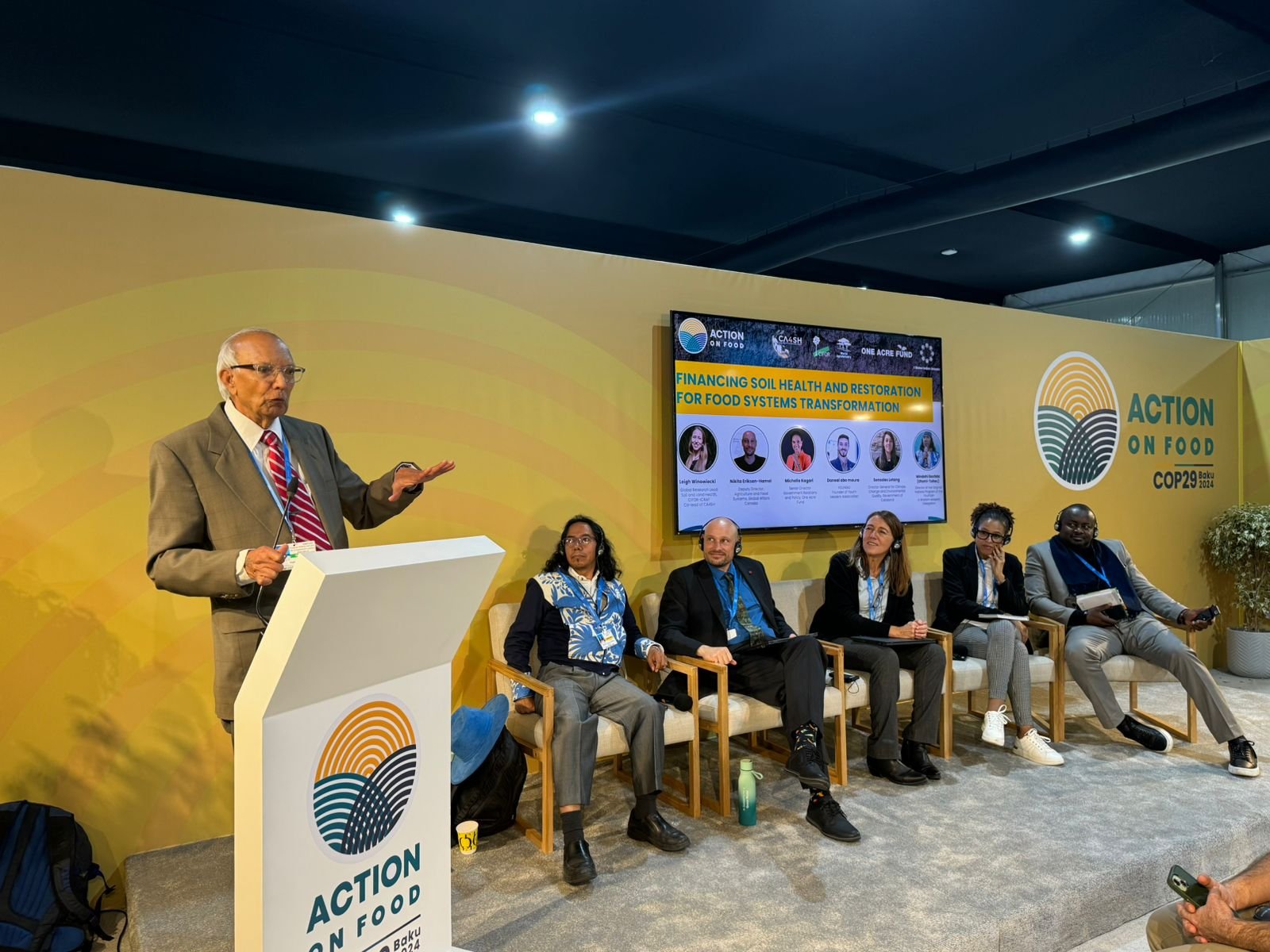
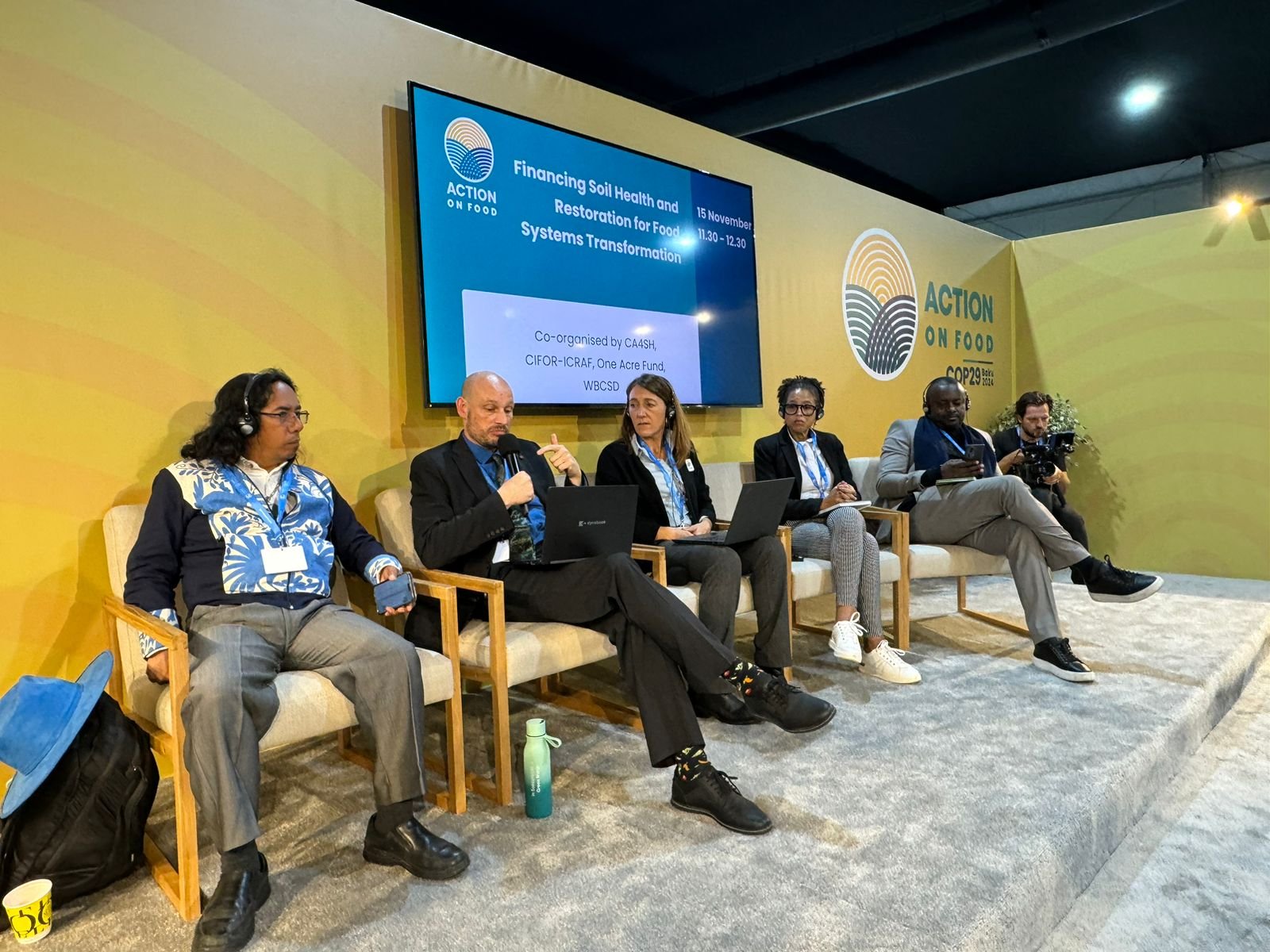
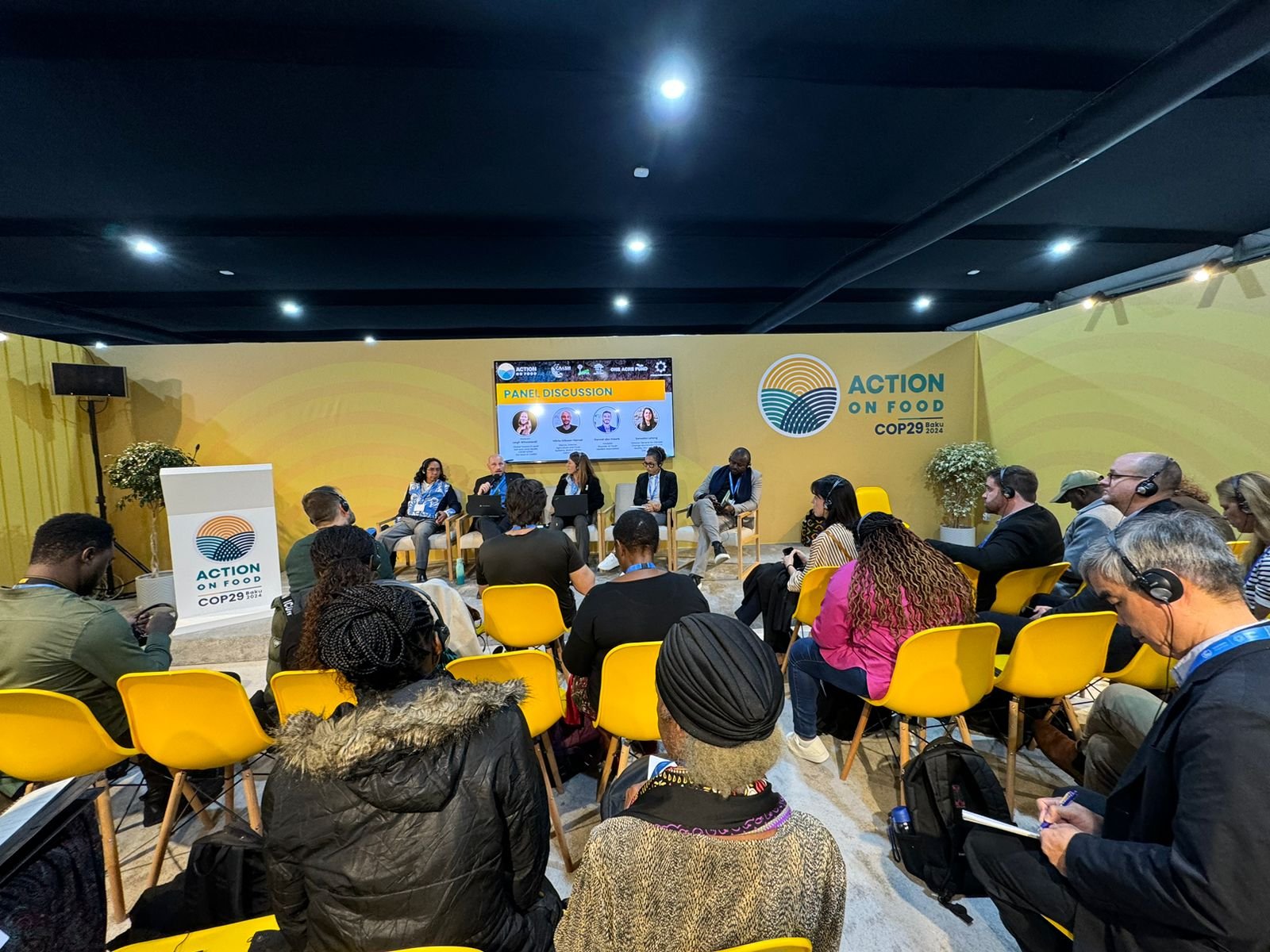
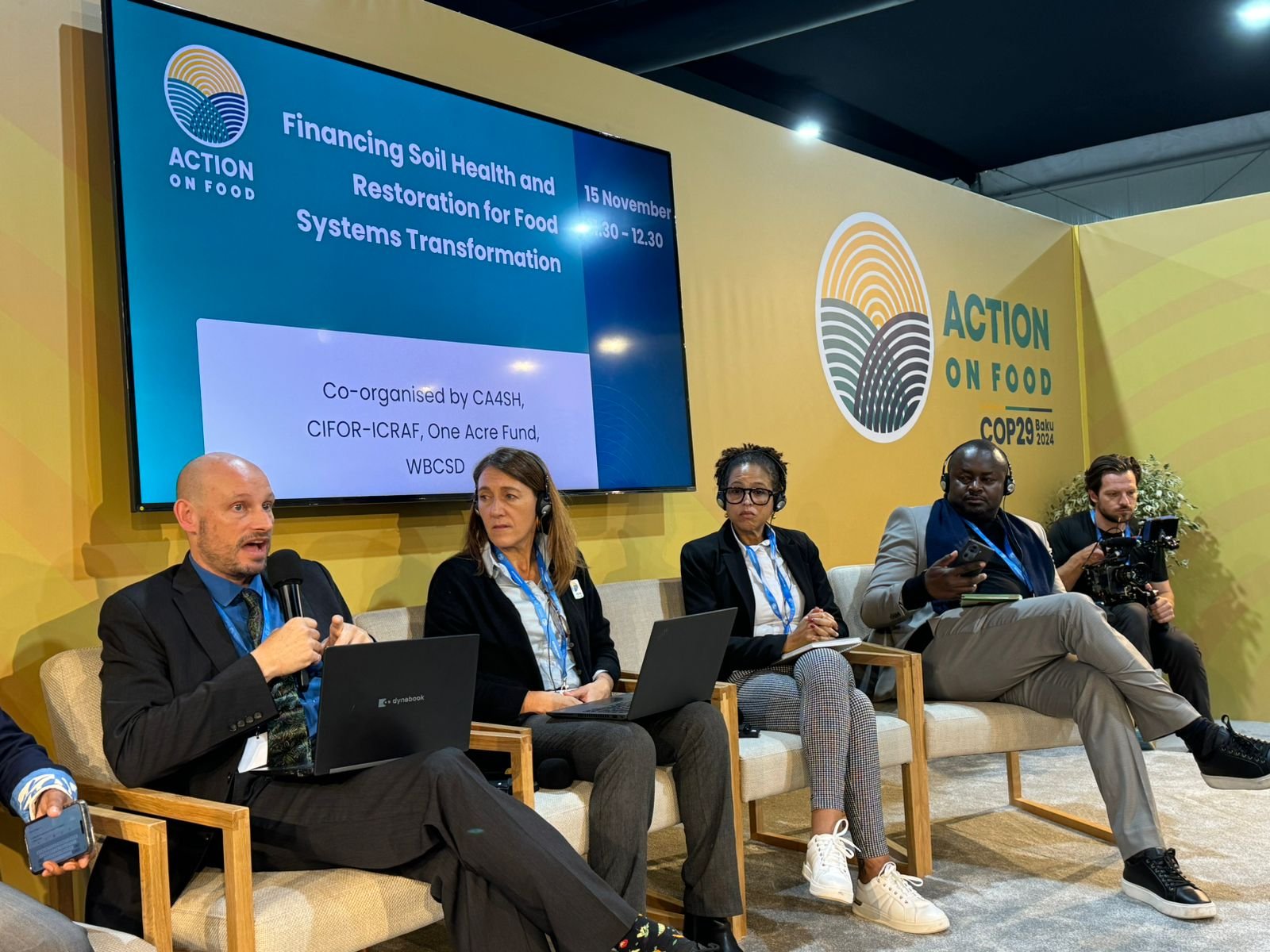


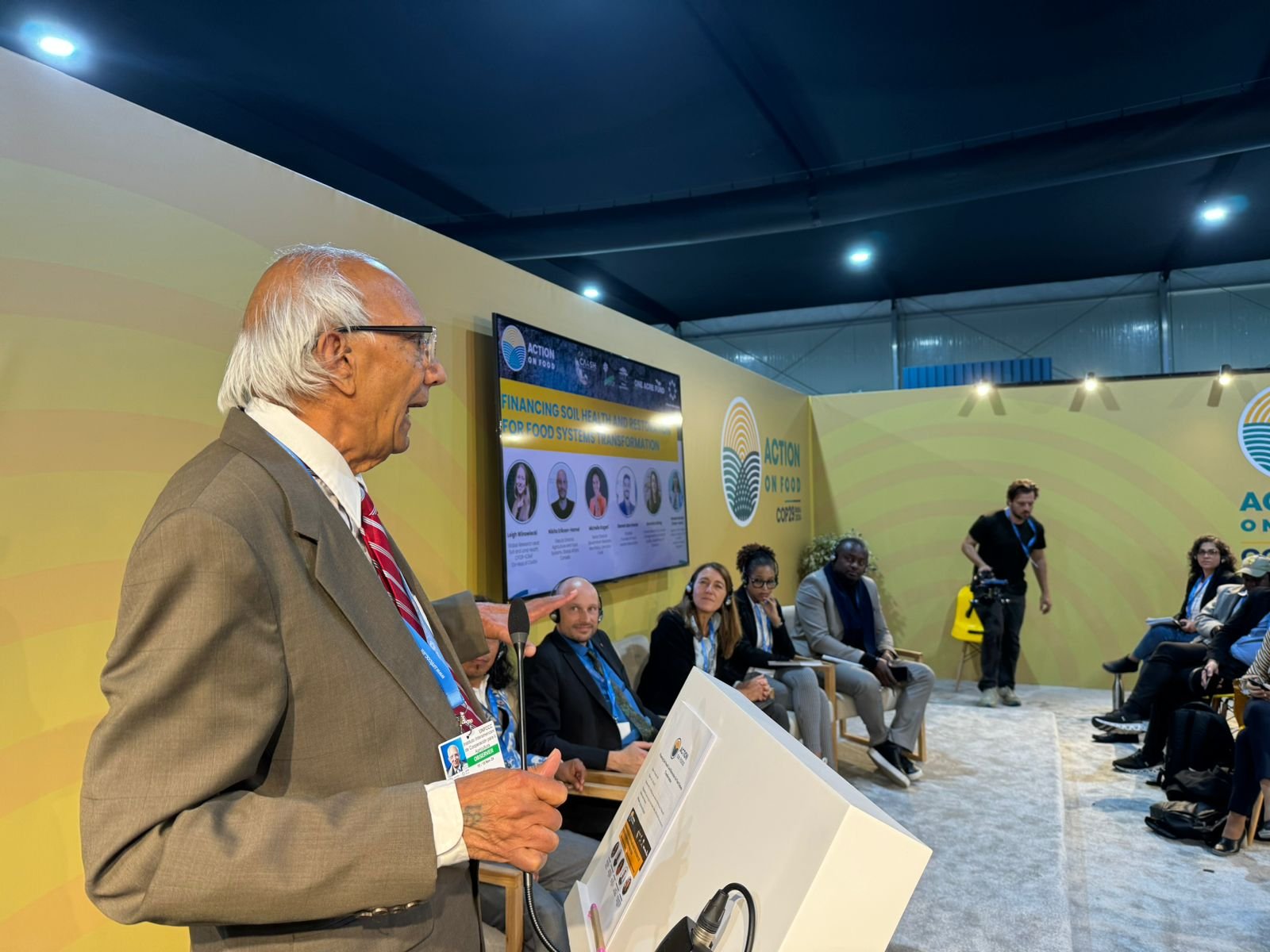
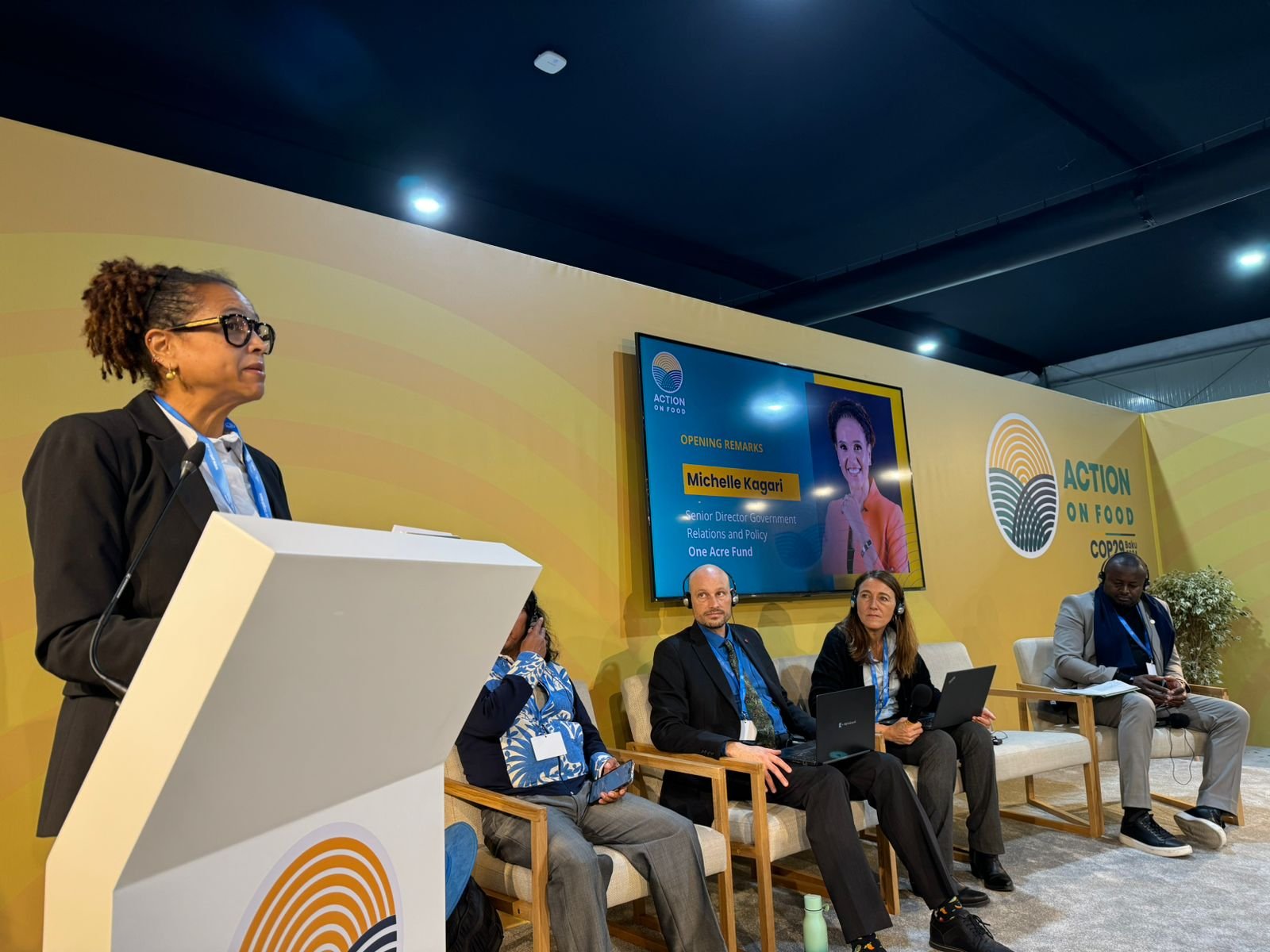
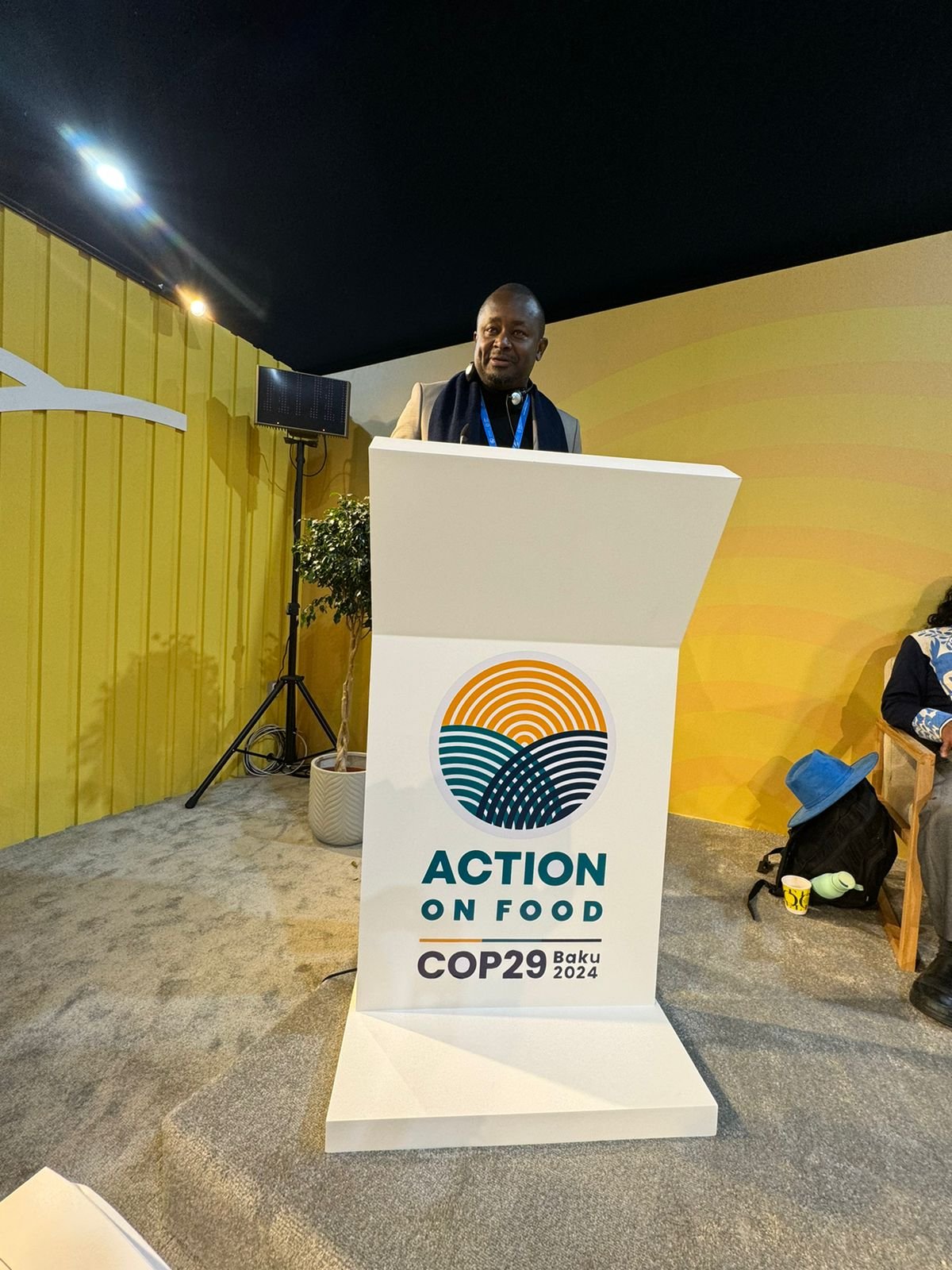
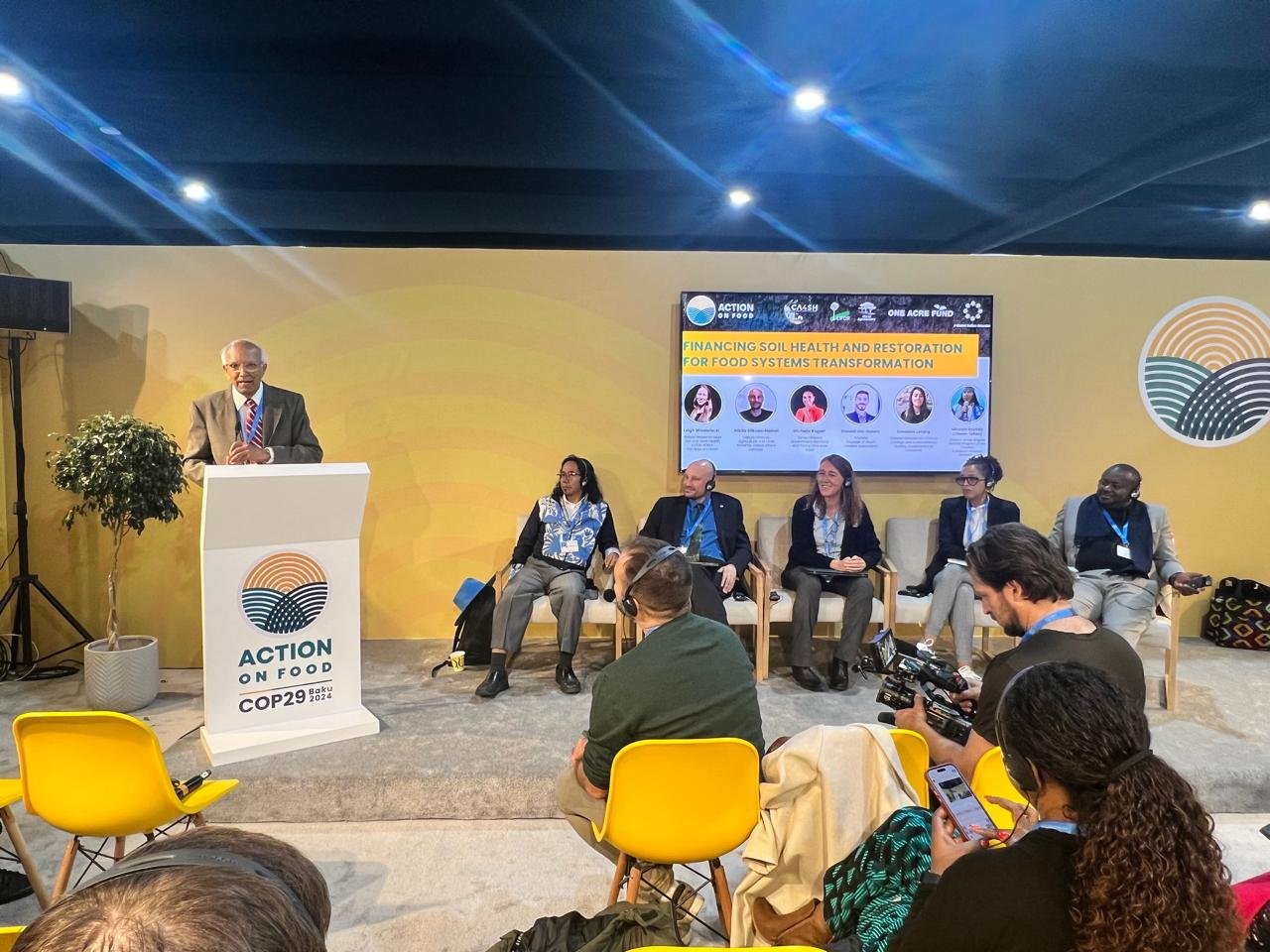
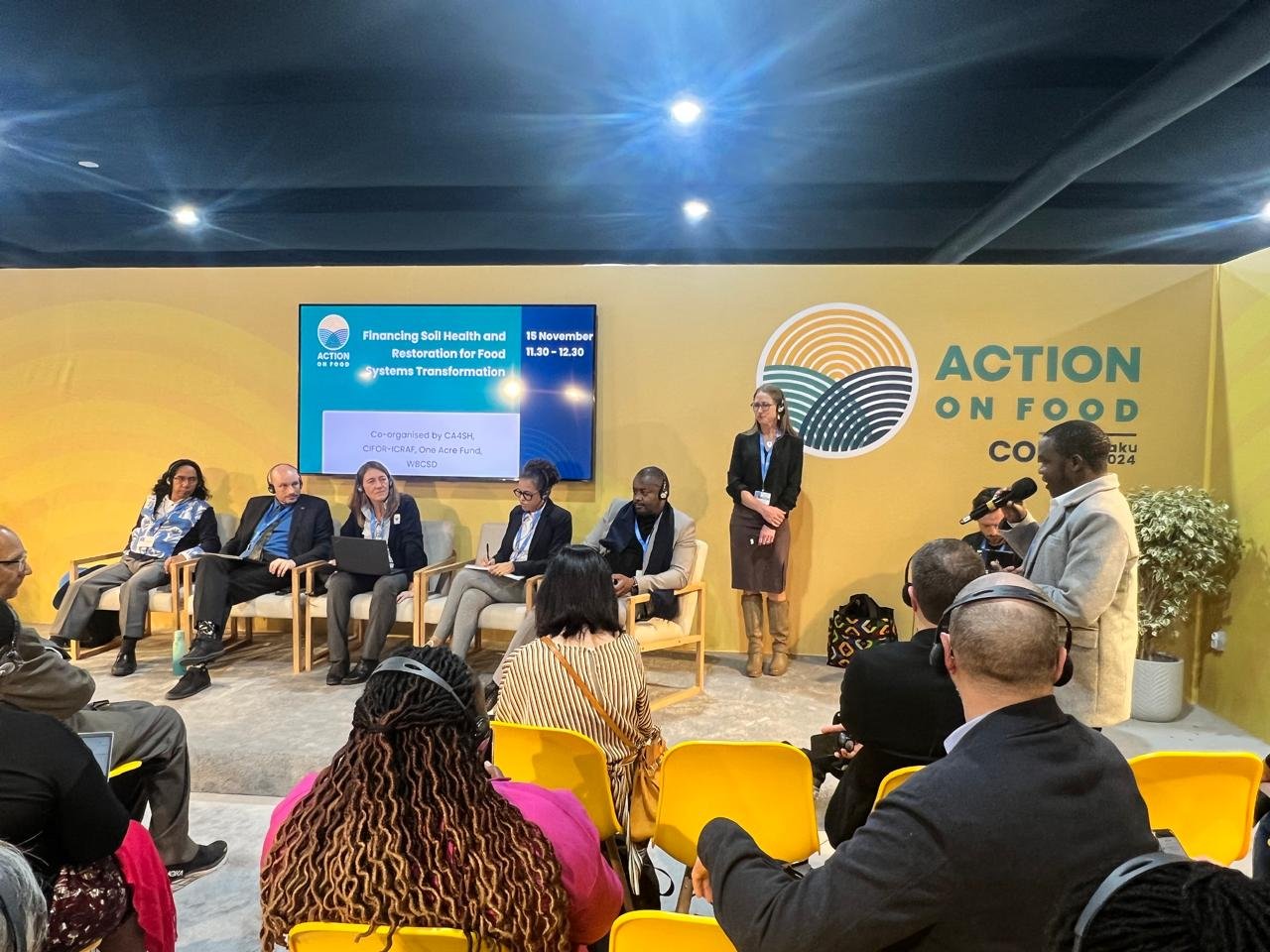

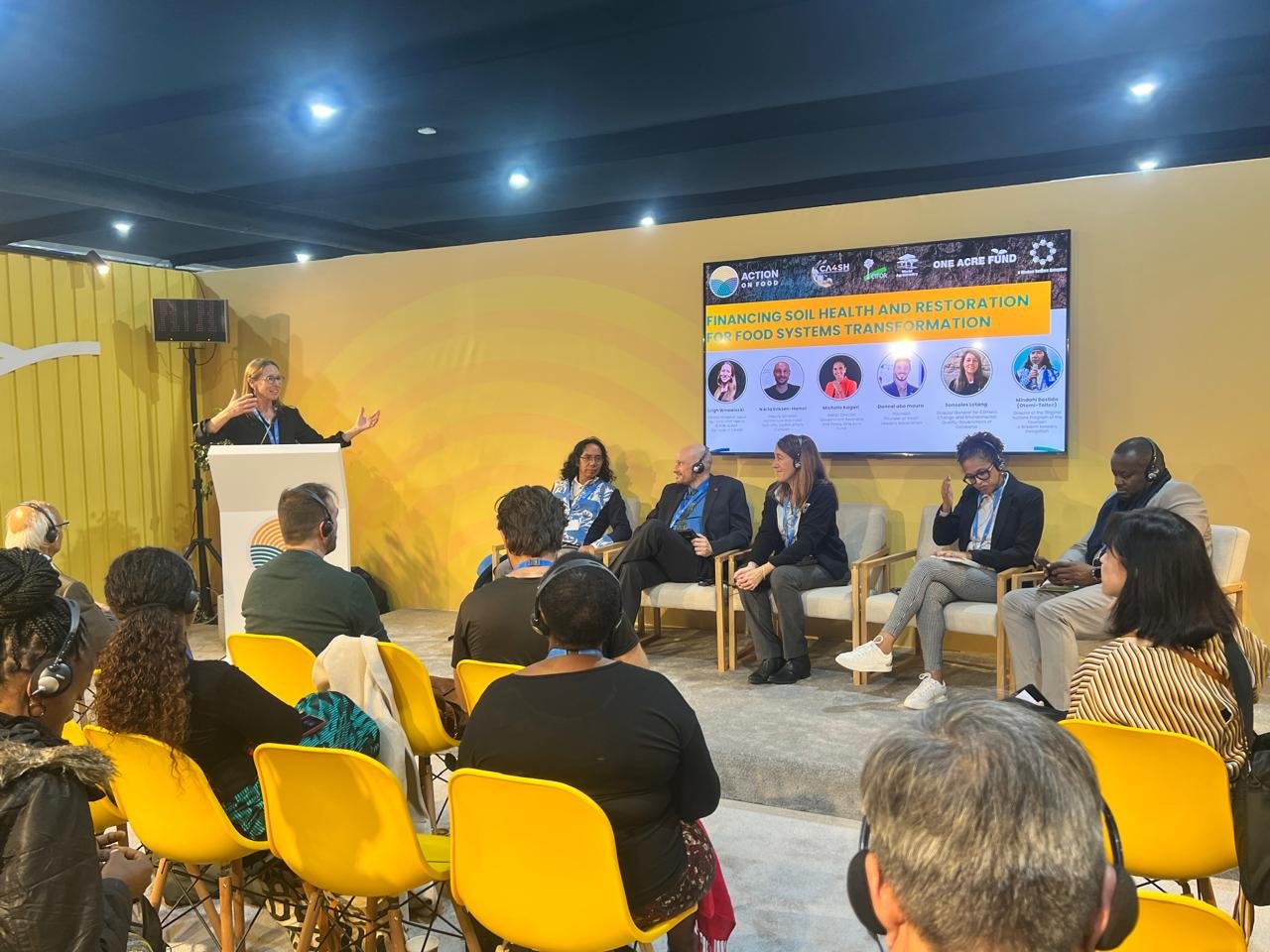

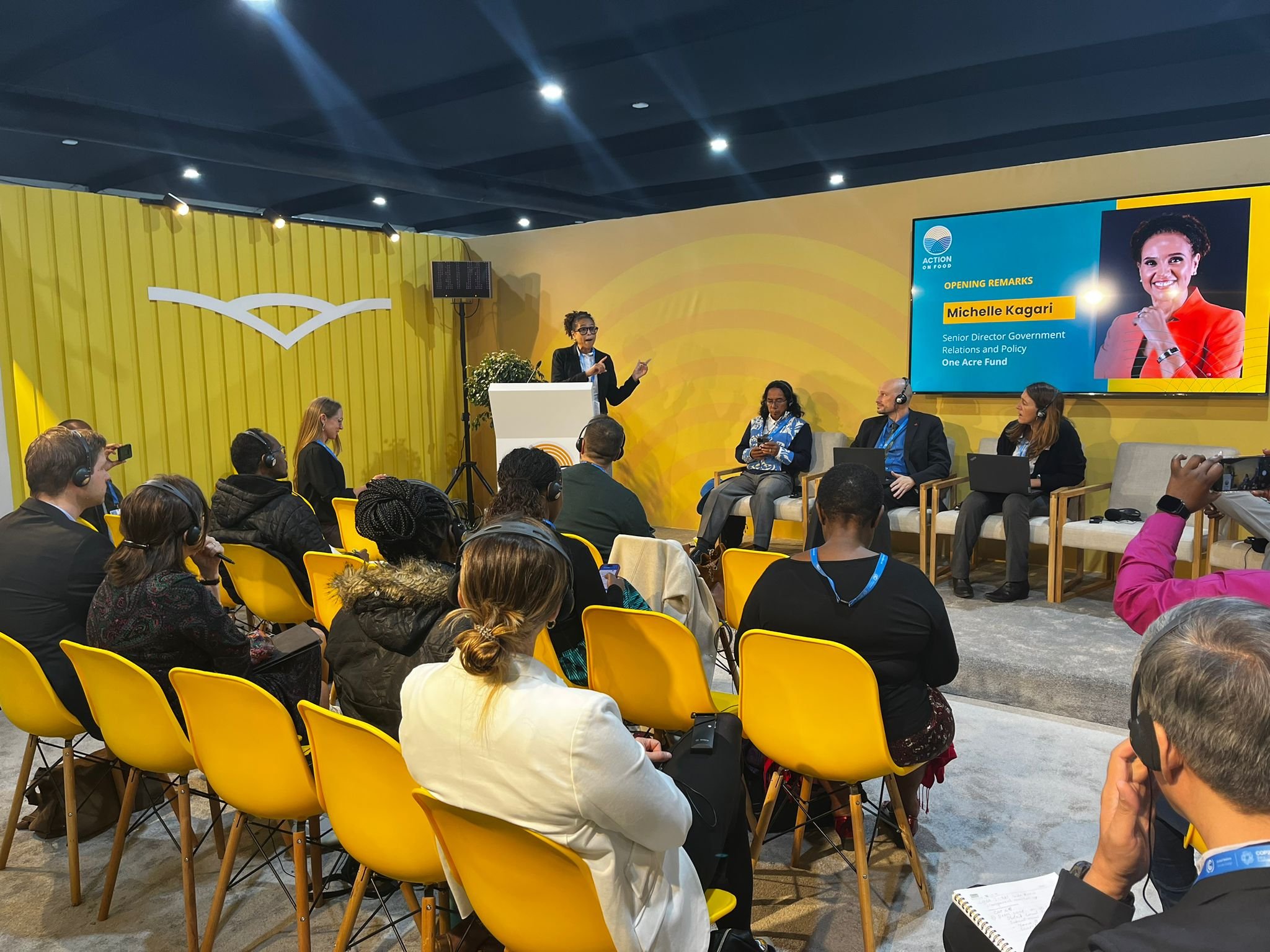

Towards Healthy, Inclusive and Sustainable Food Systems: Agroecology, Soil Health, and Healthy Diets
Food systems are responsible for 30% of greenhouse gas emissions, 80% of deforestation, 70% of freshwater use, and are the single greatest cause of terrestrial biodiversity loss and land degradation. Despite having sufficient food to feed 10 billion people with over 13% of food lost and 17% wasted each year, many cannot afford healthy diets. Additionally, only 30 crops provide 95% of human food energy needs.
With over one-third of the Earth’s surface degraded, soil’s ability to produce healthy and nutritious food is limited. Agroecology is a powerful lever for addressing soil degradation, climate, biodiversity, food security and nutrition, including precarious livelihoods and social inequalities faced by farmers and food system workers.
The session featured experiences, best practices and country-level approaches for scaling agroecology and soil health while producing diverse, nutritious and culturally appropriate foods for healthy diets. The session called for a holistic systems approach for transformation from farm to fork through community-led, multistakeholder action.

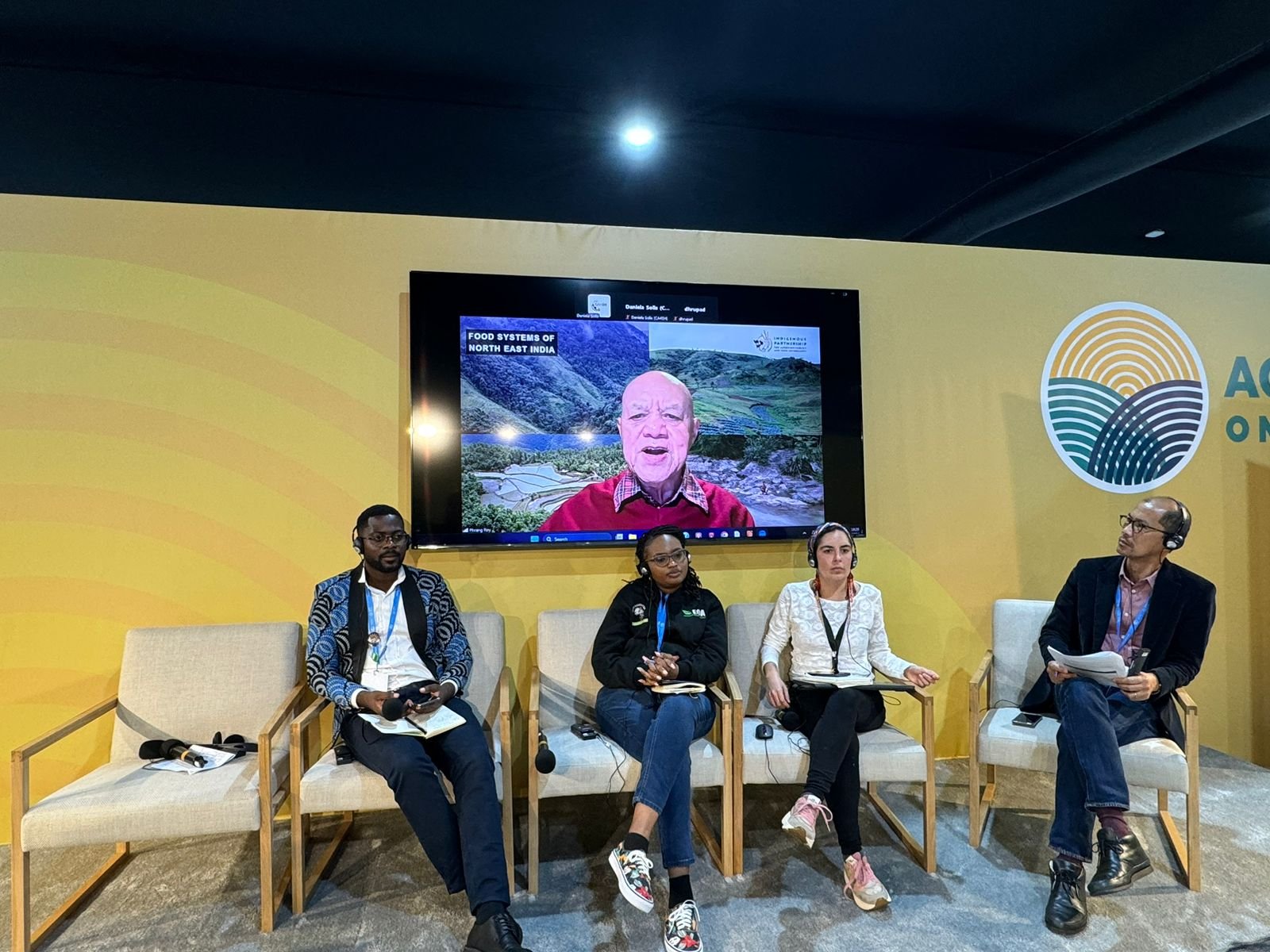
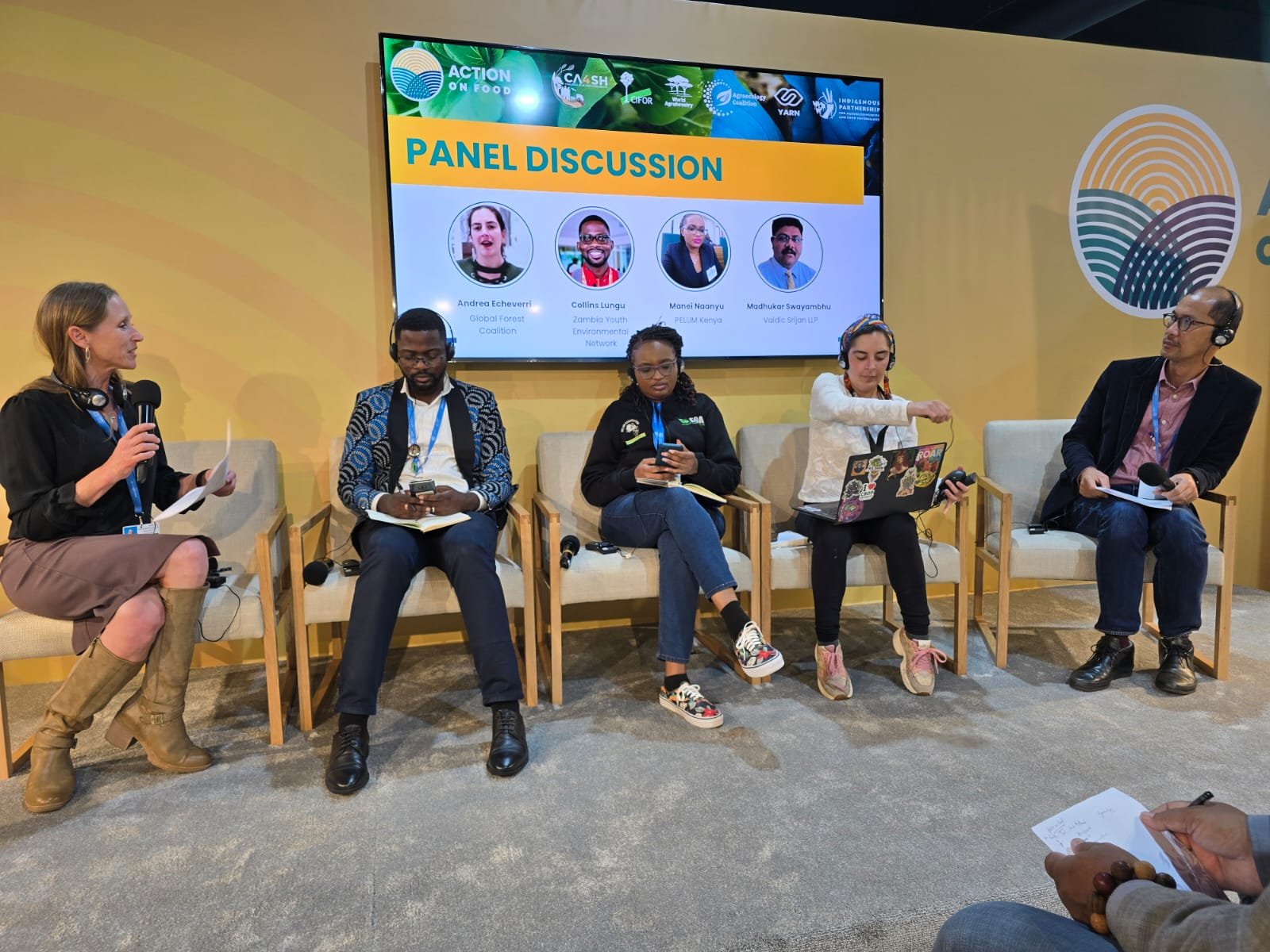
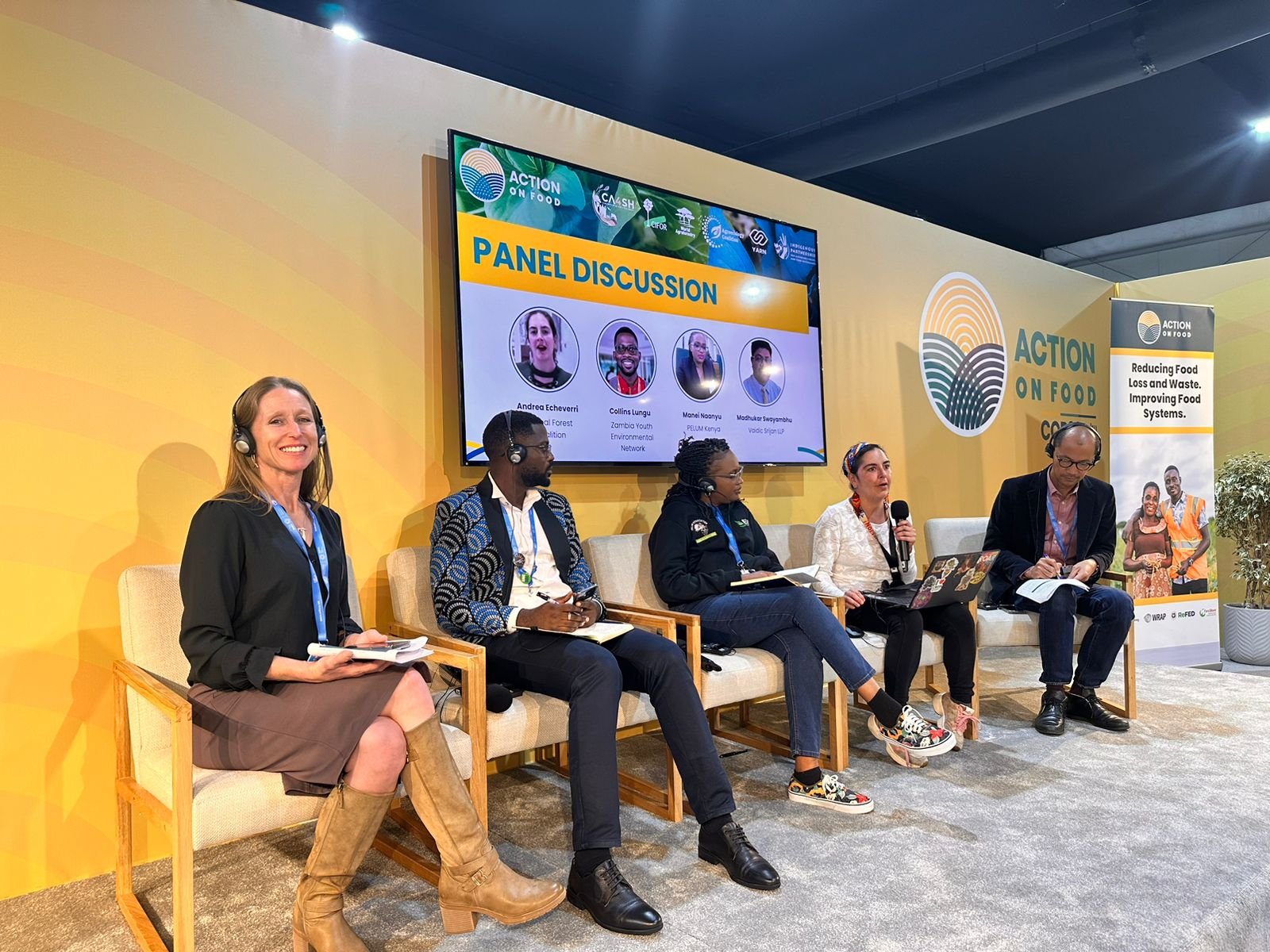

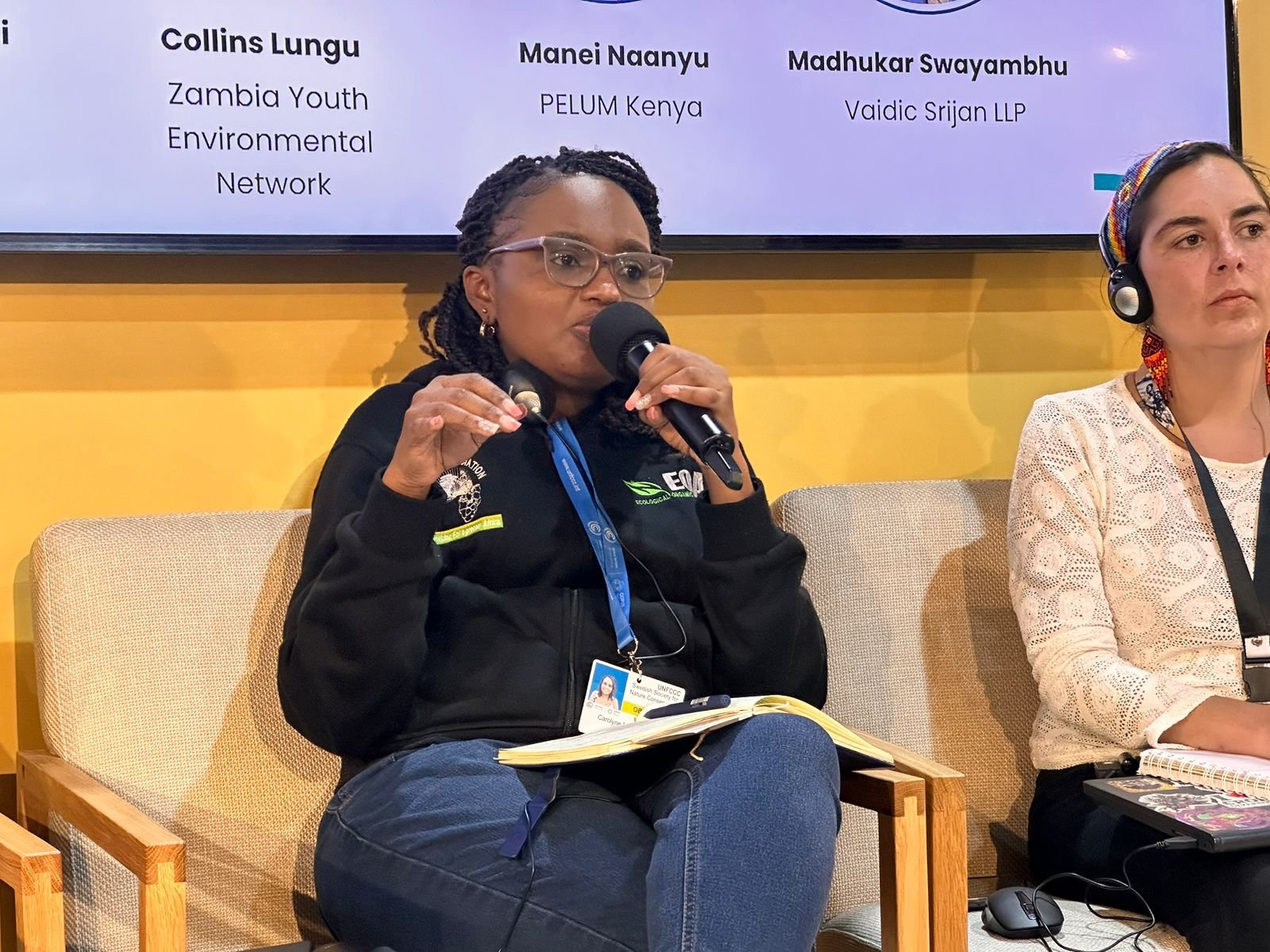
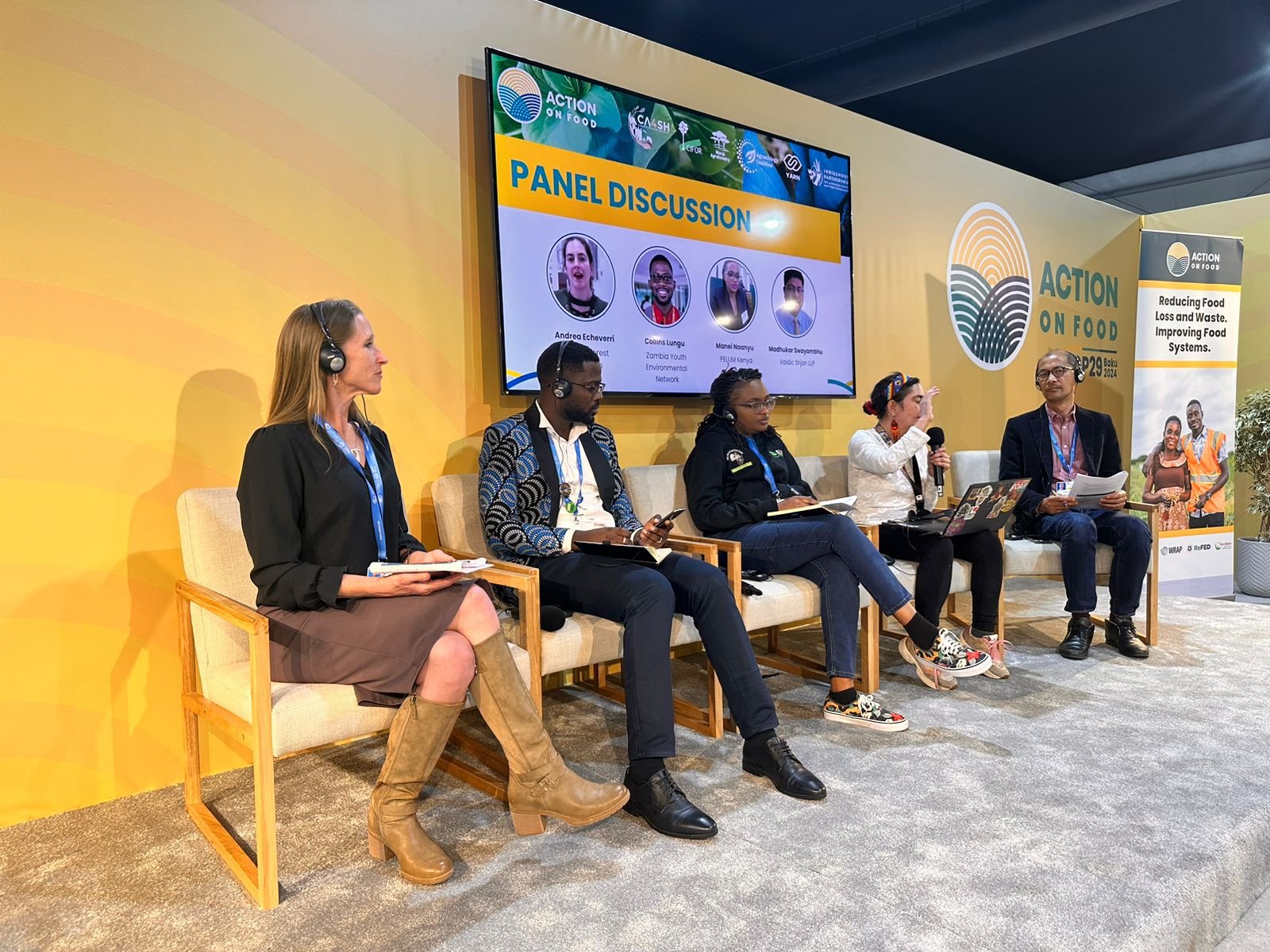
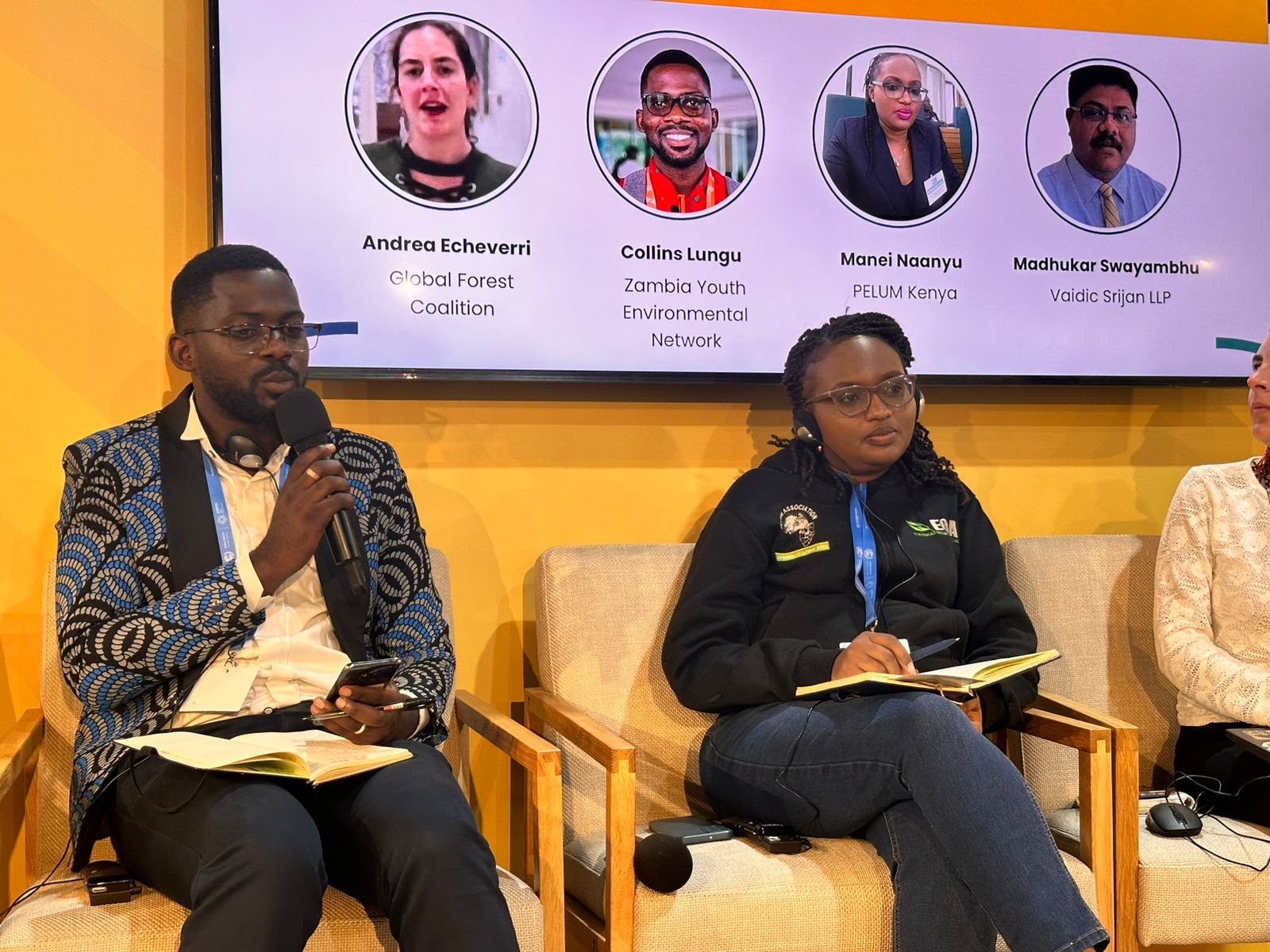
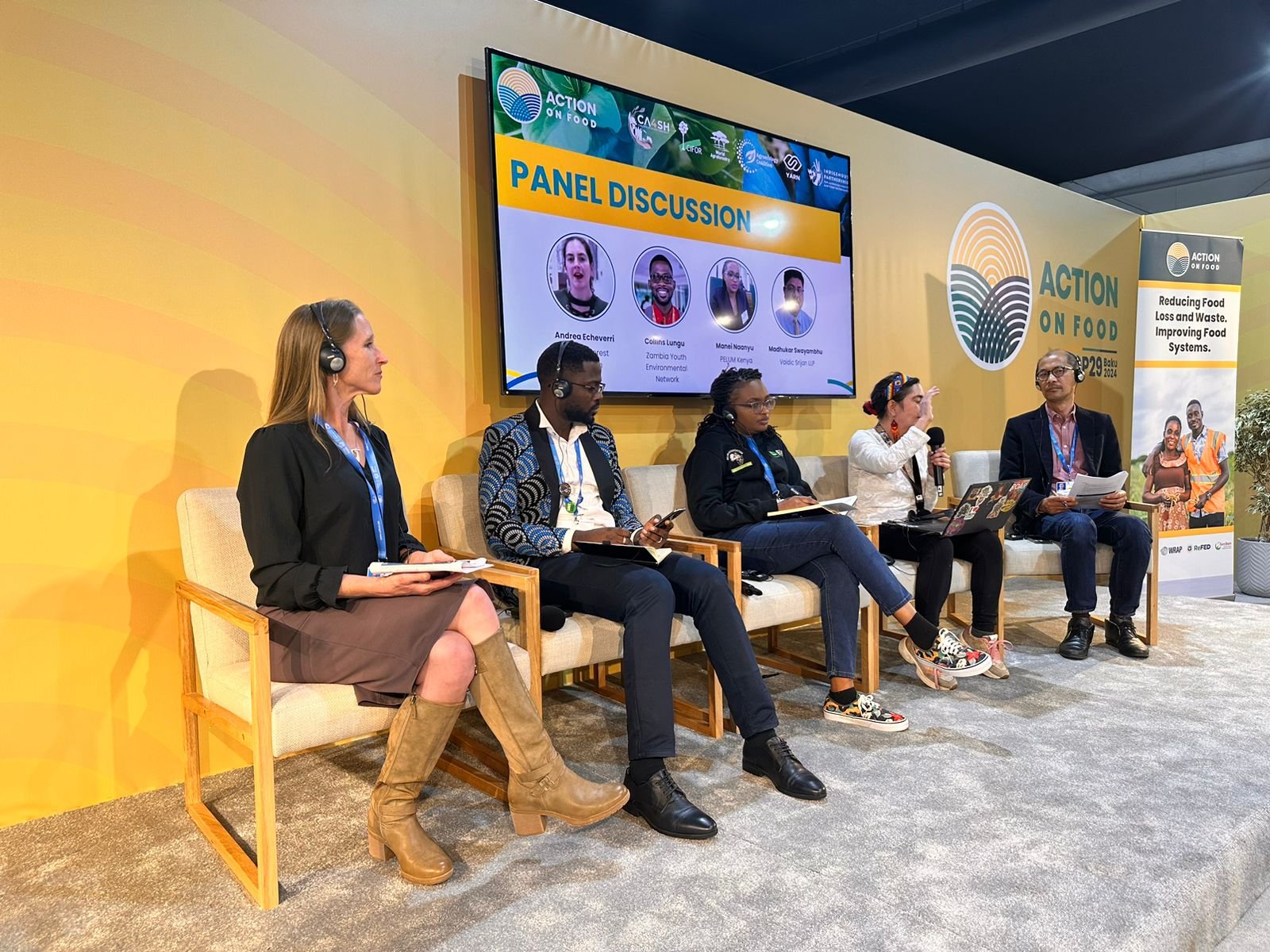


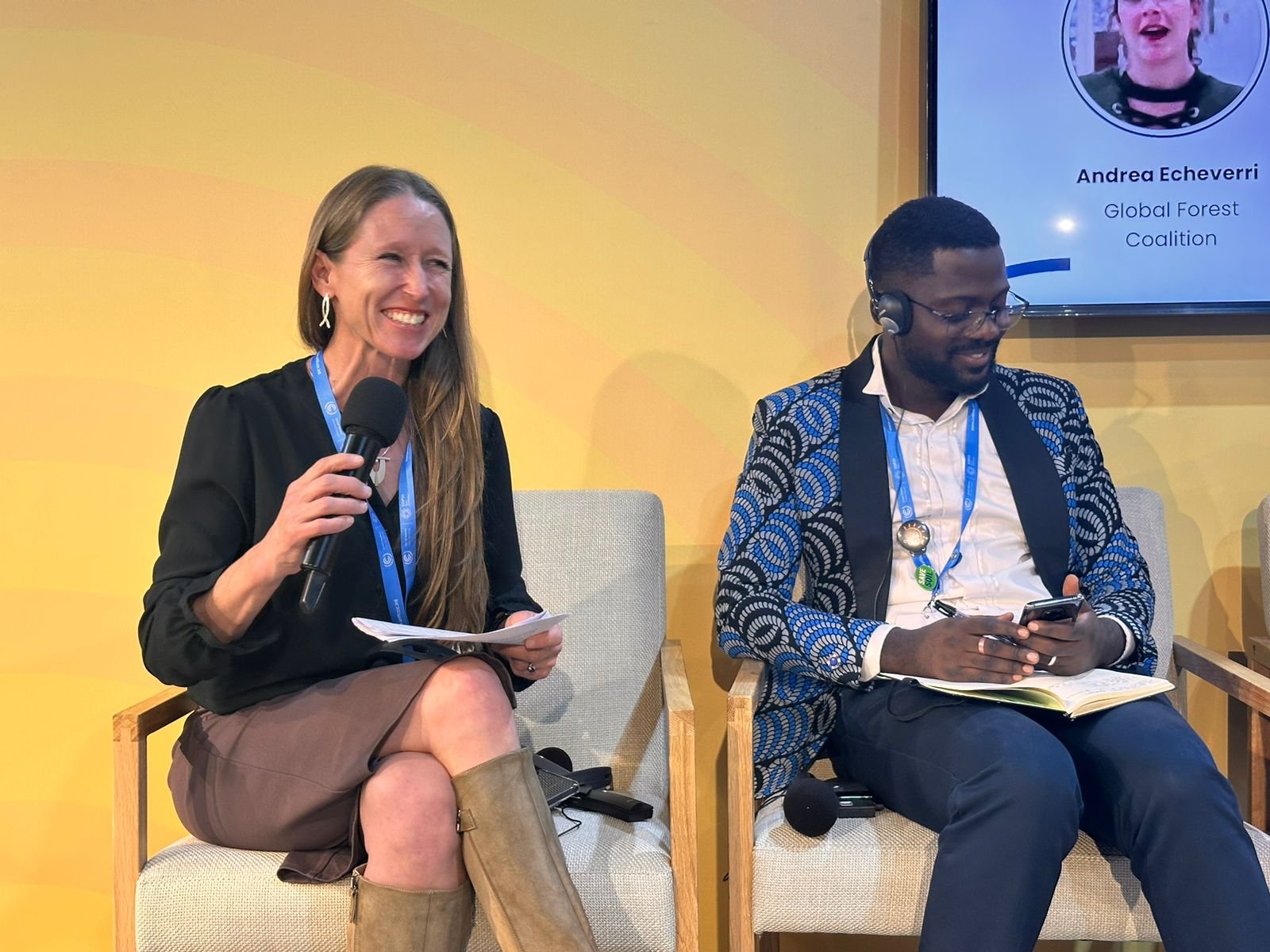



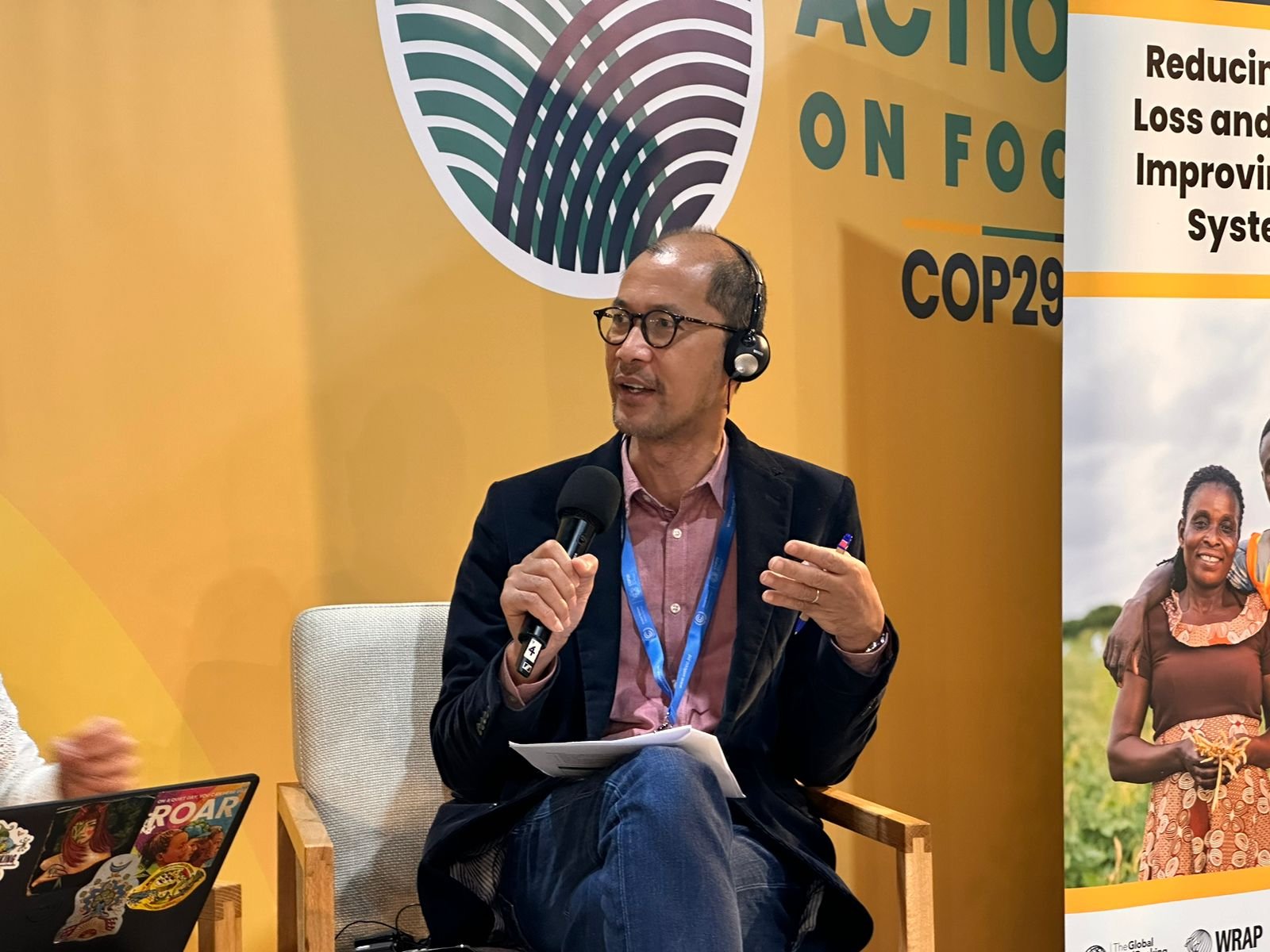
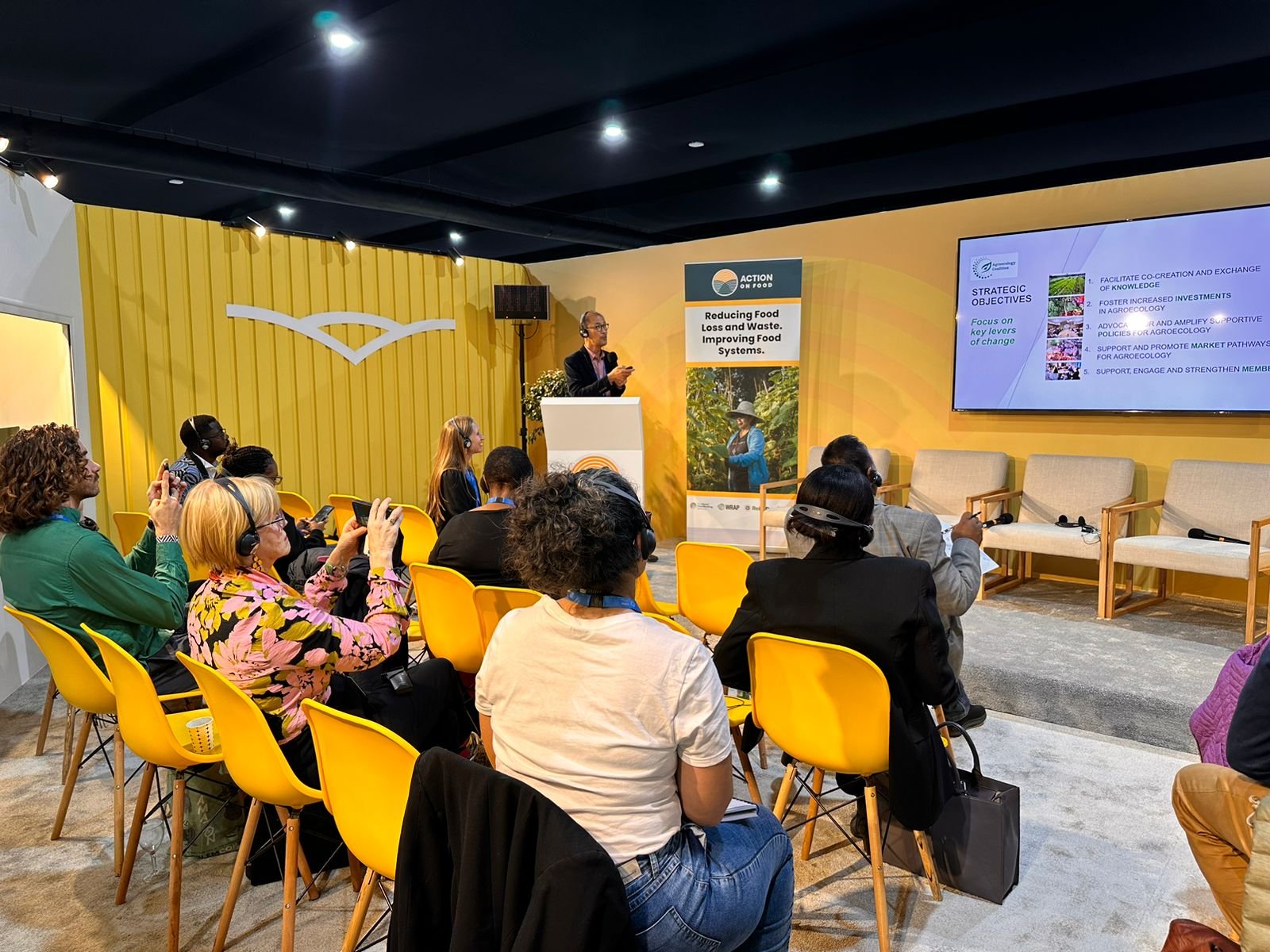
Enhancing Soil Health for Climate Action, Biodiversity Conservation, and Desertification Control: A Cross-Sectoral Approach
Soil health is a key area for action across climate, desertification, and biodiversity agendas. Soil health is a unifier across sectors and scales, so a key element of this event was fostering collaboration among governments, scientists, industry leaders, NGOs, and community advocates. Panelists from these diverse sectors shared their experiences with synergizing desertification, biodiversity, and climate measures by focusing on soil health to deliver mutual benefits across all three areas.
Speakers called for establishing robust mechanisms for monitoring soil health, assessing degradation, and tracking restoration progress, as well as investing in soil restoration programs, particularly in areas affected by desertification and land degradation.

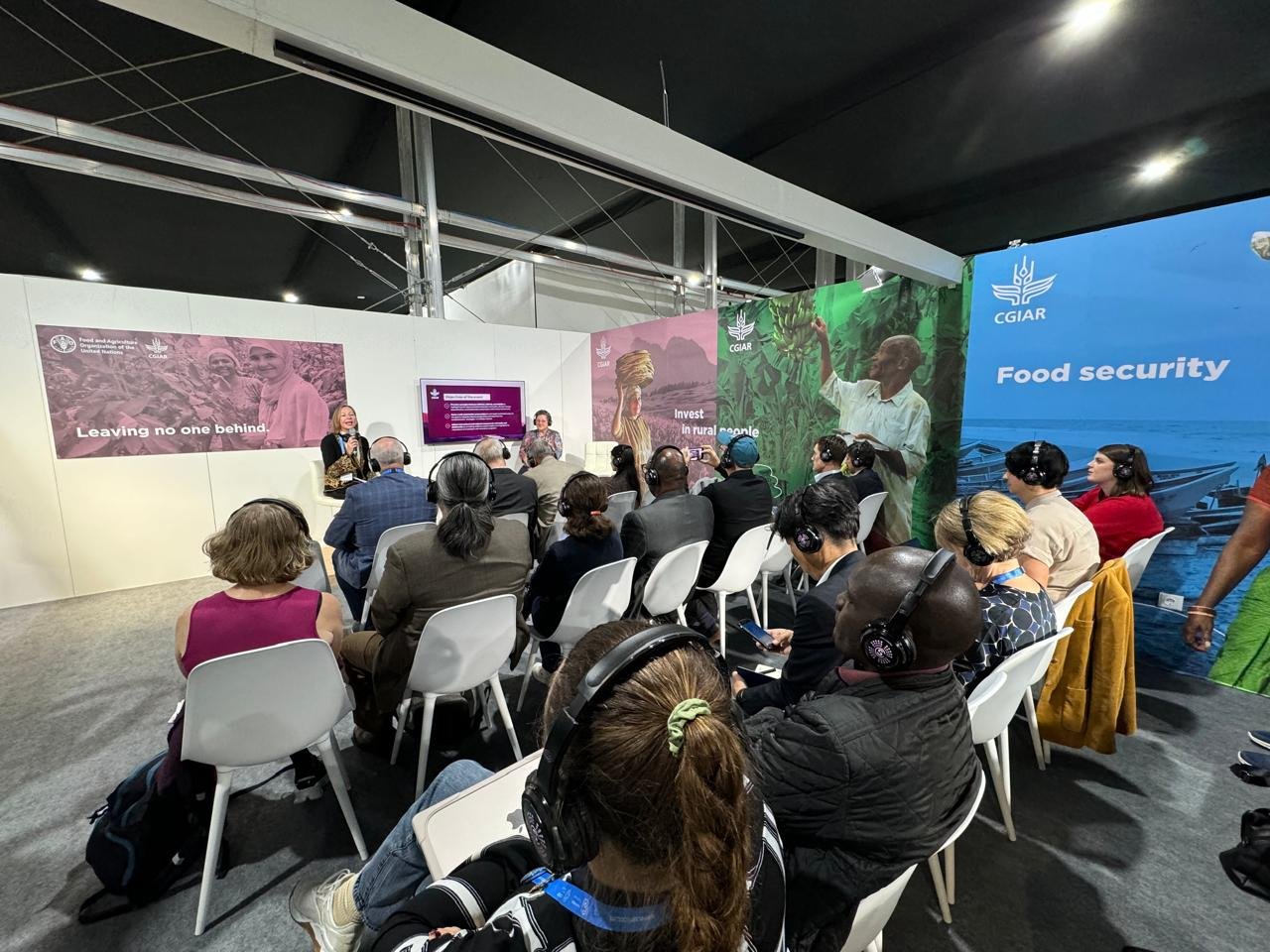
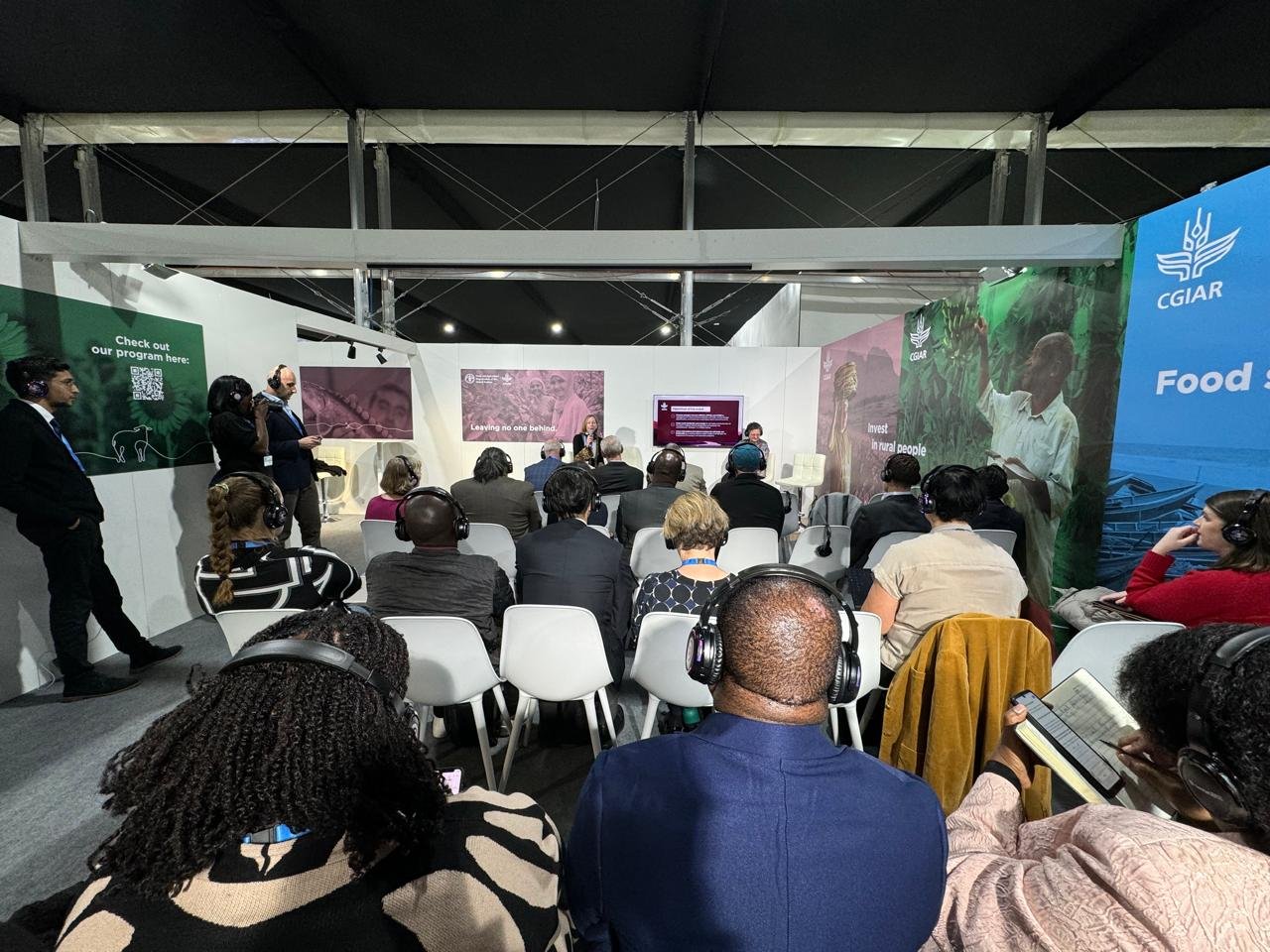
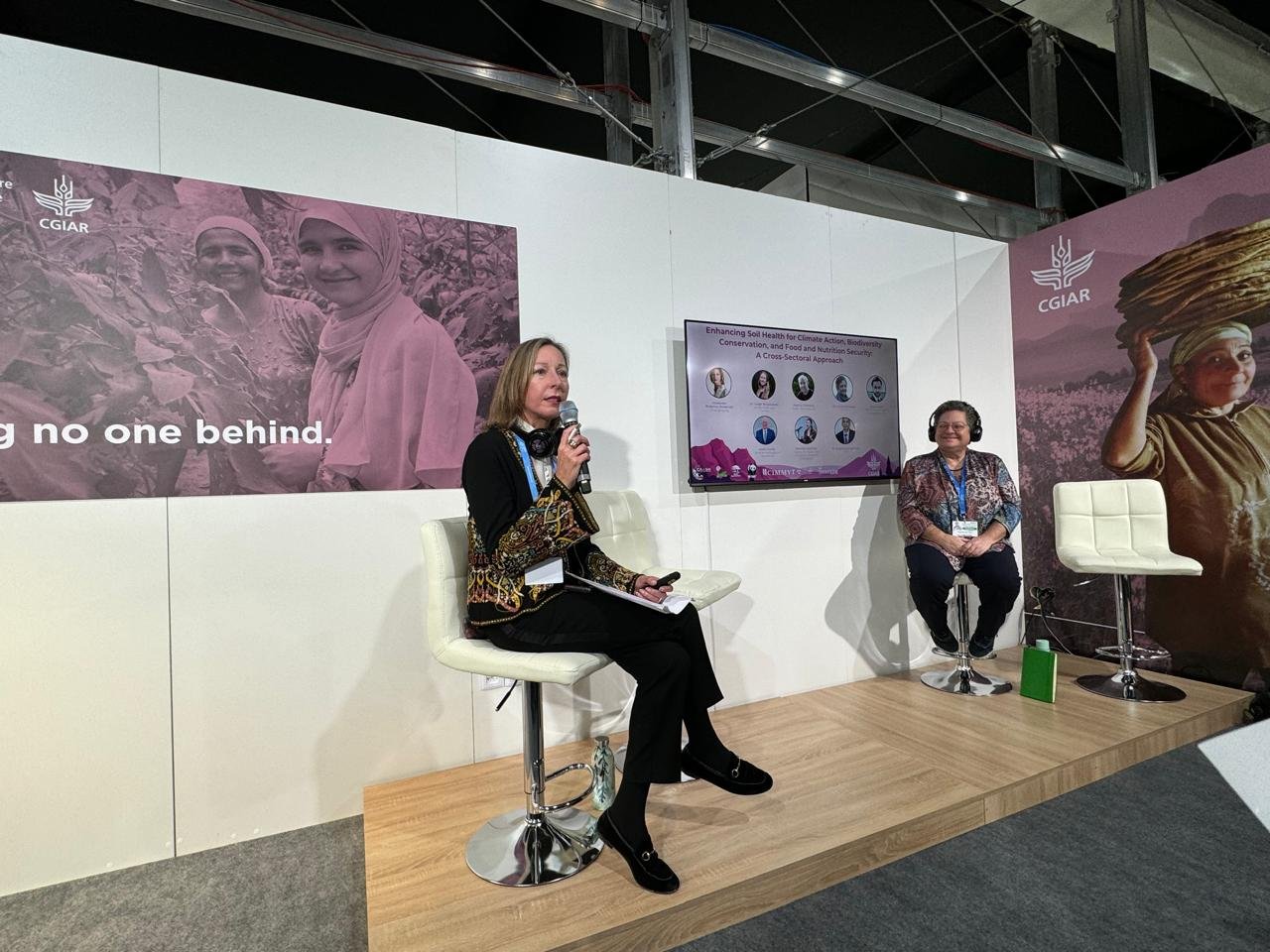
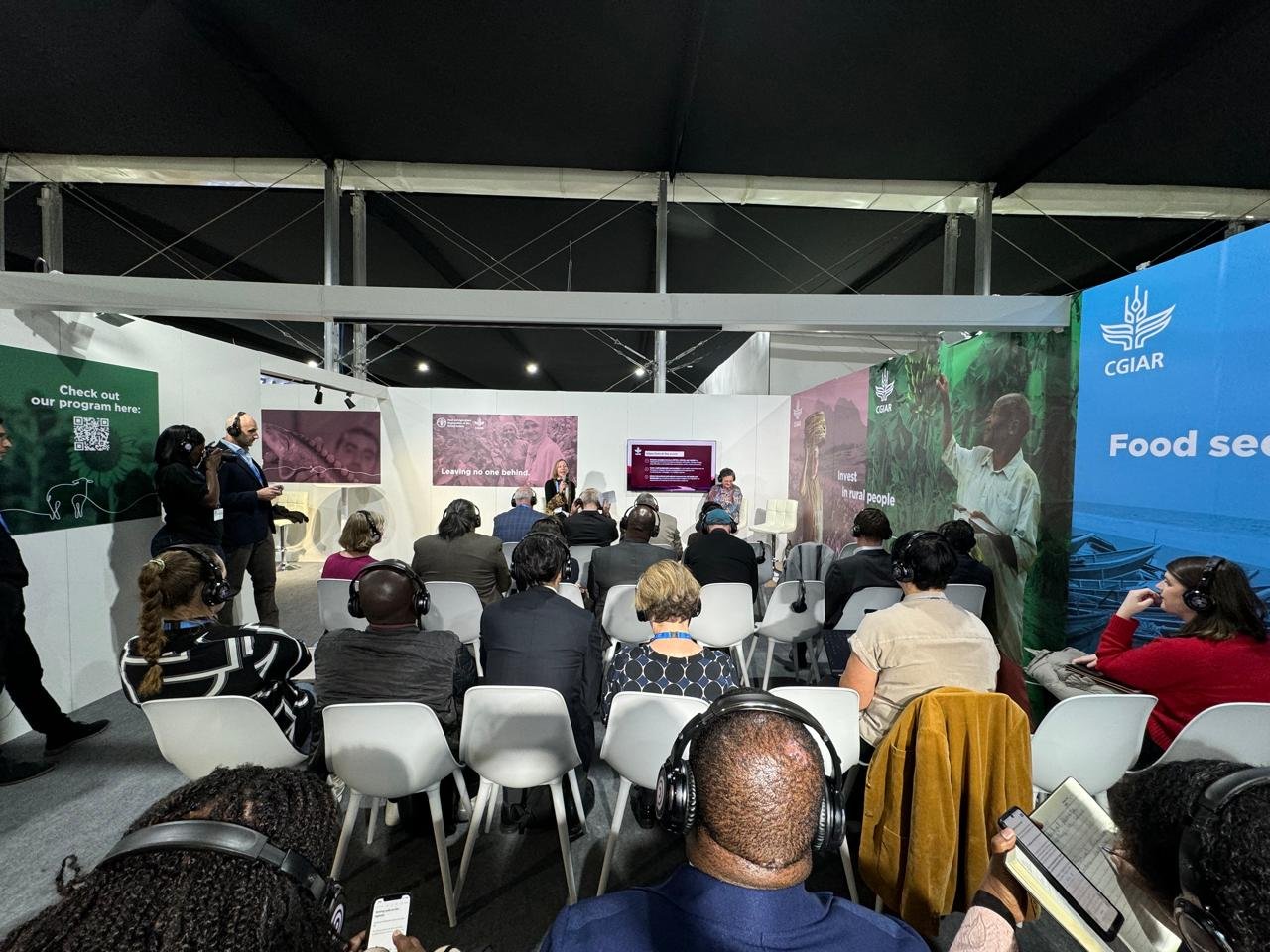
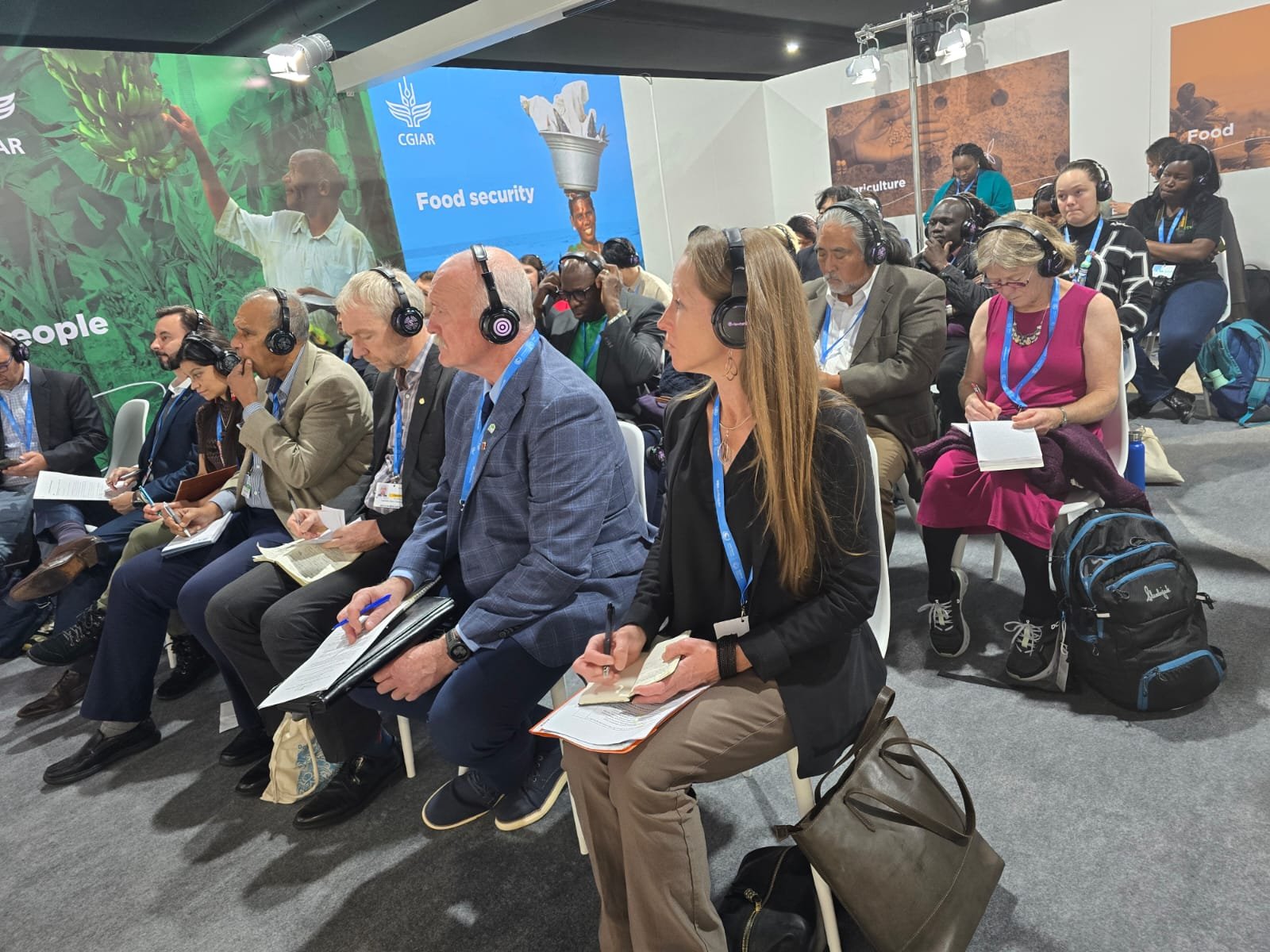
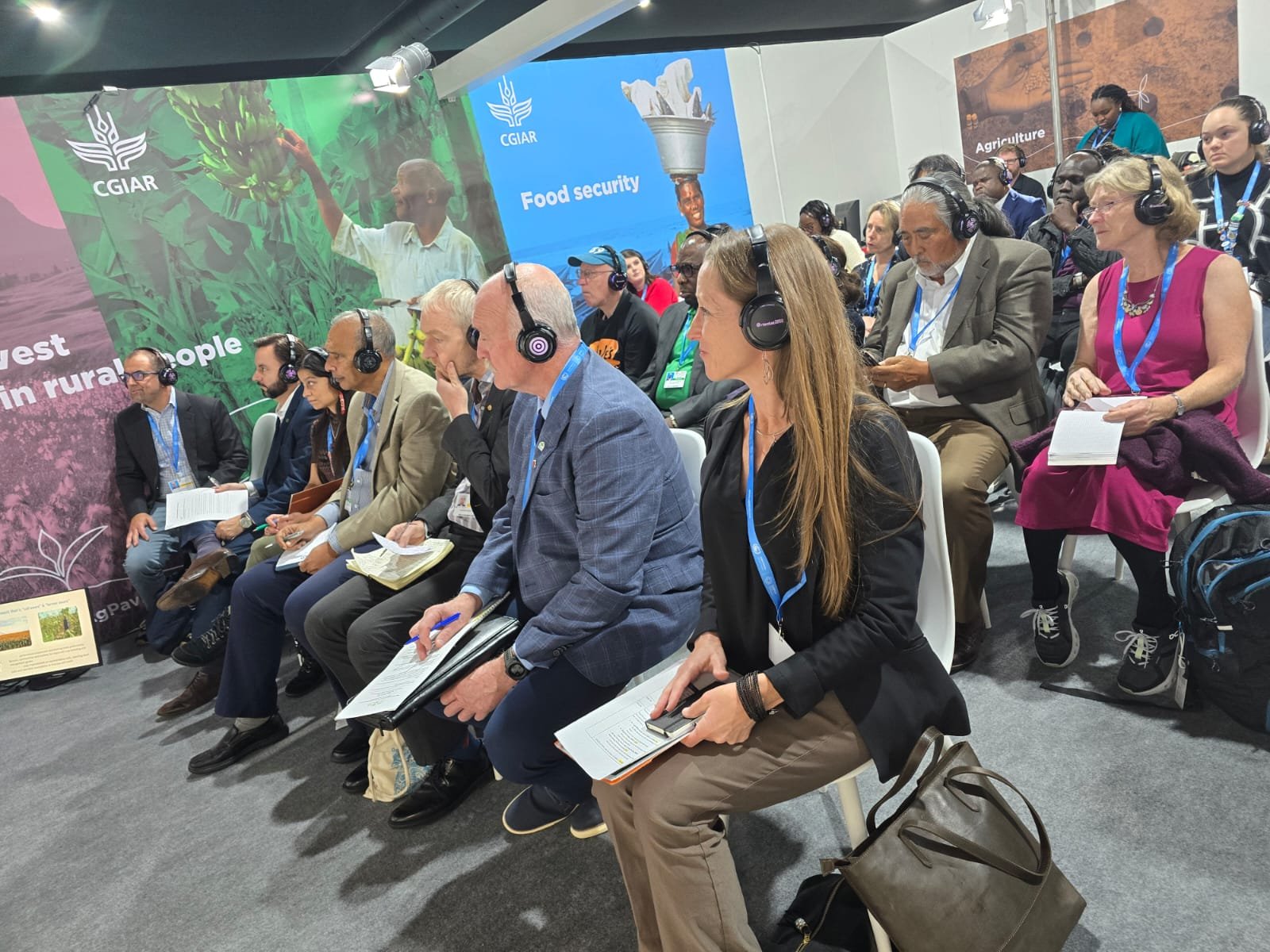
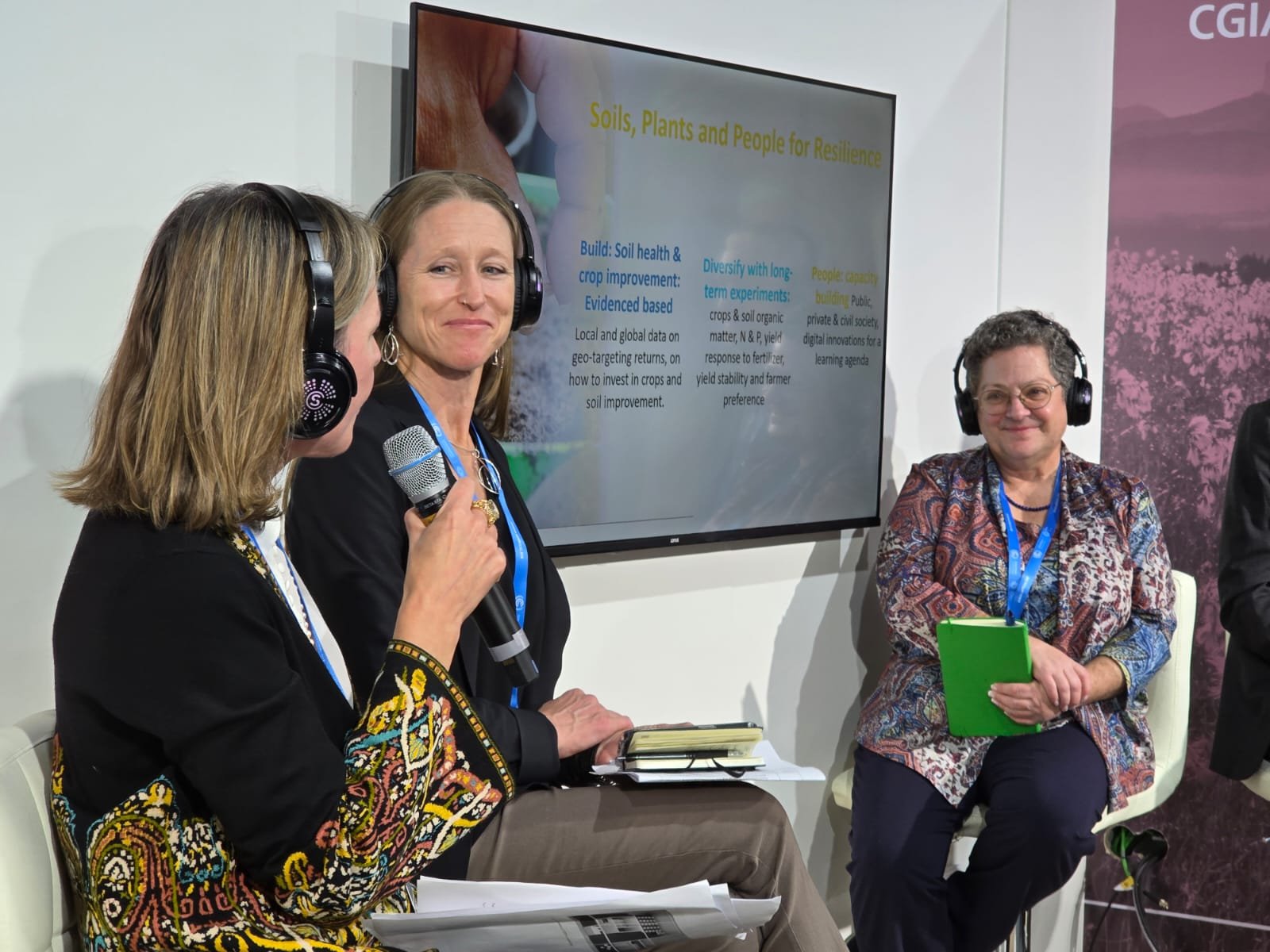

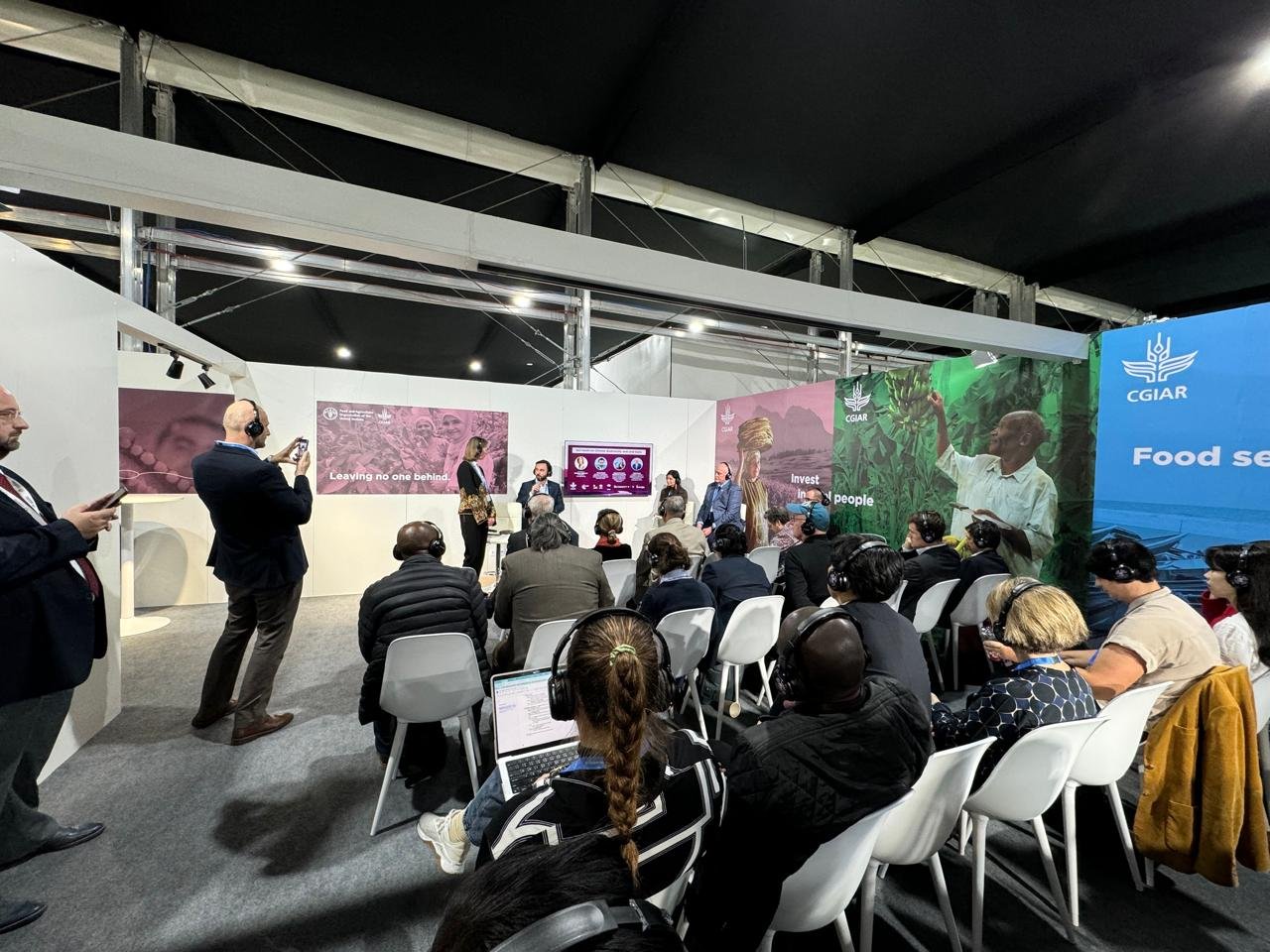

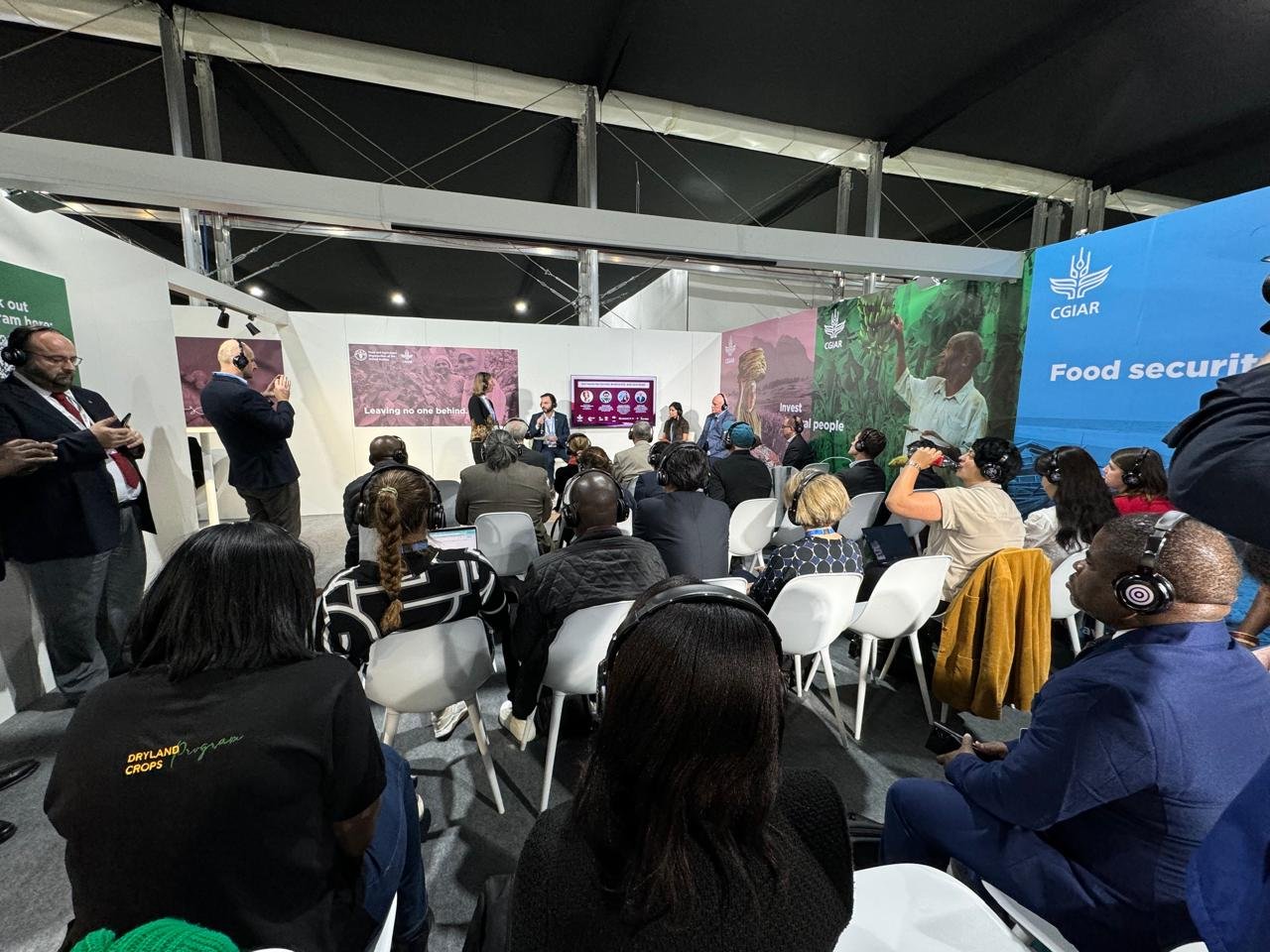


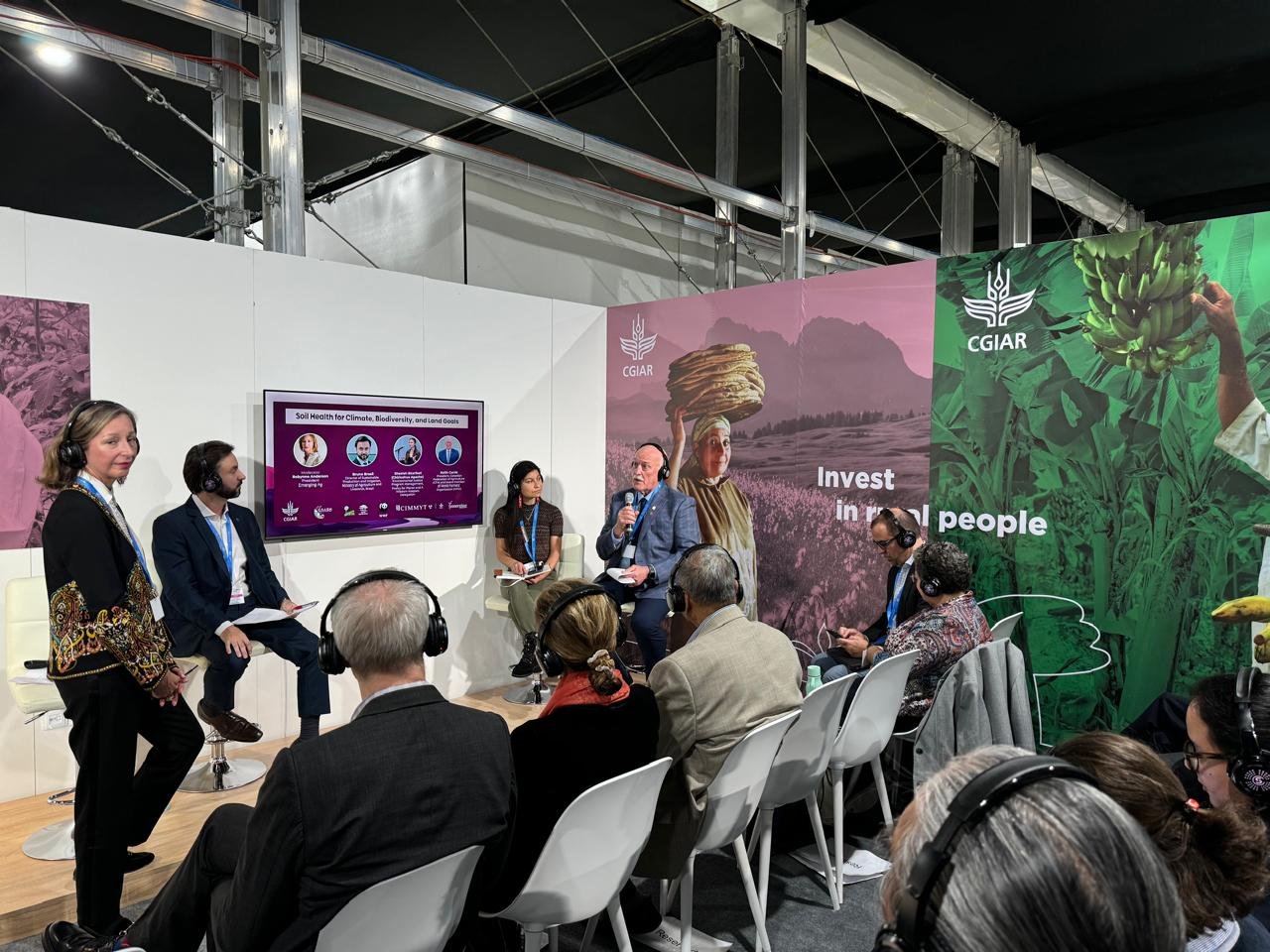
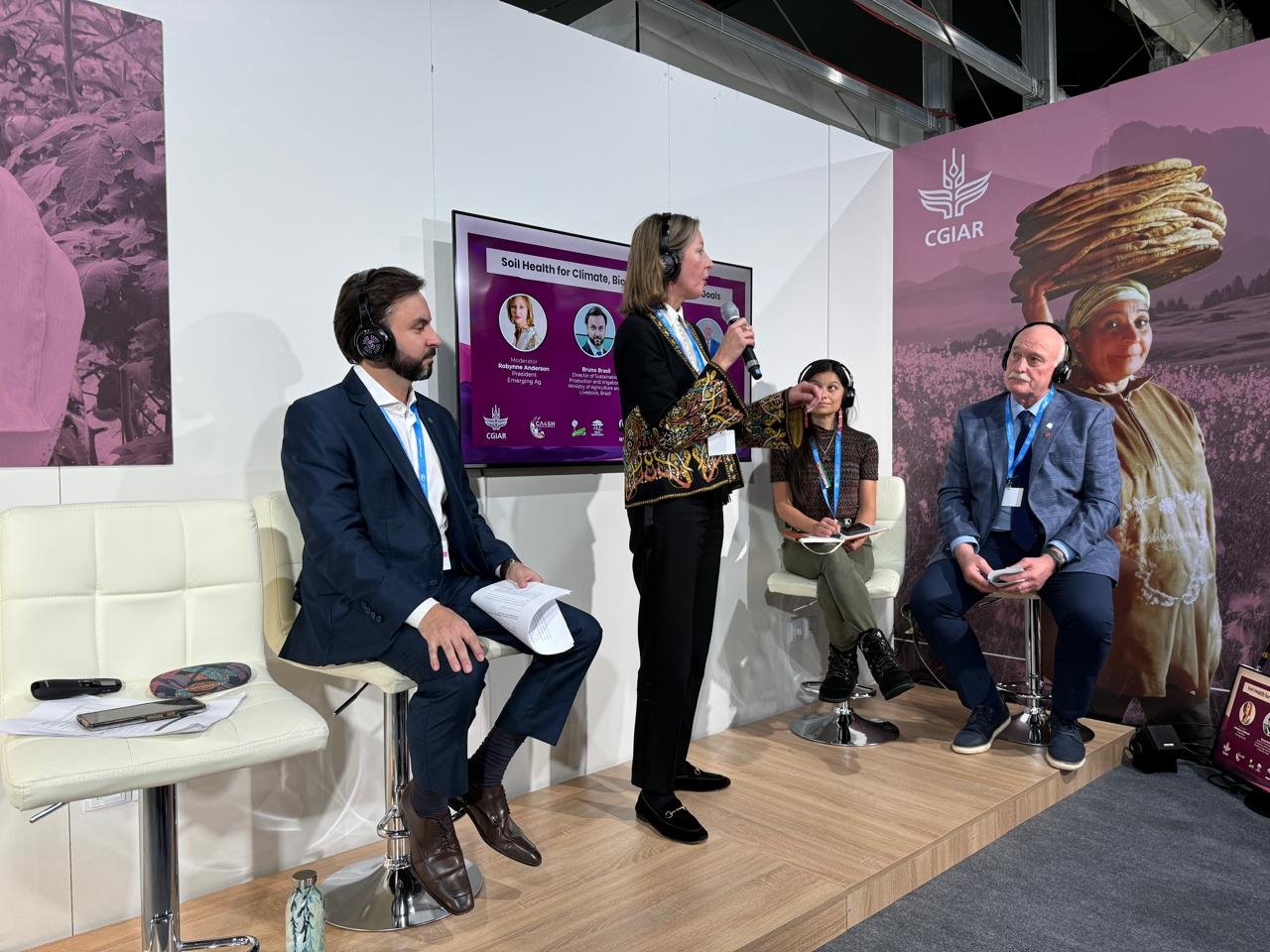
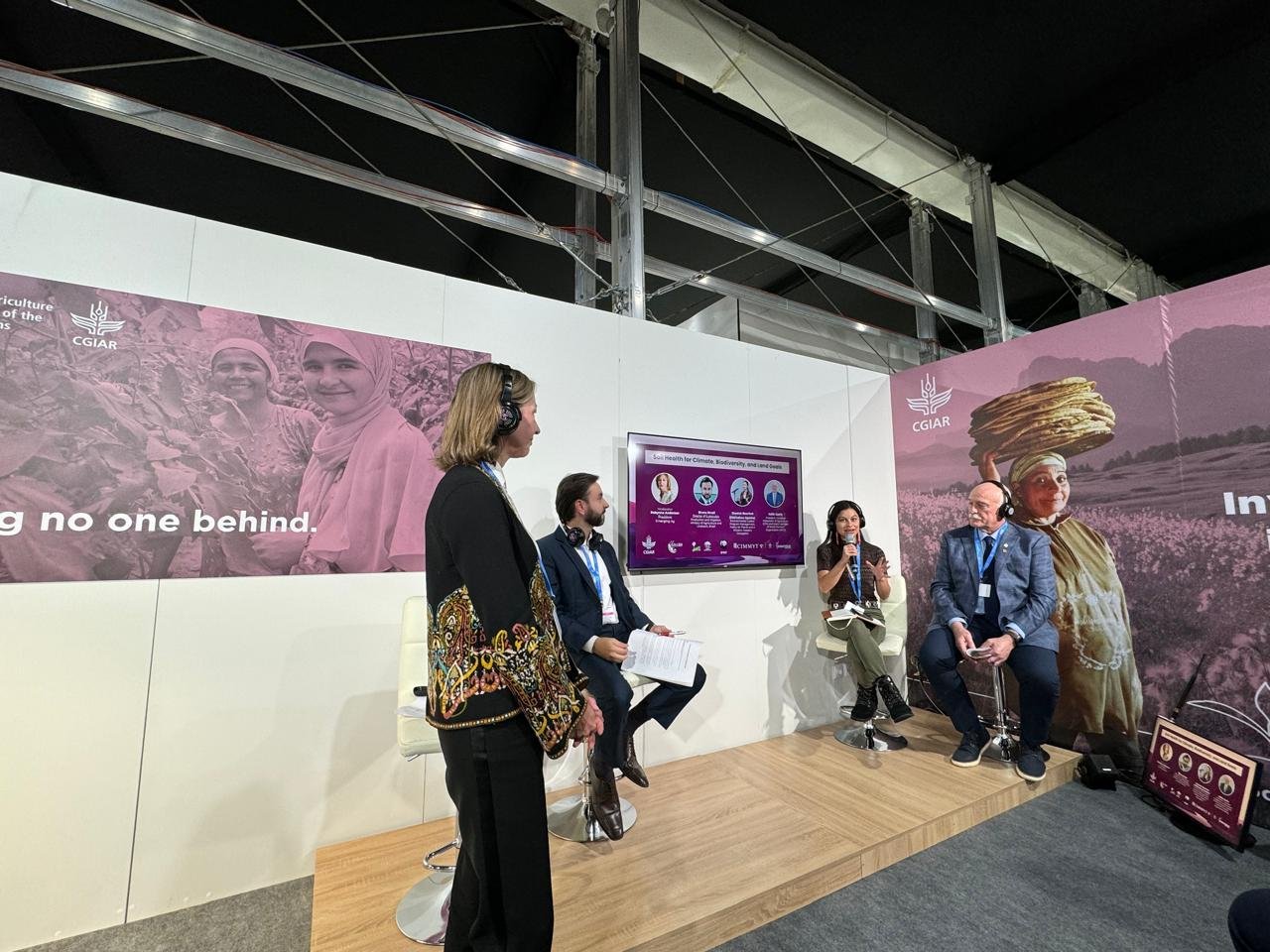
High-Segment Dialogue on Livestock-Induced Emission Management
Livestock rearing is an important activity in rangelands and across the globe. However, emissions from livestock account for about 14.5% of global greenhouse gas emissions. Different agroecological conditions can foster different benefits for nature, while also upholding this critical livelihood activity. Livestock readers, especially smallholder farmers, face challenges from the availability of resources, inputs and services that form a barrier for them to implementing agroecological approaches.
This event was organized by BAIF and TERRE - Global Carbon Council to deliberate on emissions management strategies in the livestock sector under different agroecological conditions.
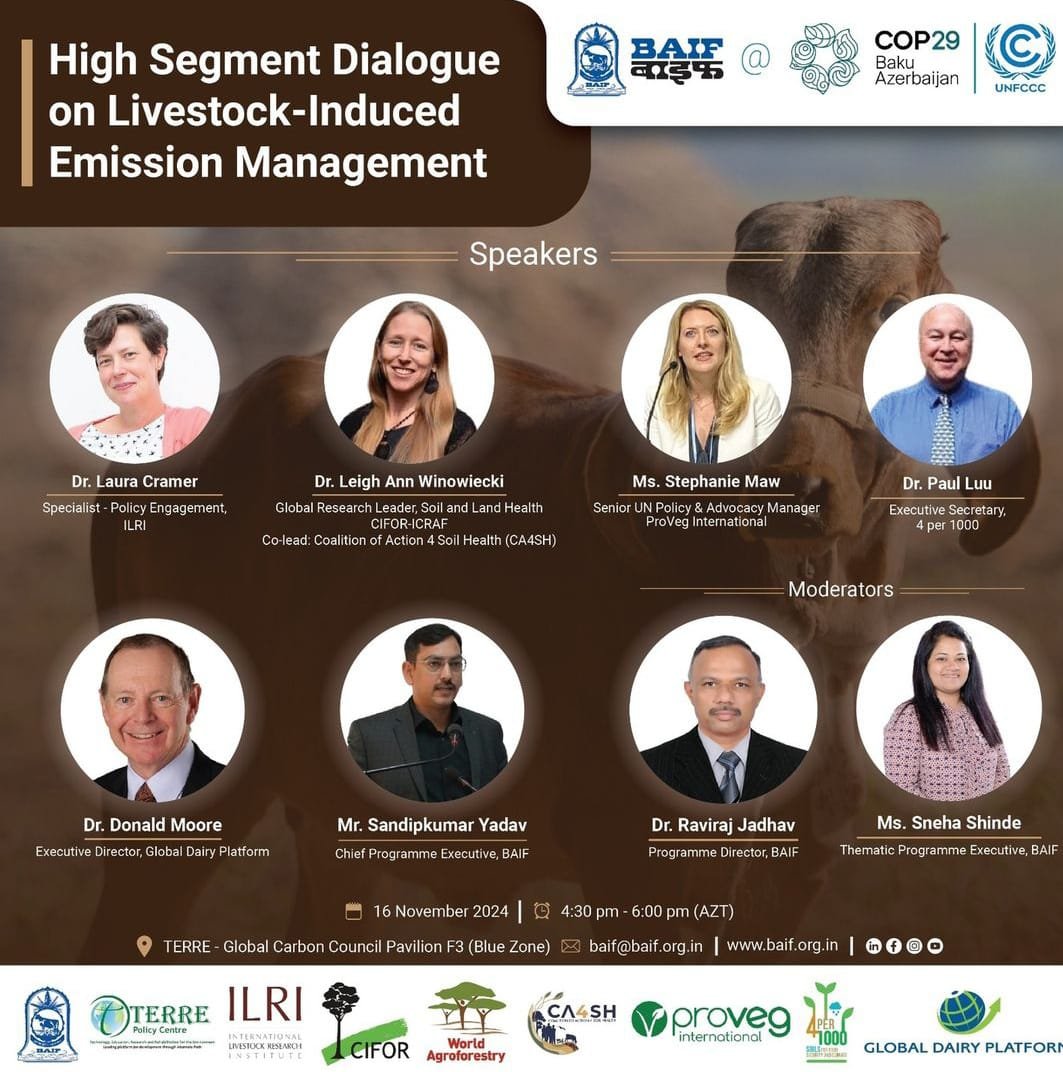
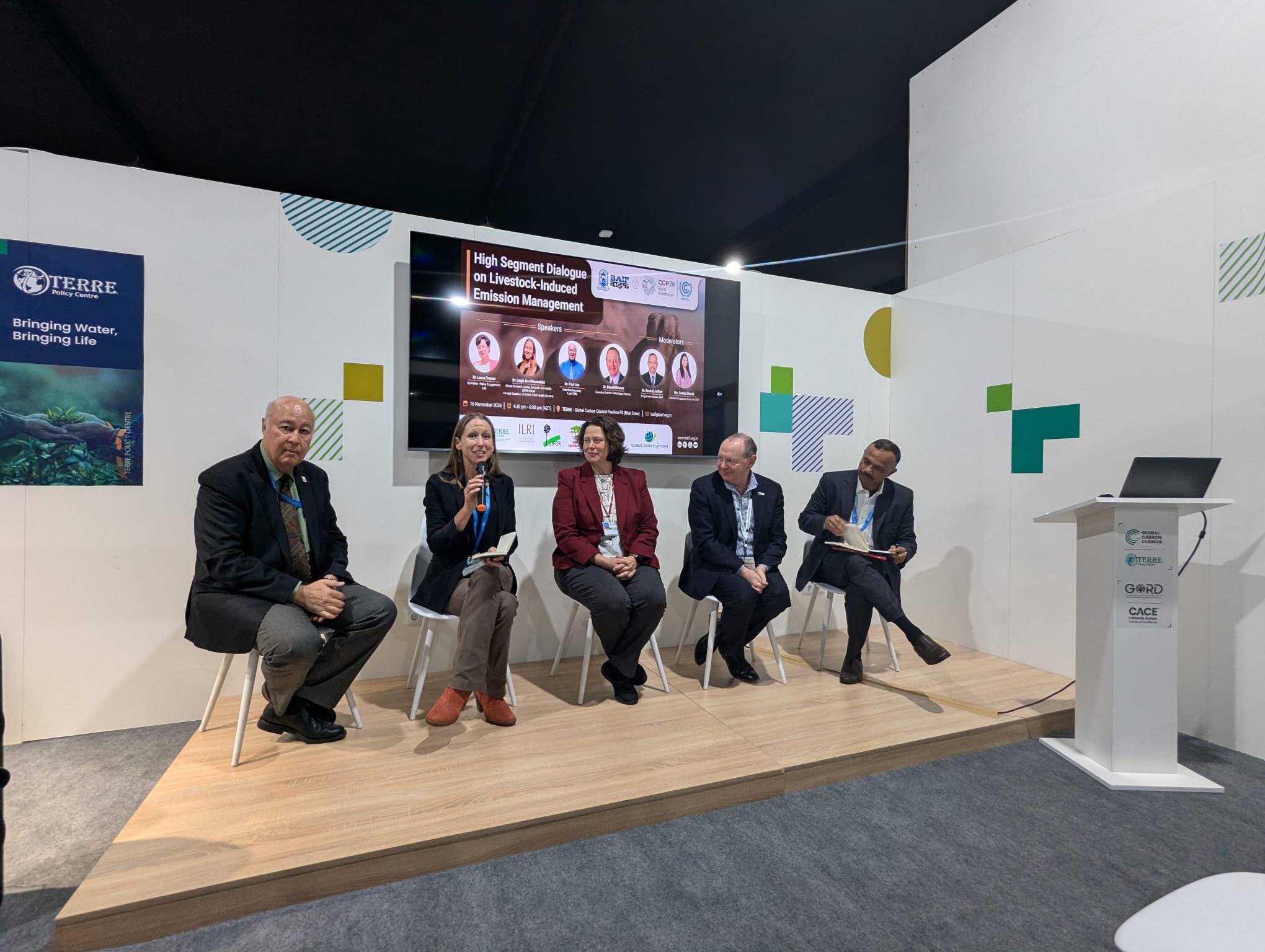
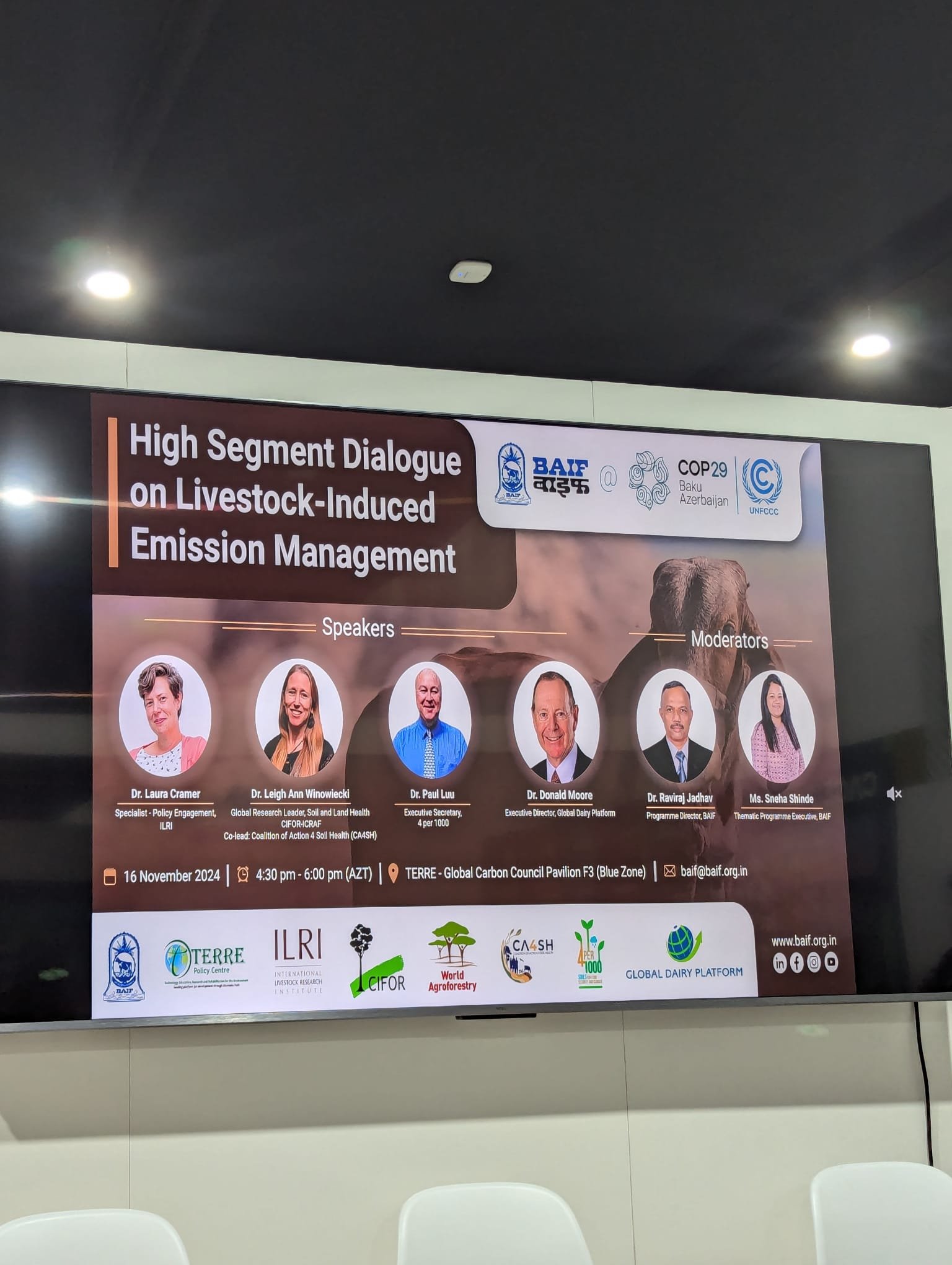
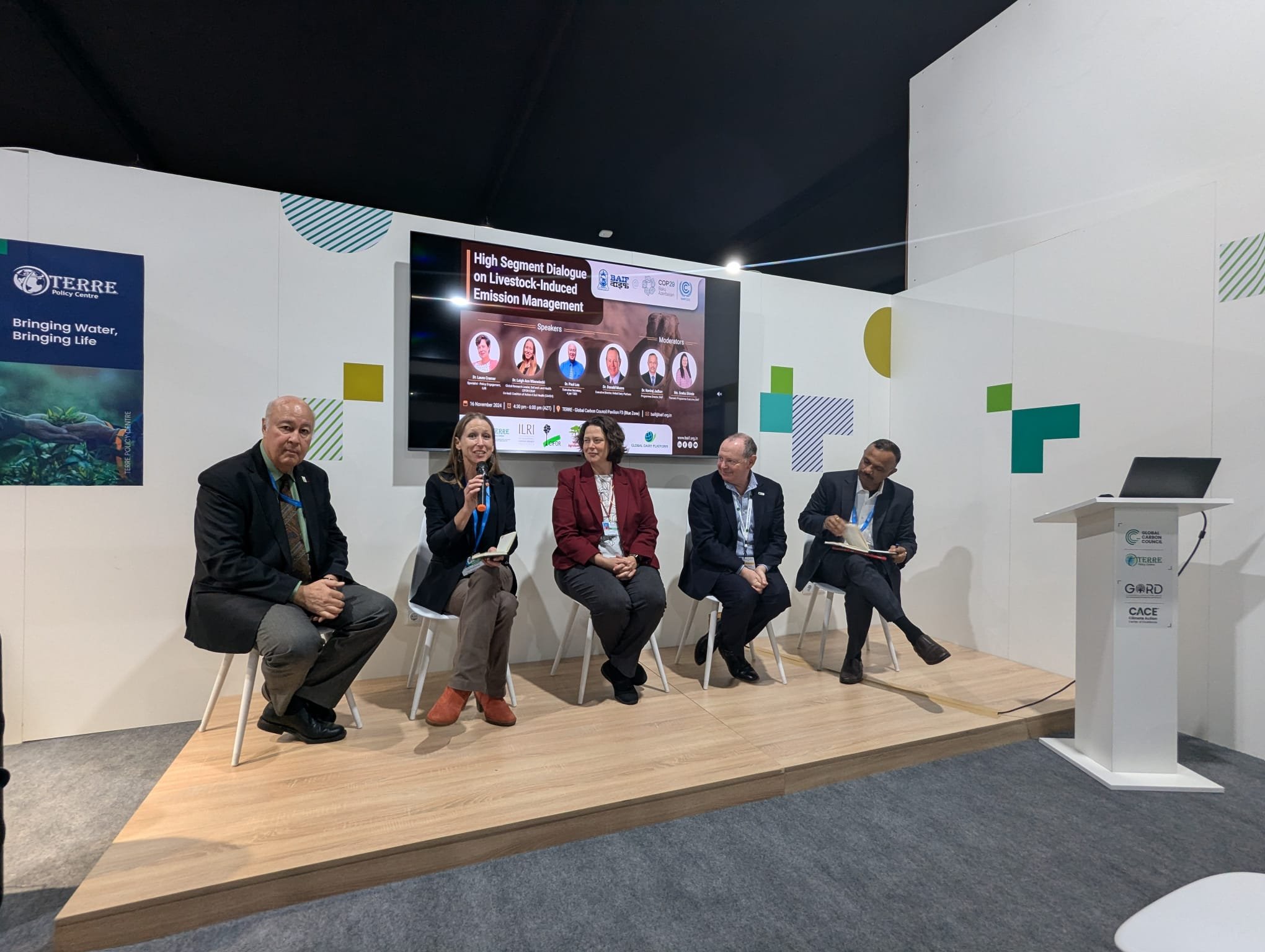
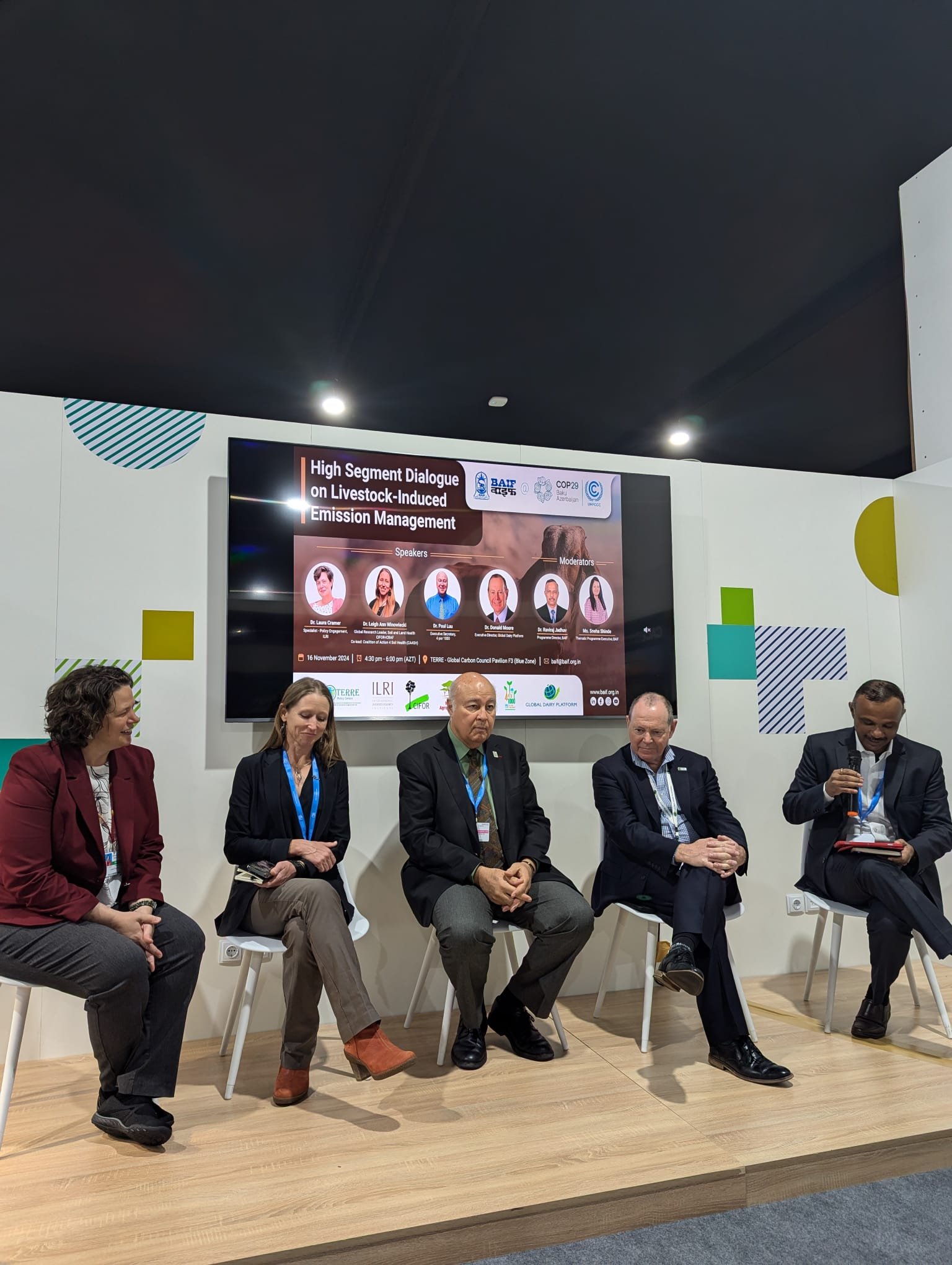

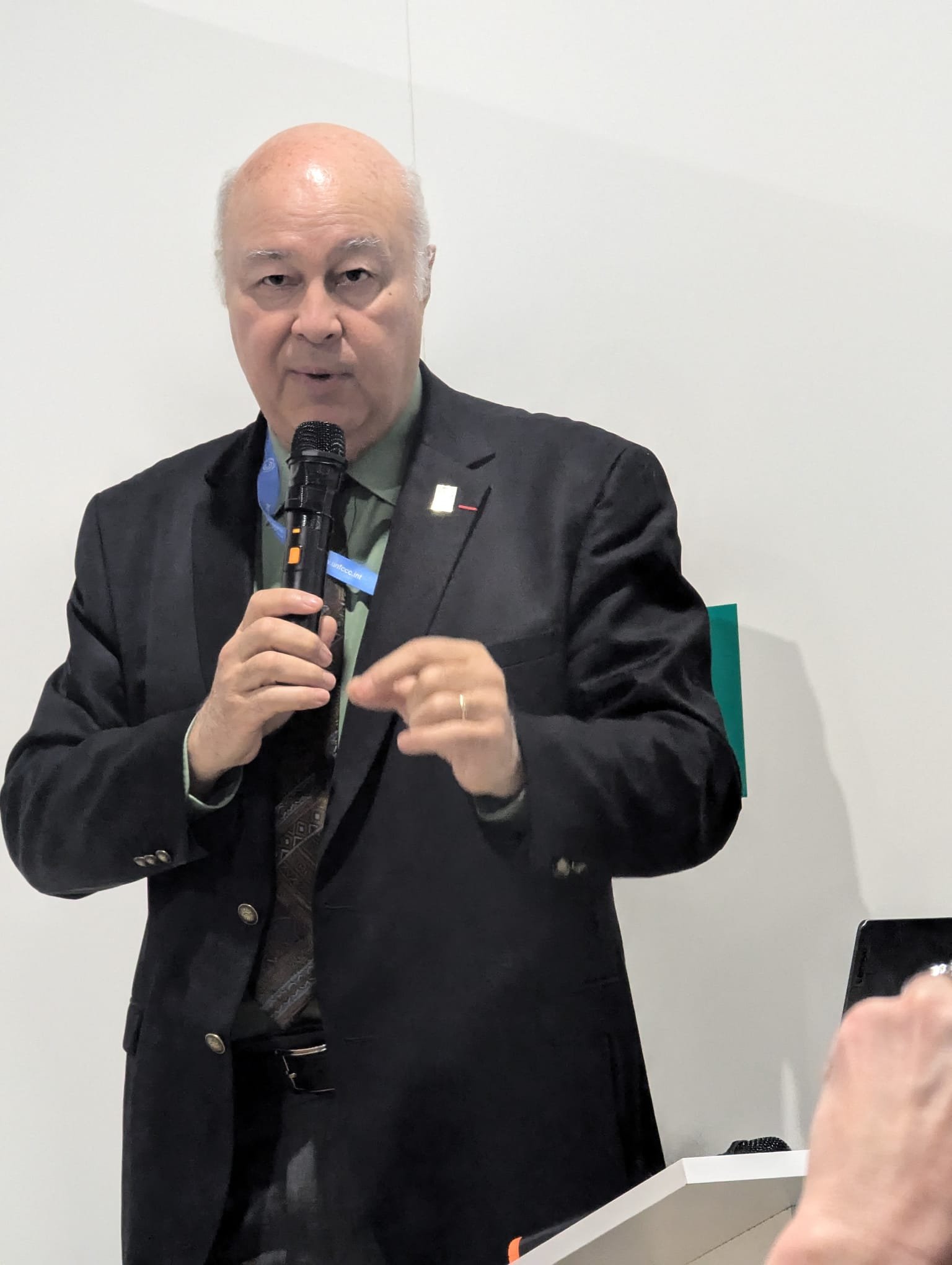

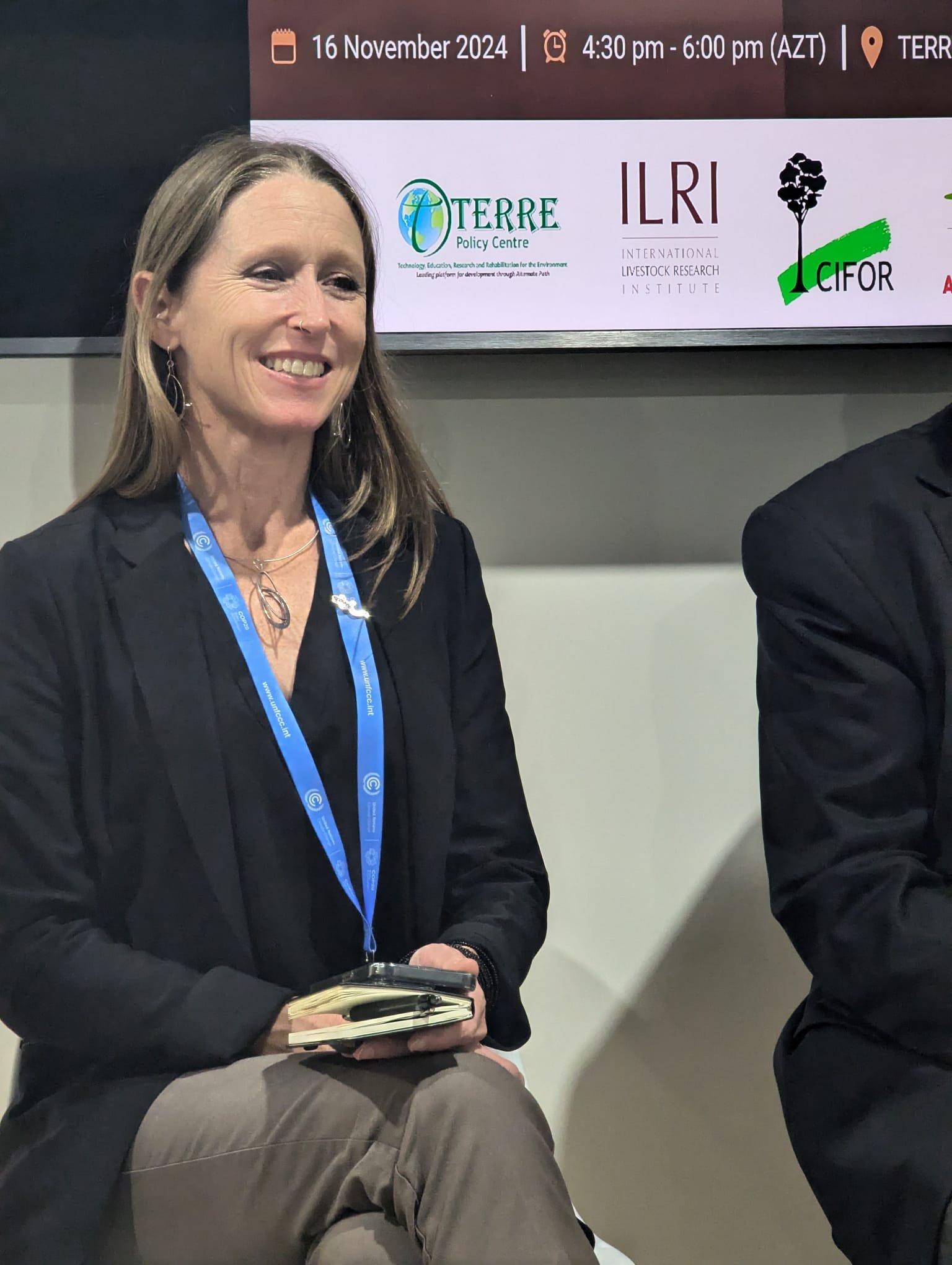
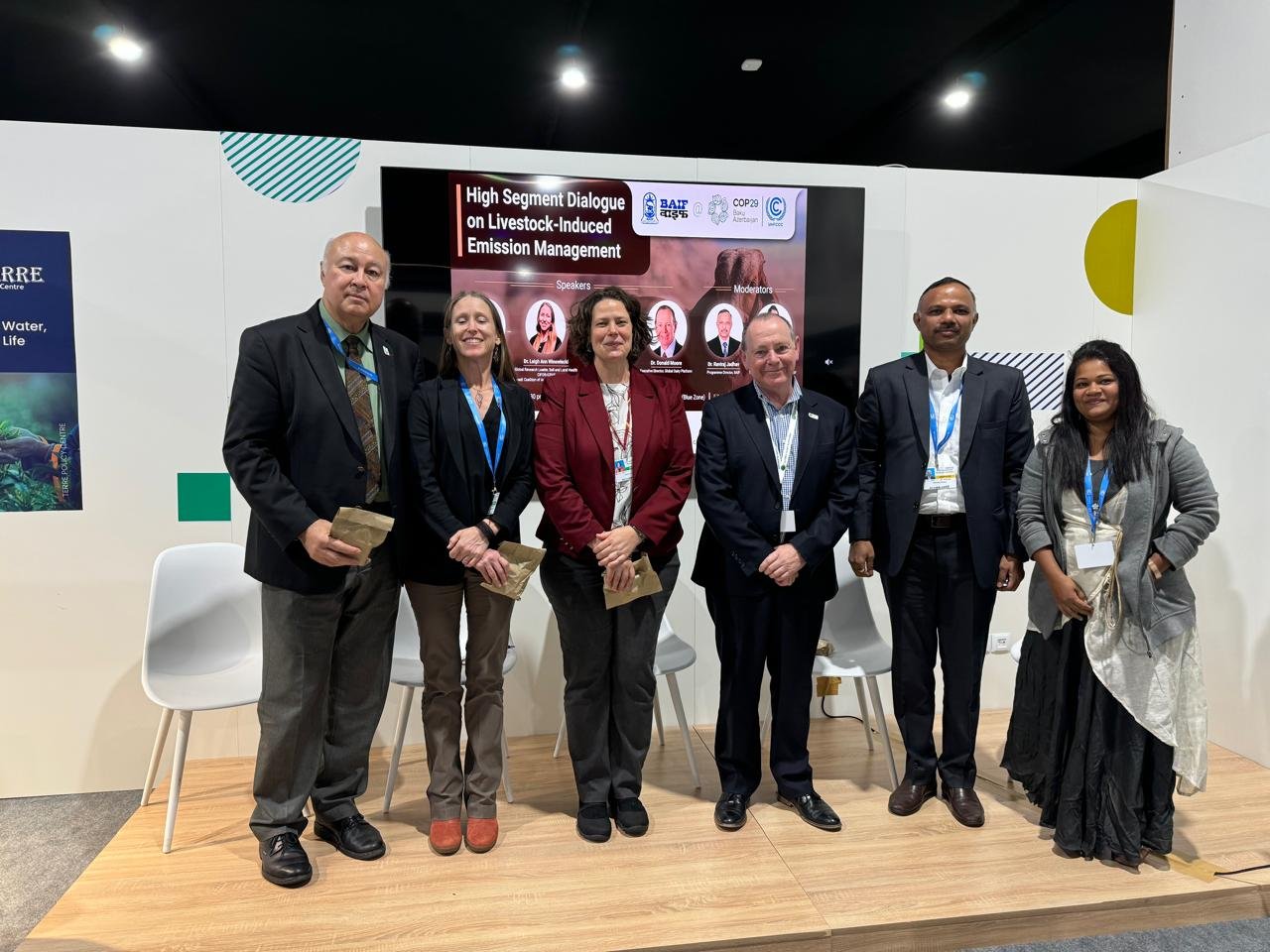
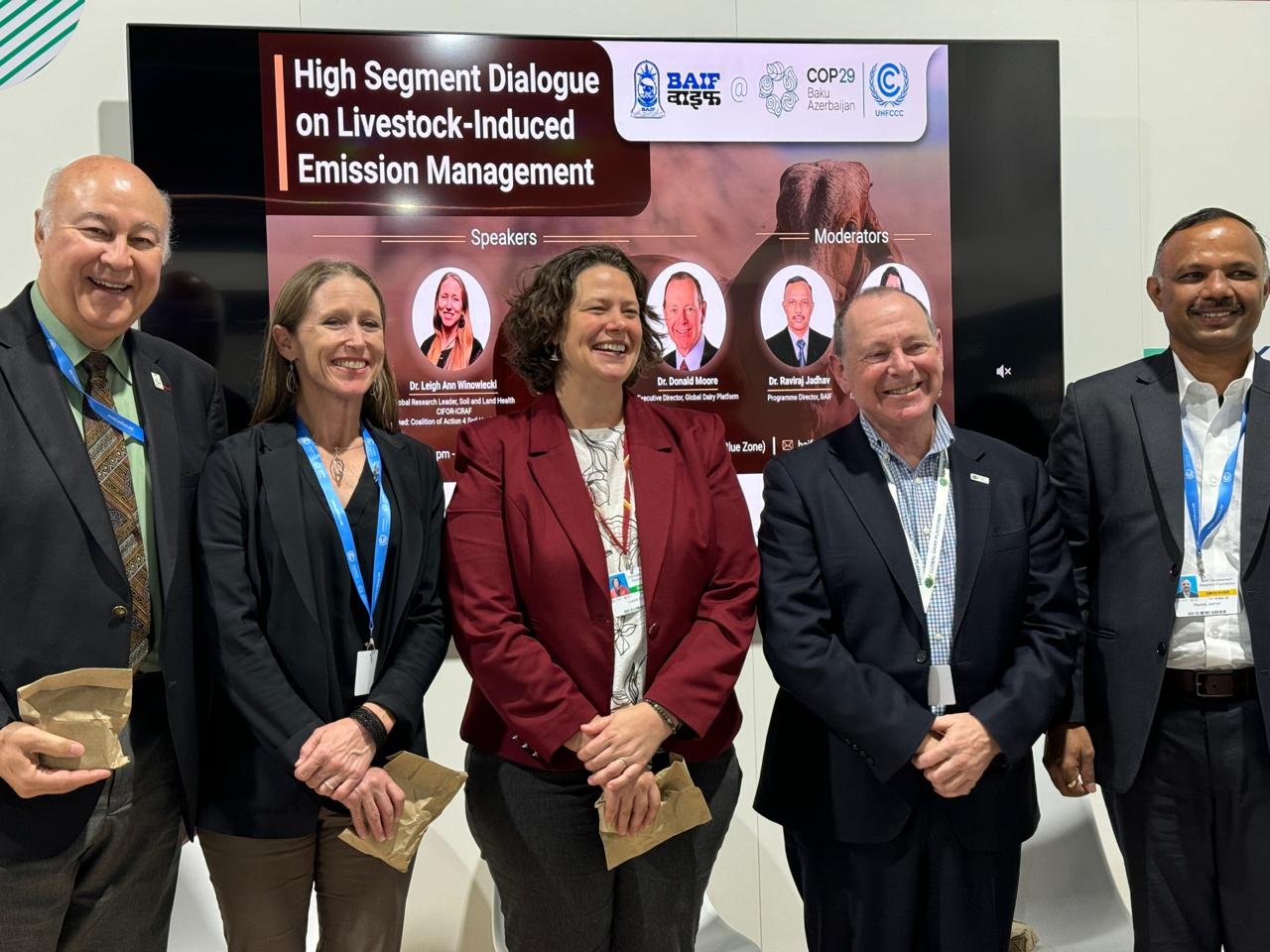
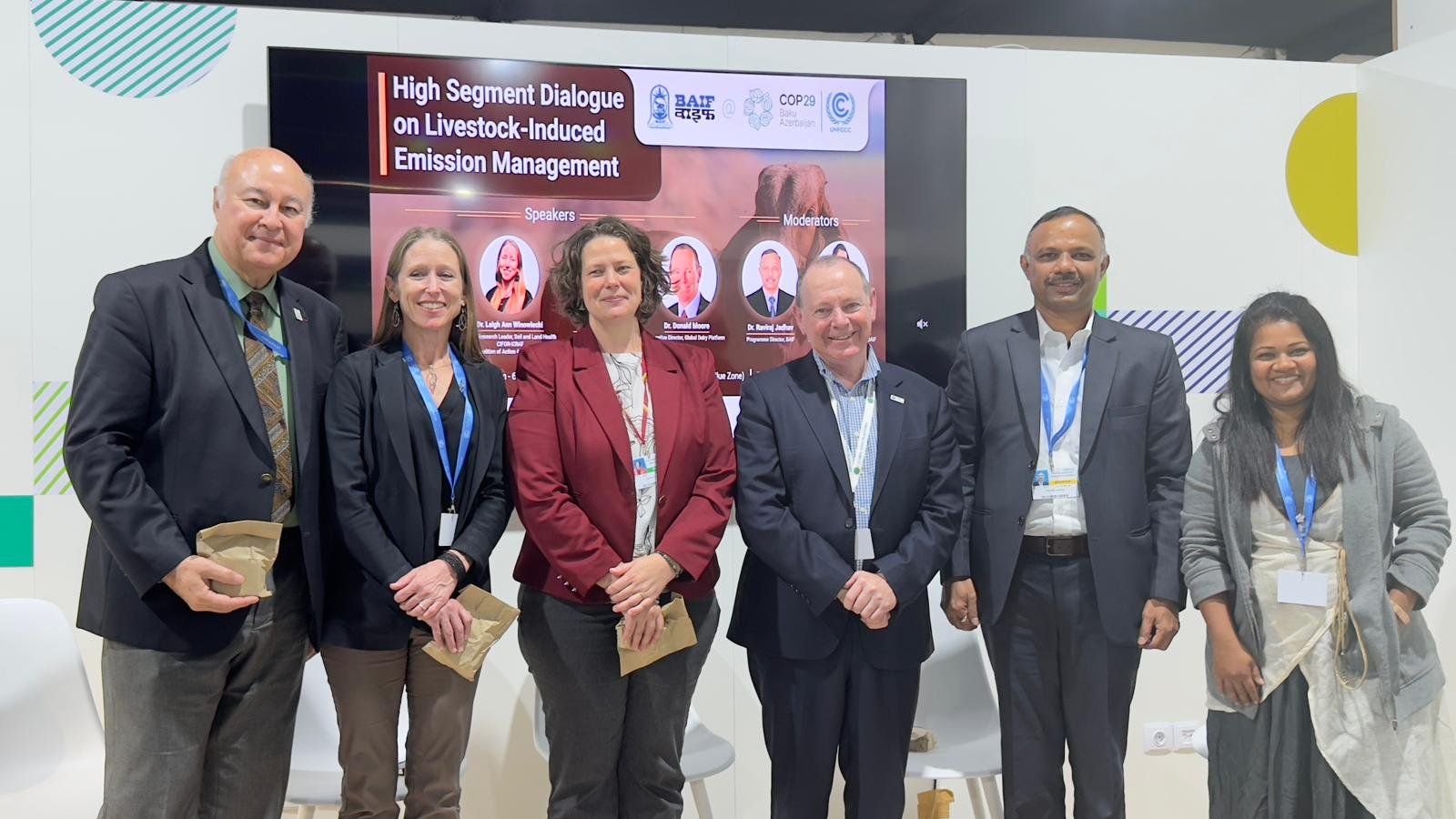

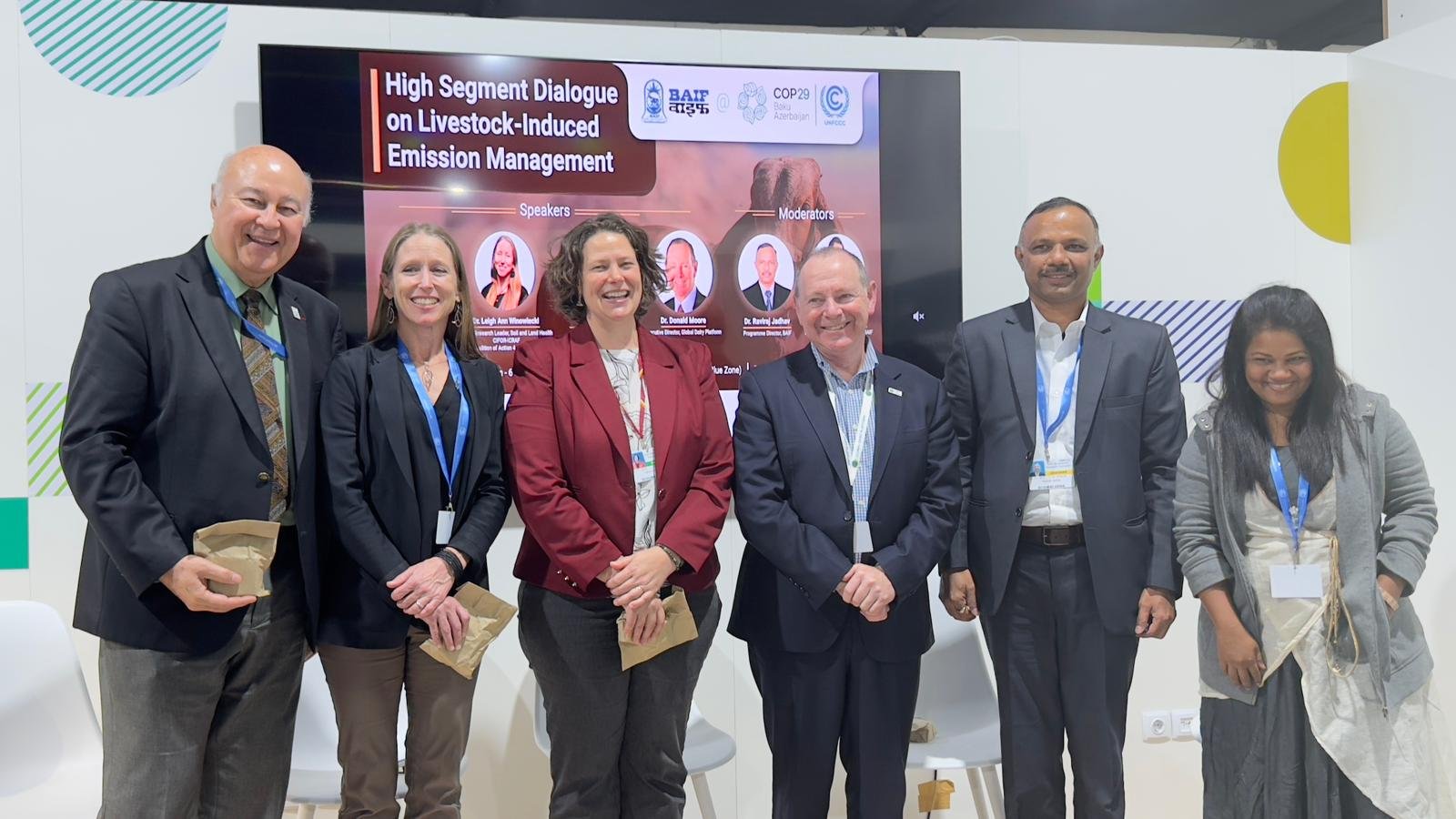
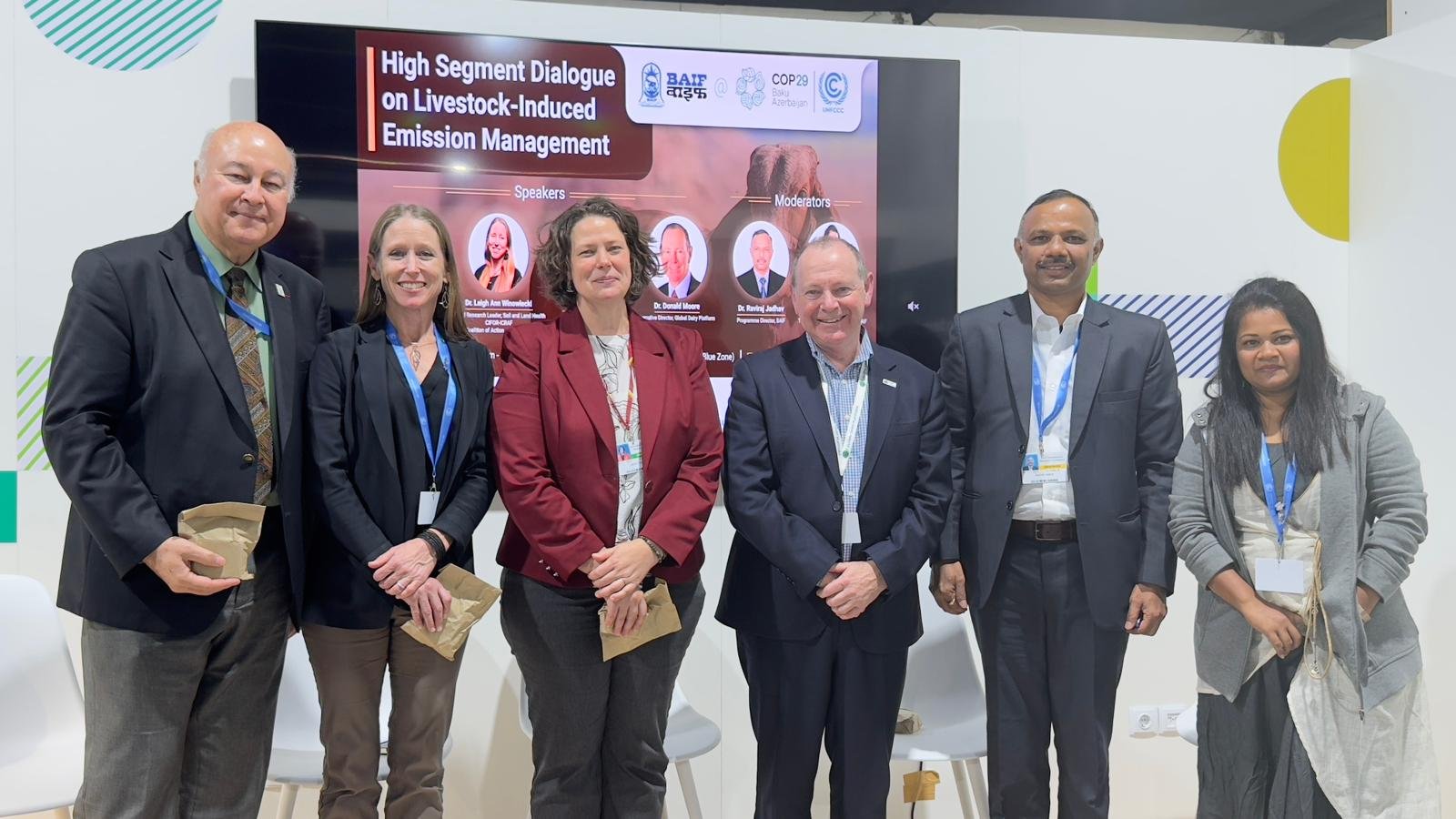

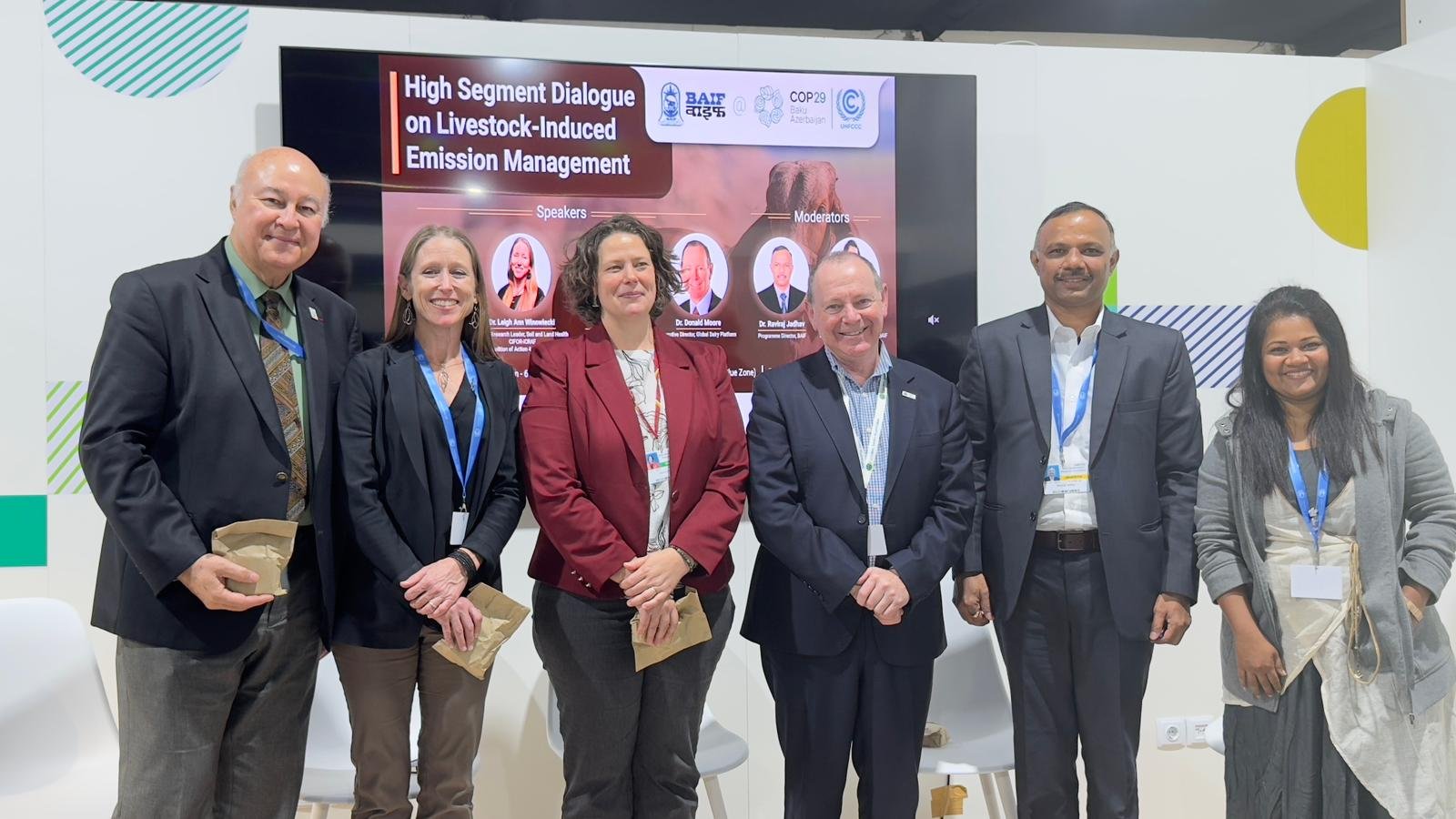

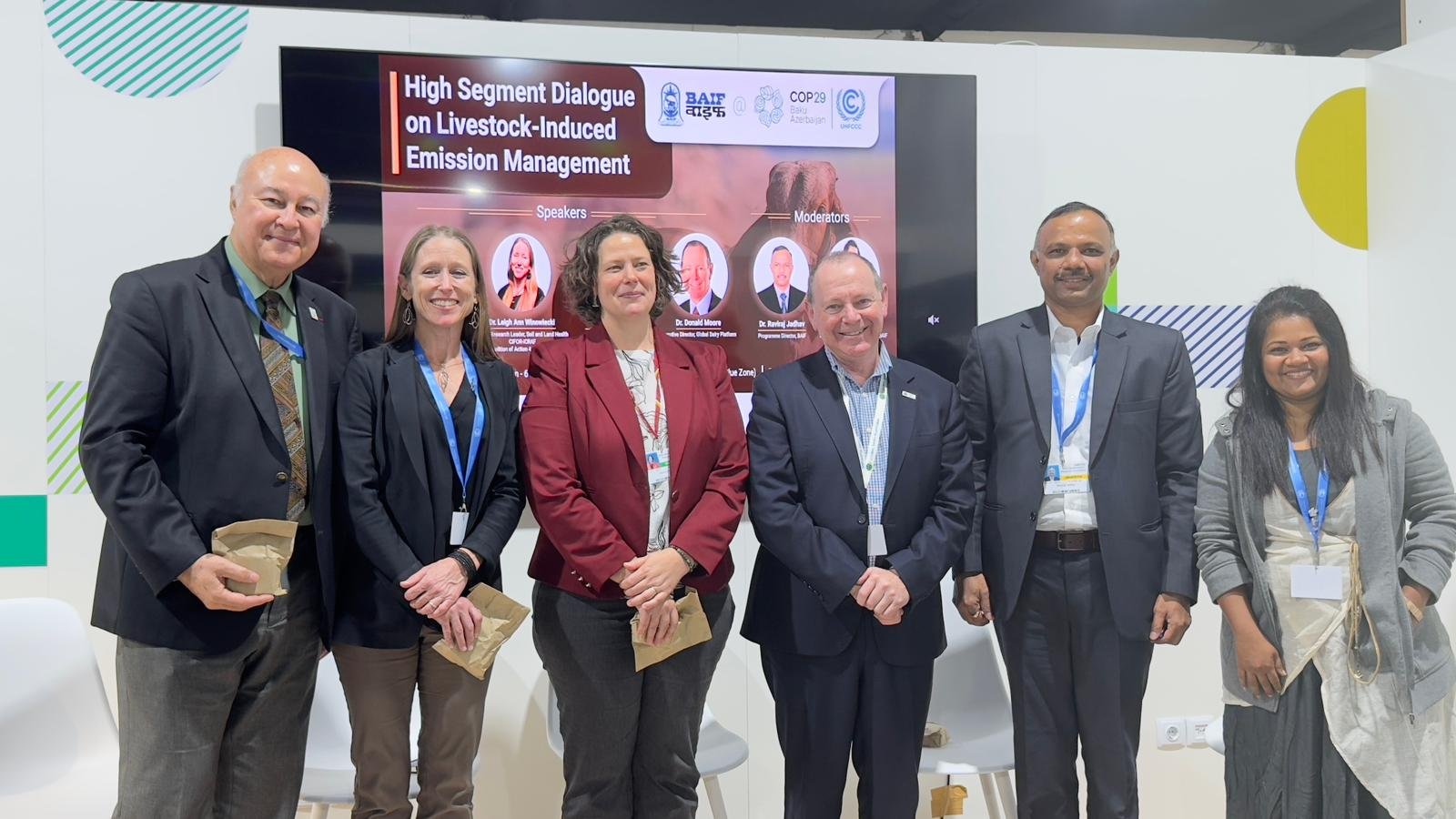
The Road to COP30: Elevating Farmer Voices in Climate Action and NDCs and NAPs
This session built on discussions from the session The Missing Perspective at COP28, threading the role of farmers as key drivers of climate-smart and sustainable practices. Farmers’ work is inextricable from implementing climate action on the ground, and speakers at this IICA Pavilion event stressed the importance of aligning policy mechanisms like the Nationally Determined Contributions (NDCs) and National Adaptation Plans (NAPs) with farmer realities on the ground.
The panel discussed the impacts of climate change on agriculture, with real-world examples from farmers, and presented some adaptations and innovations that are already being implemented by farmers.
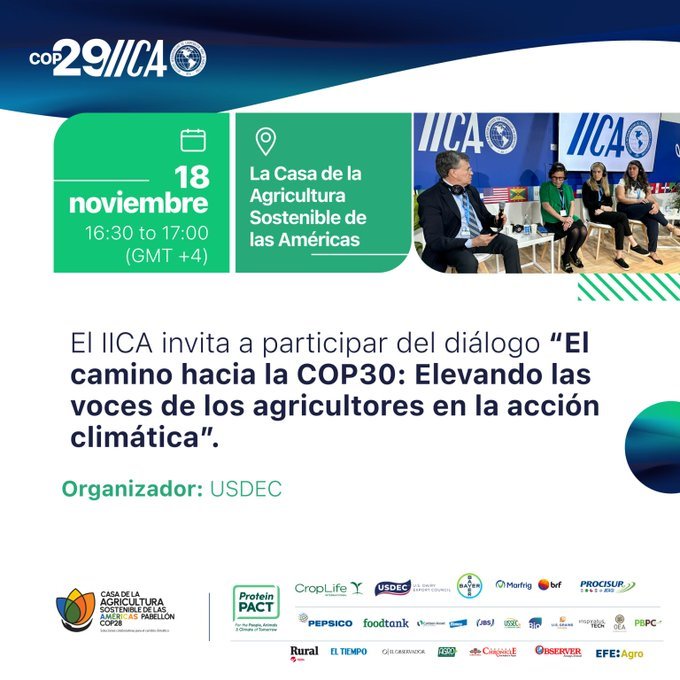
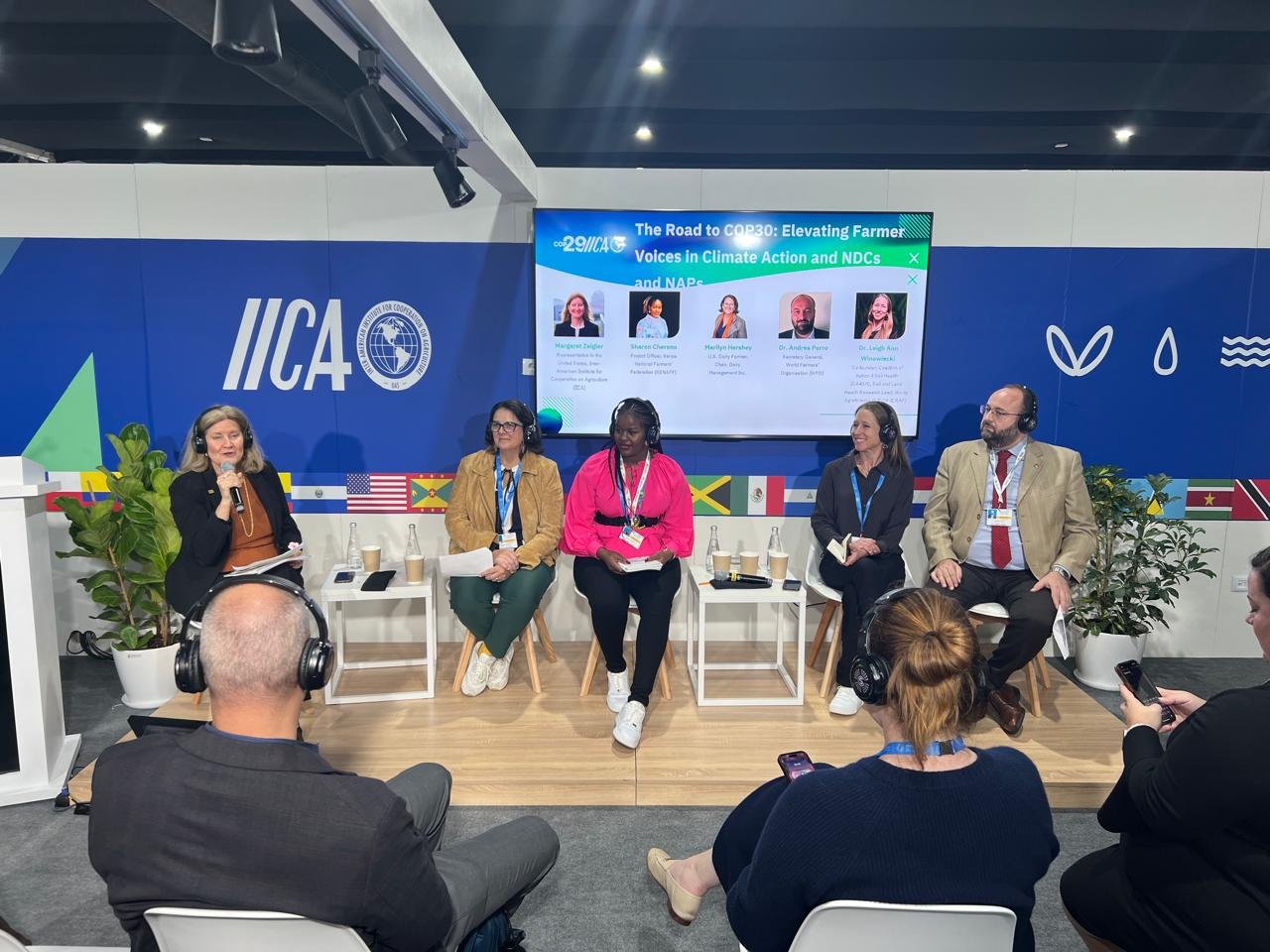
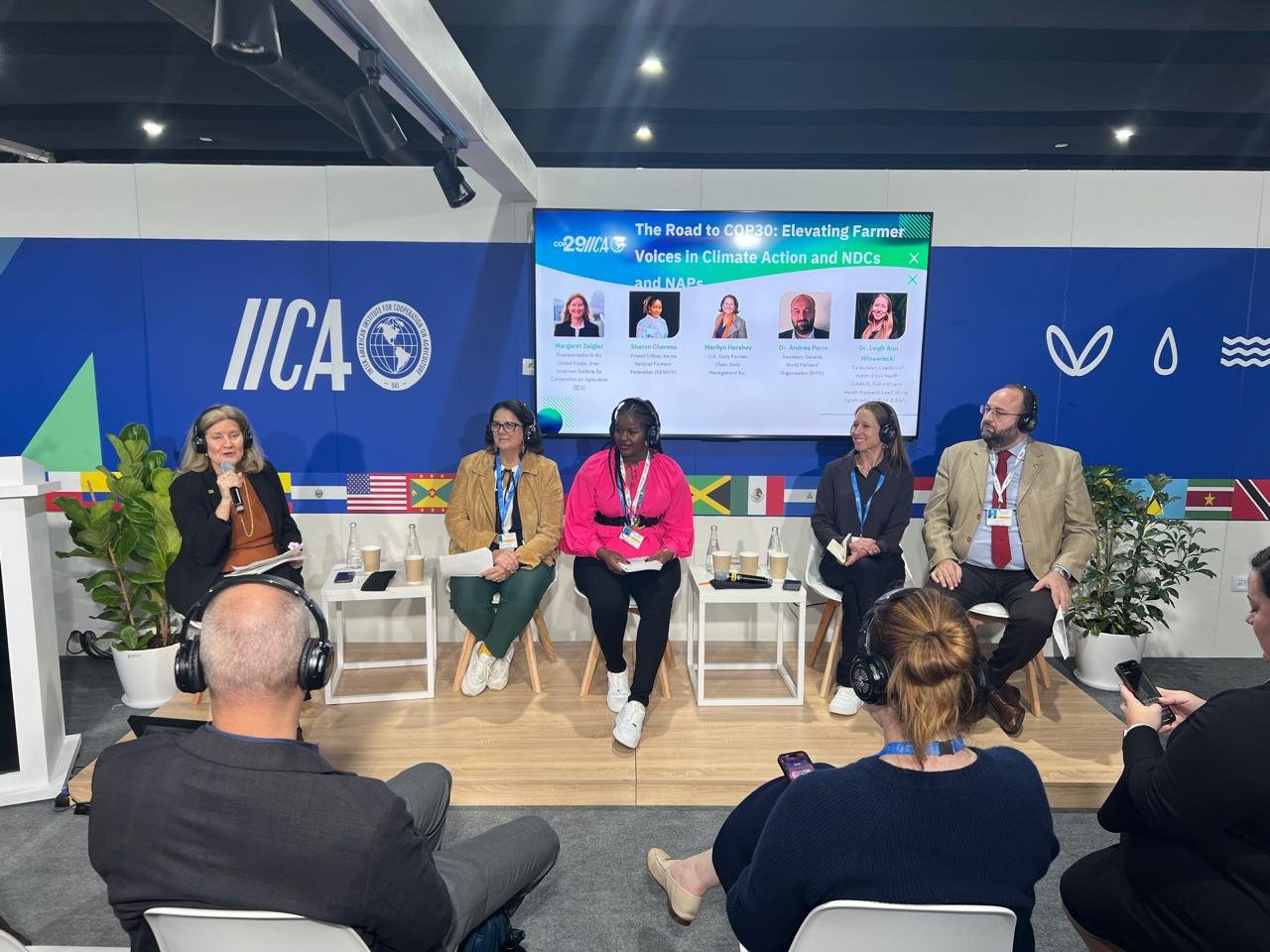
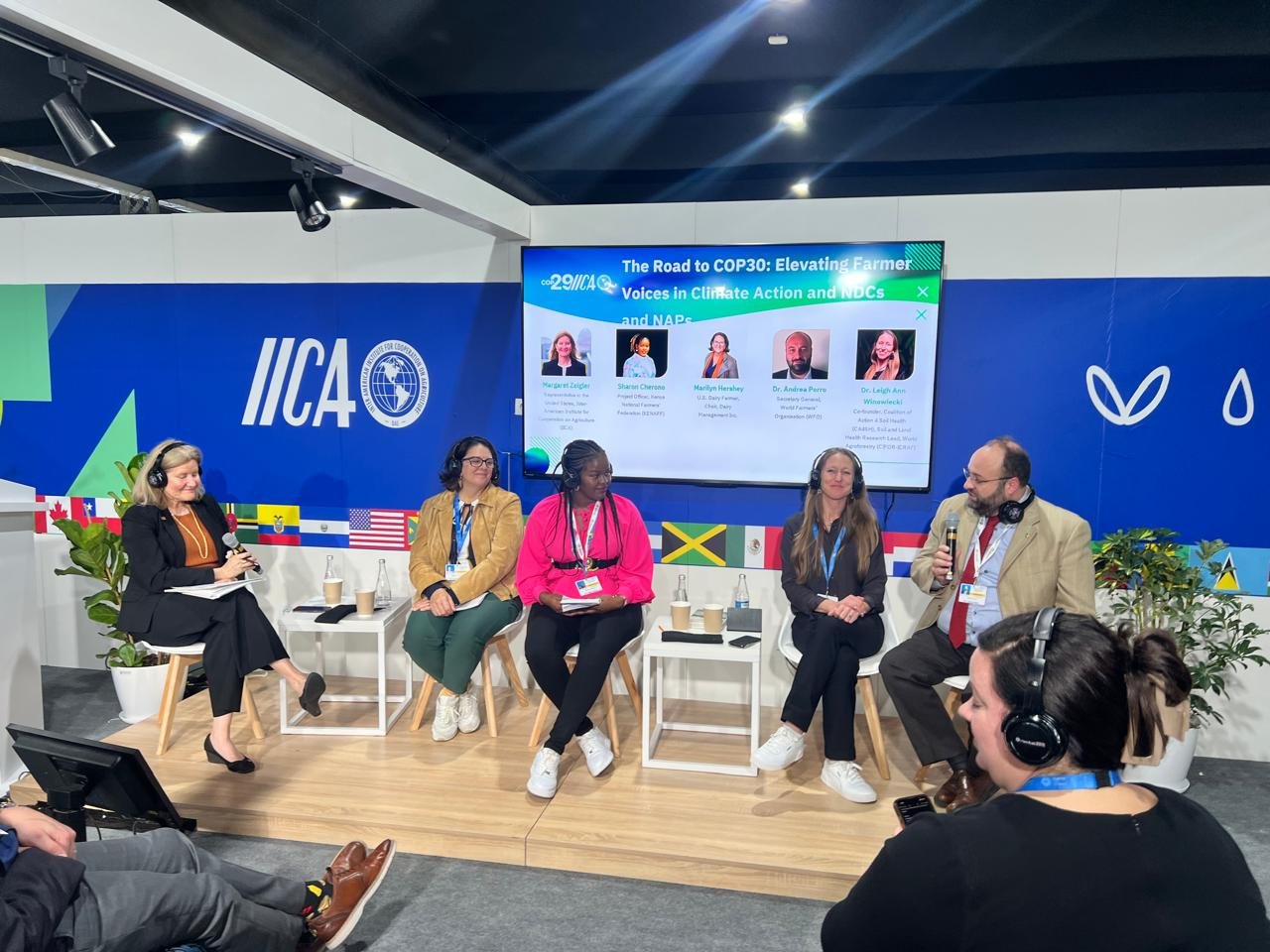
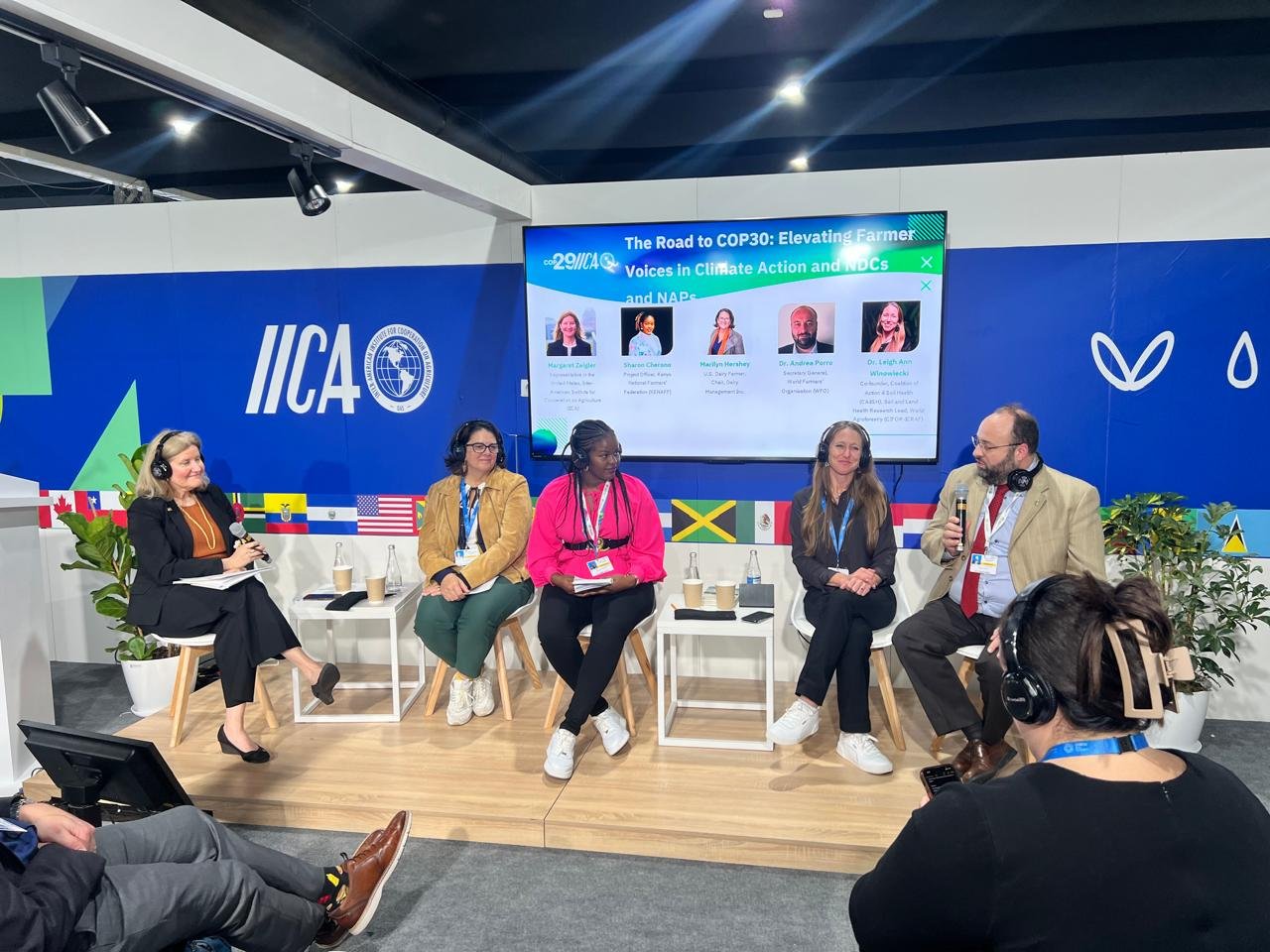

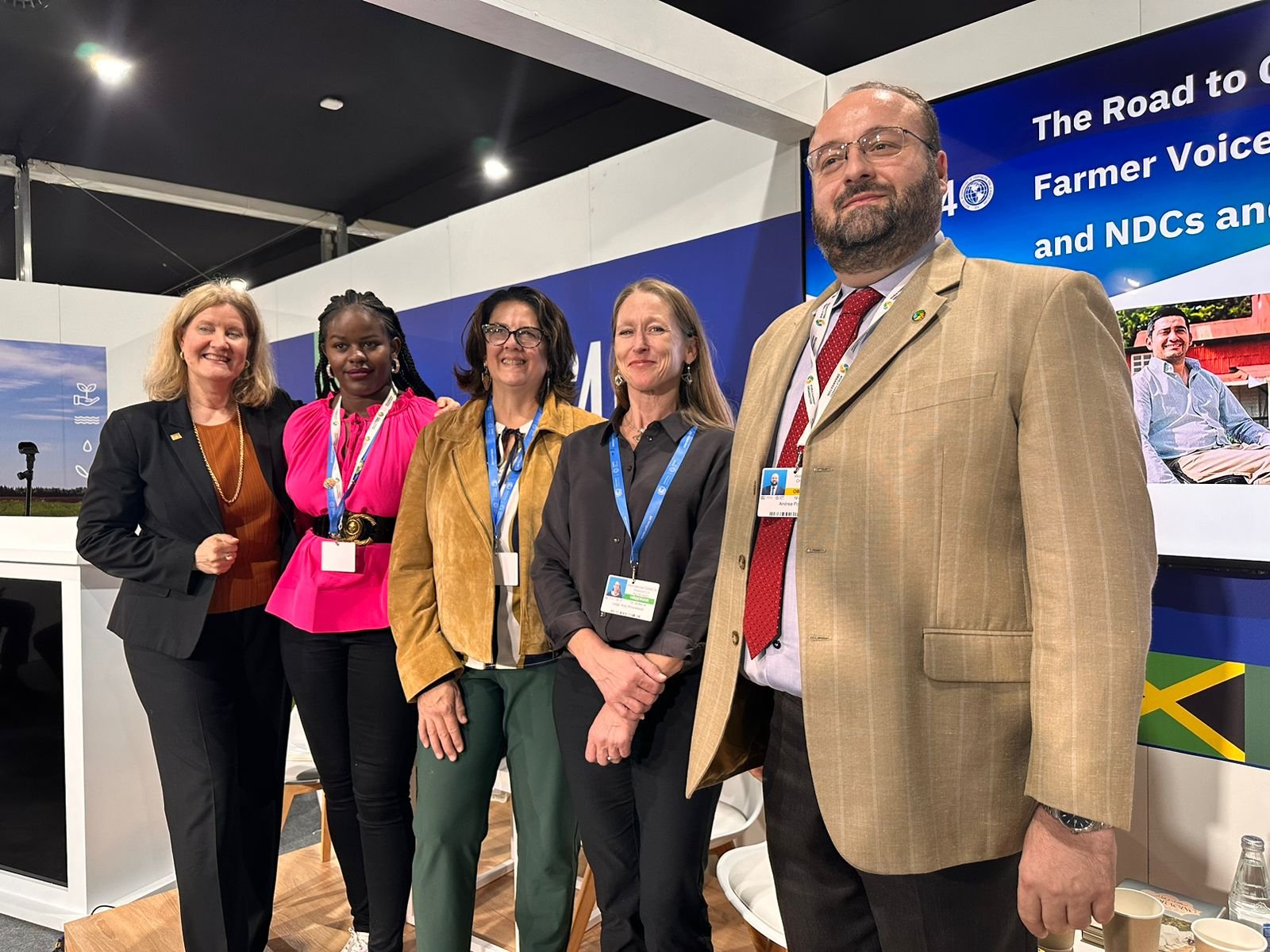
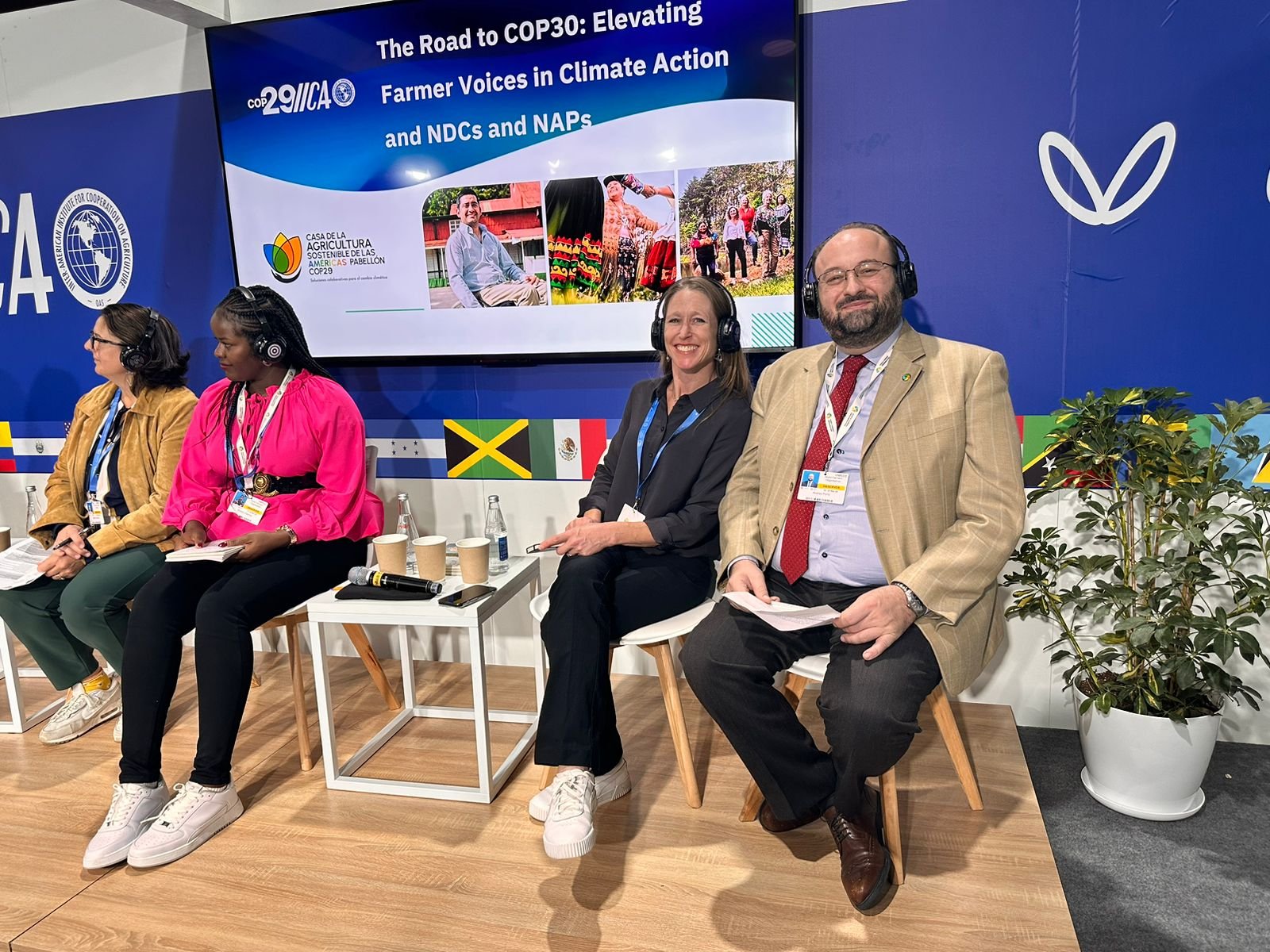
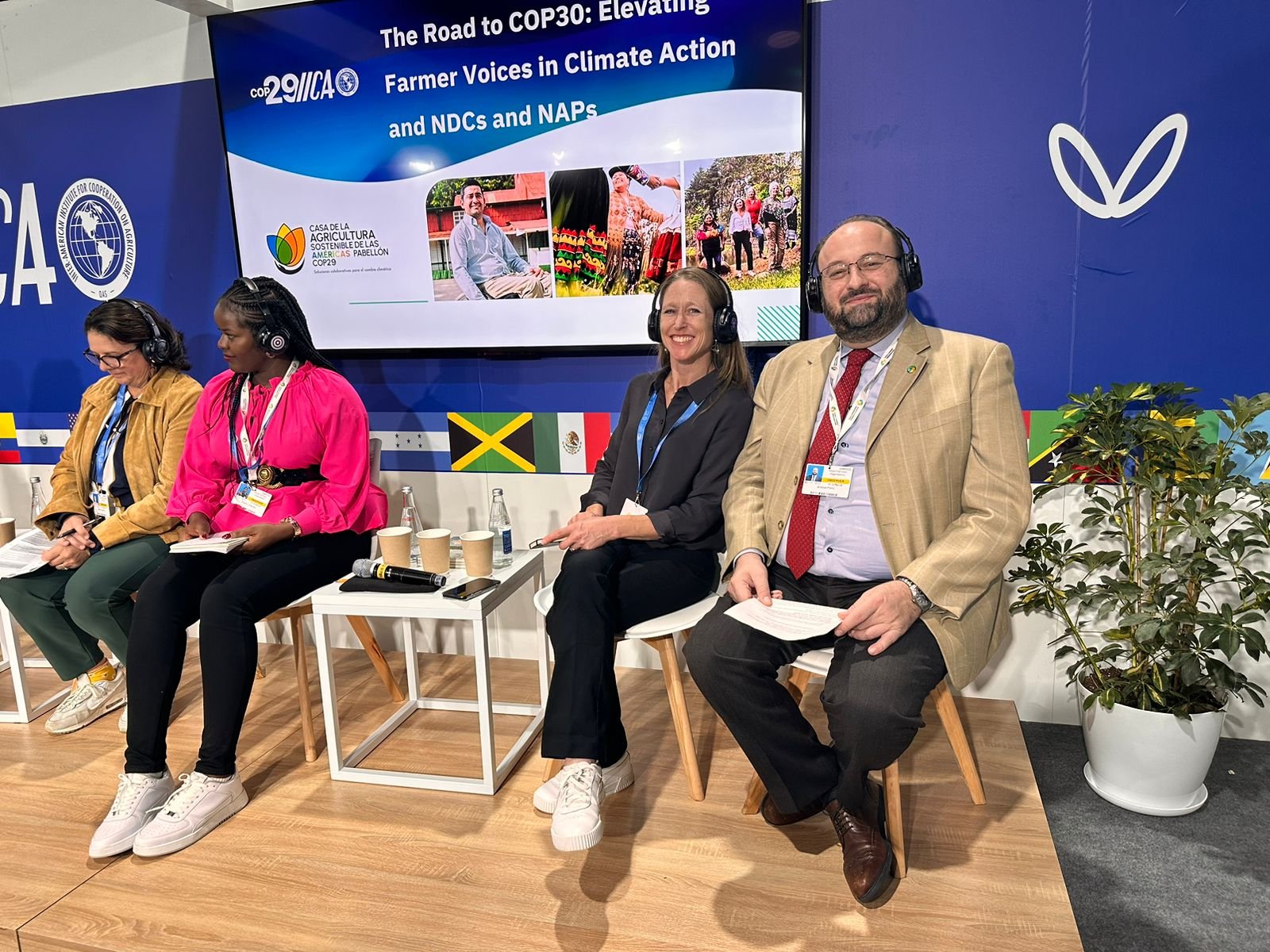
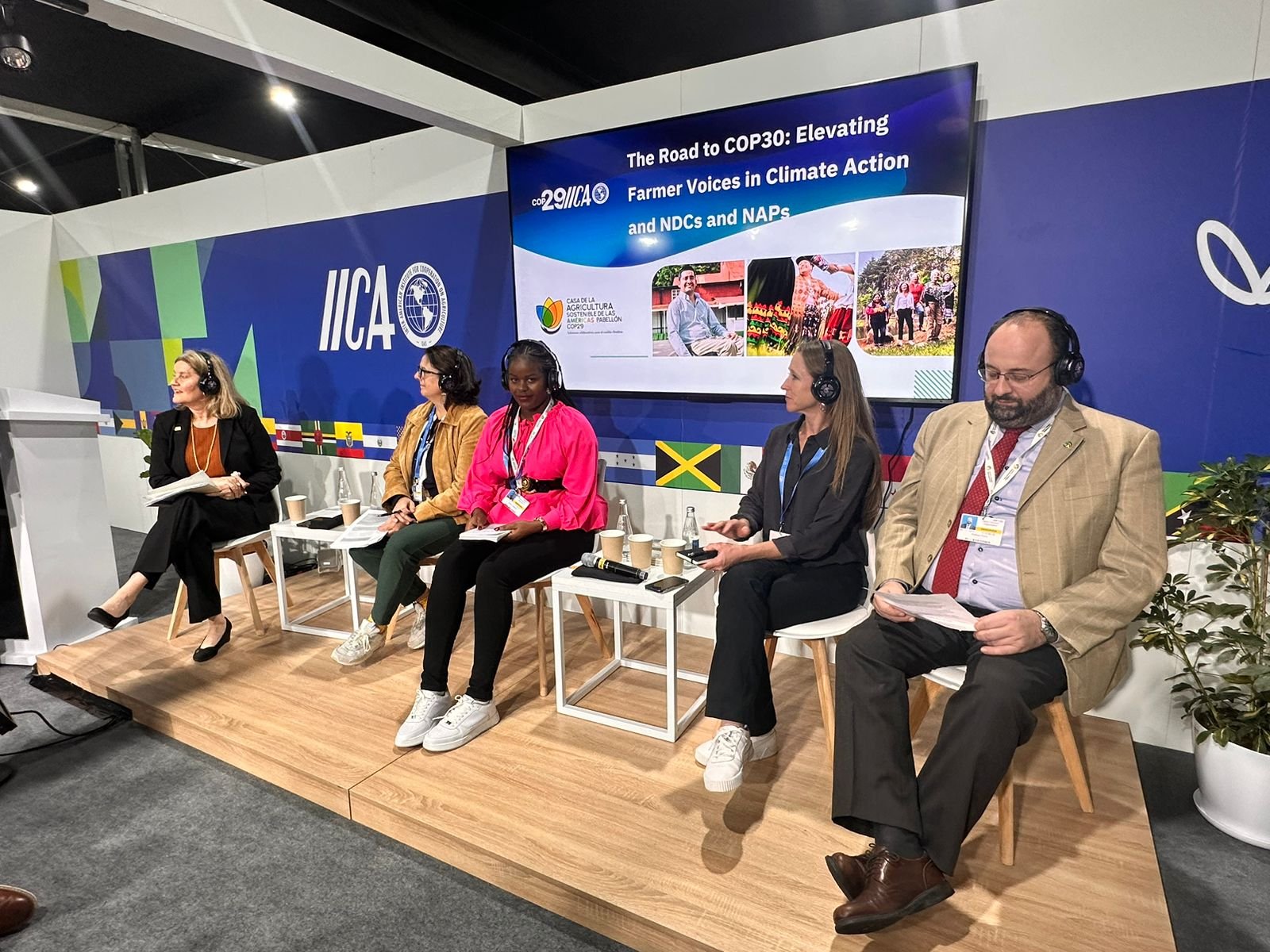
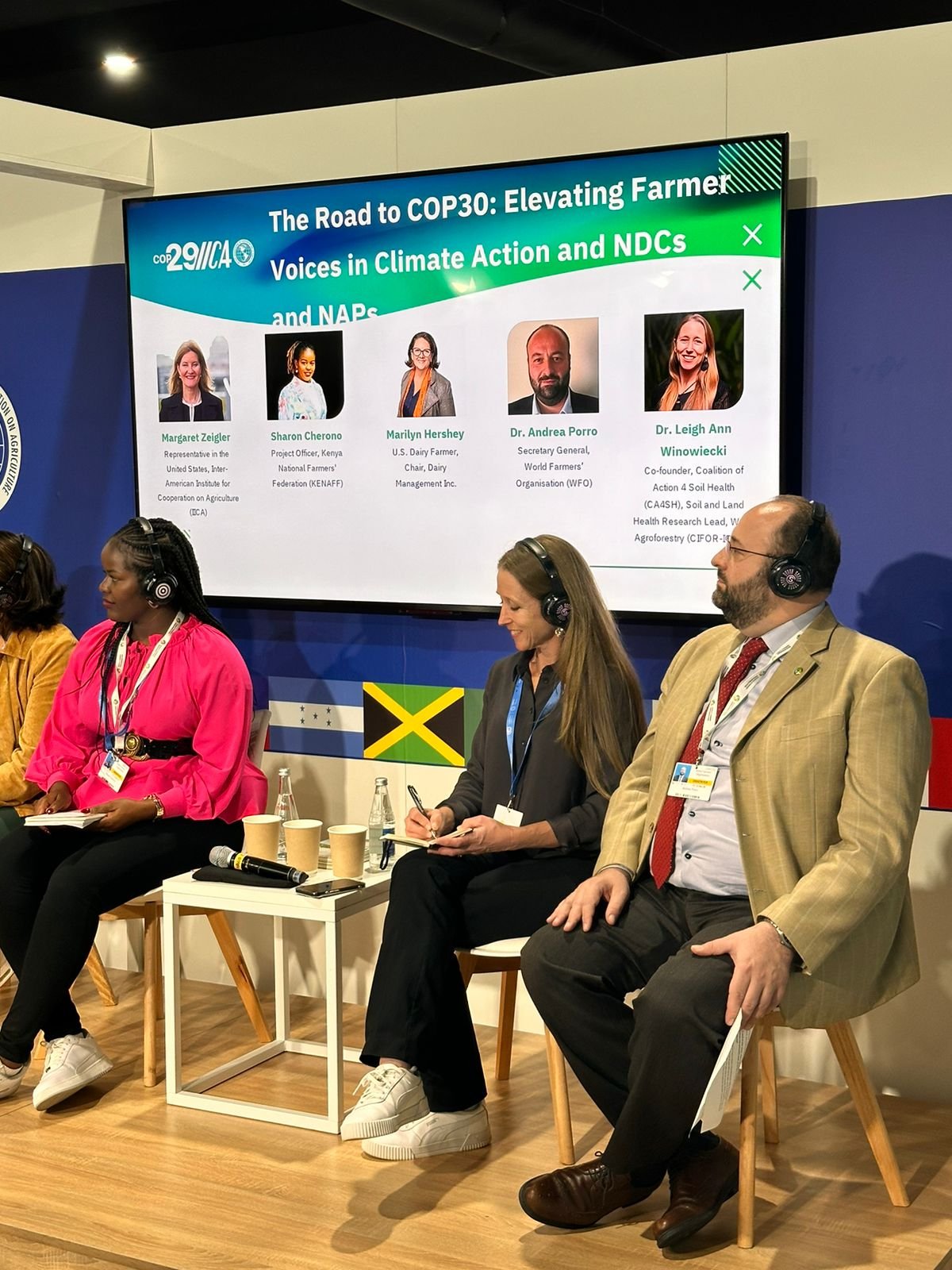
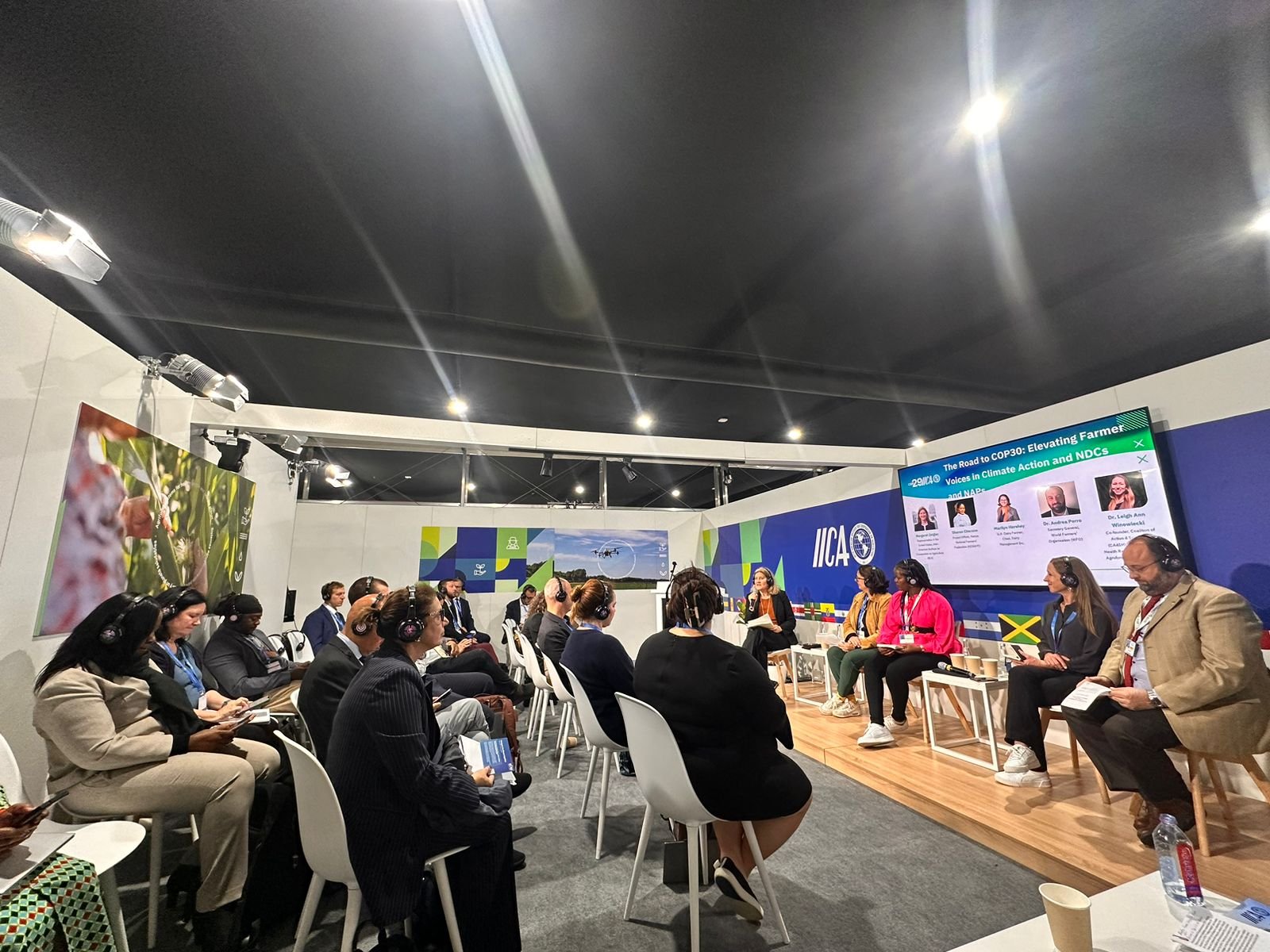
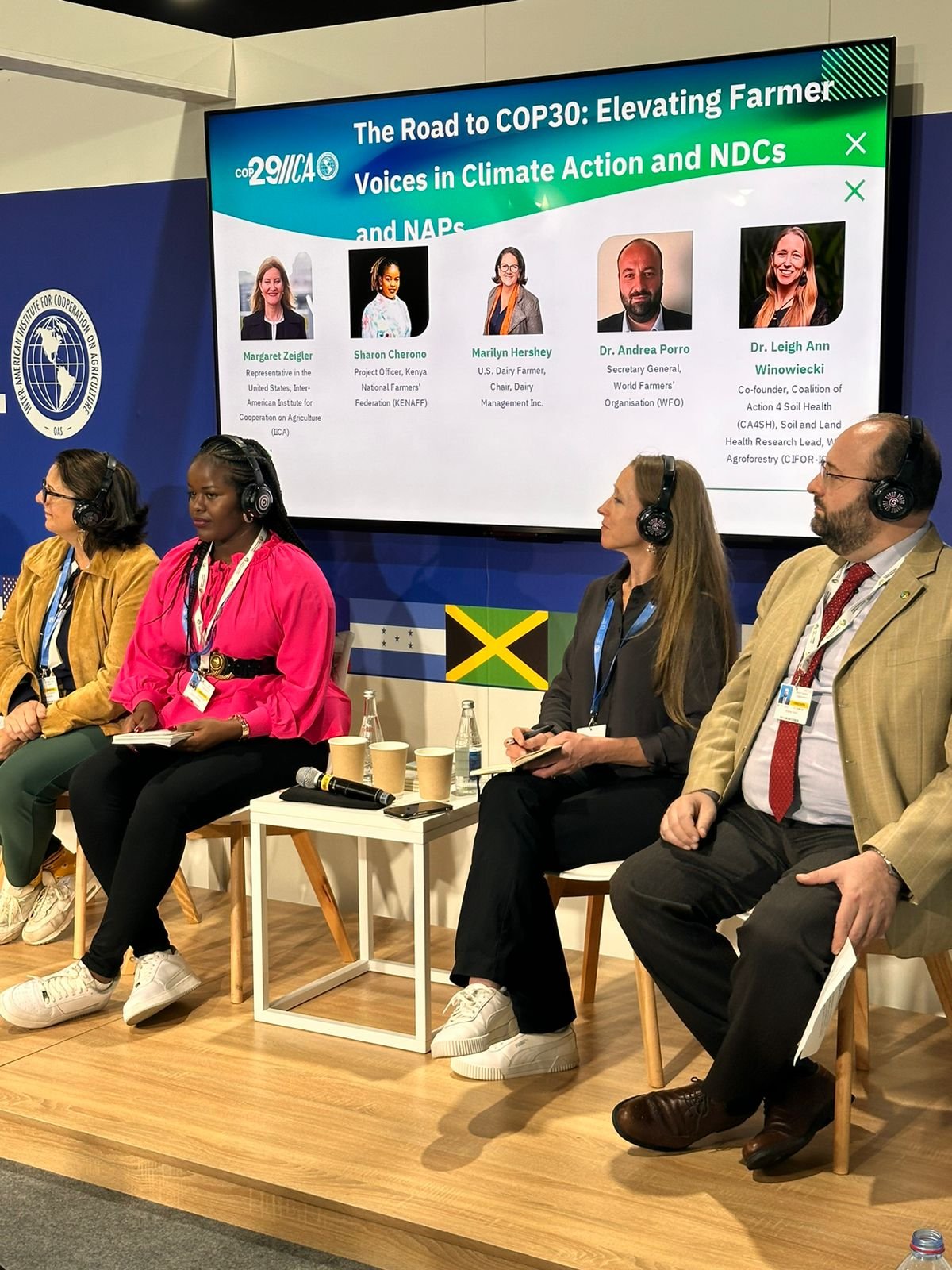
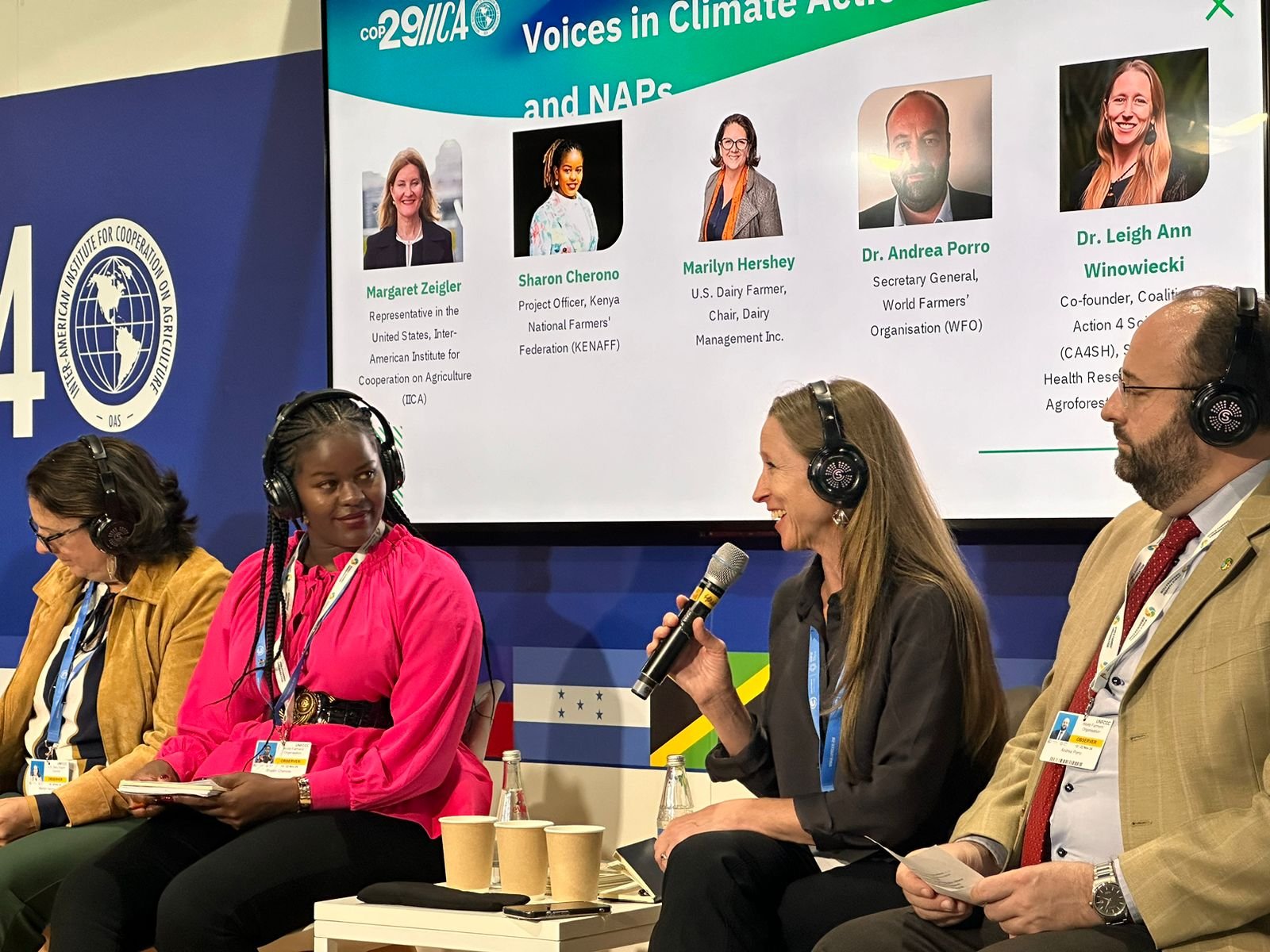

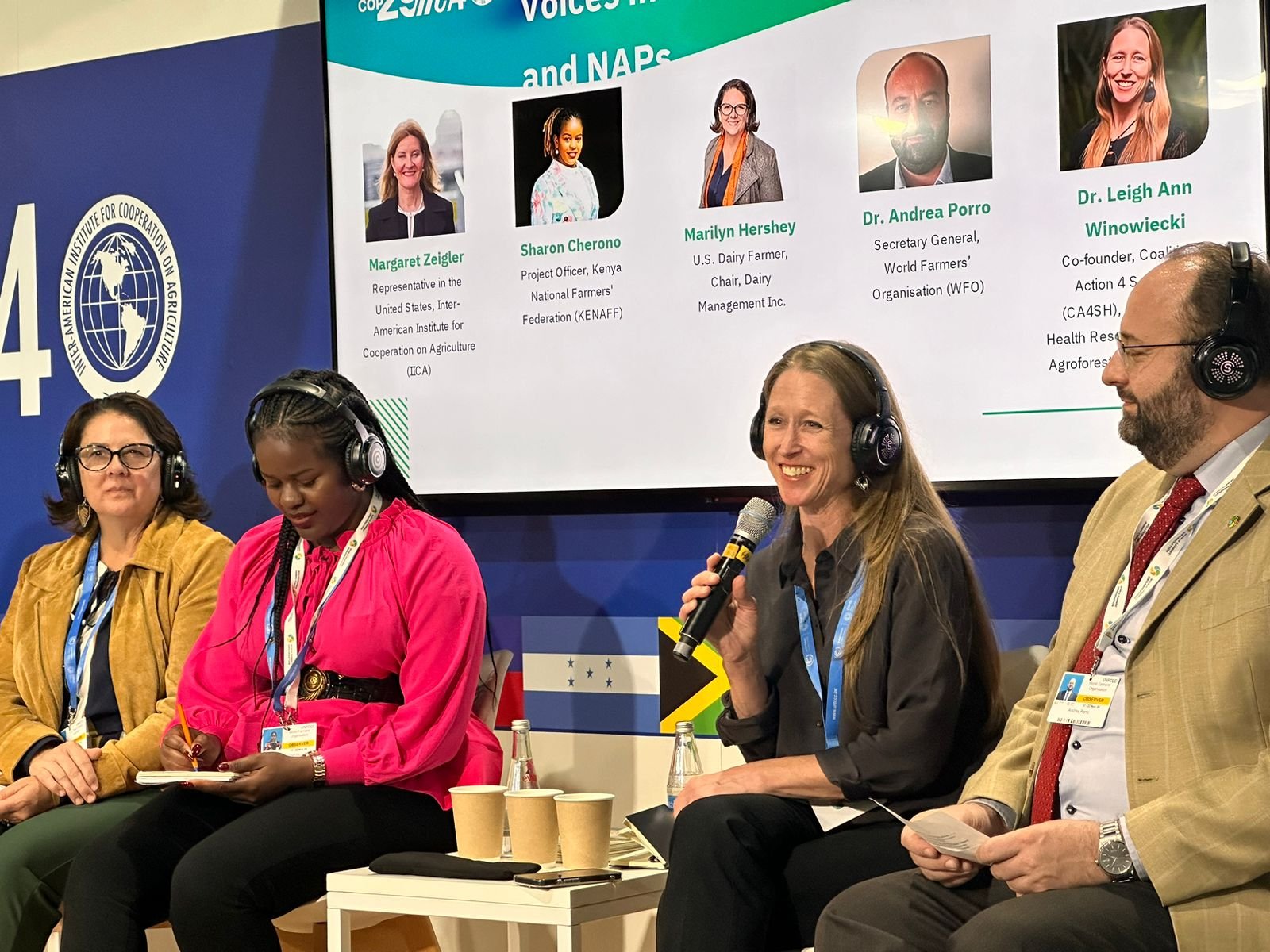
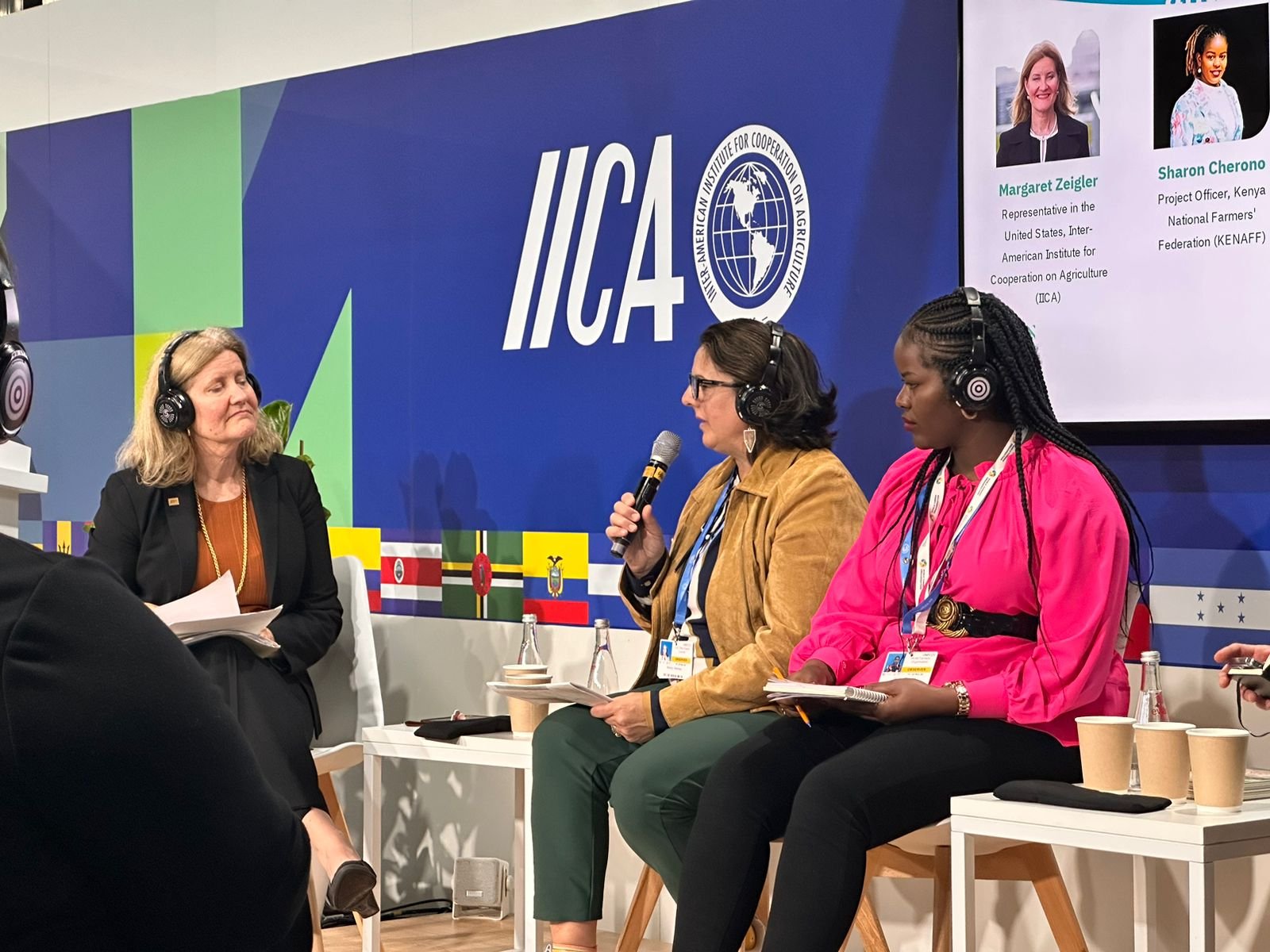

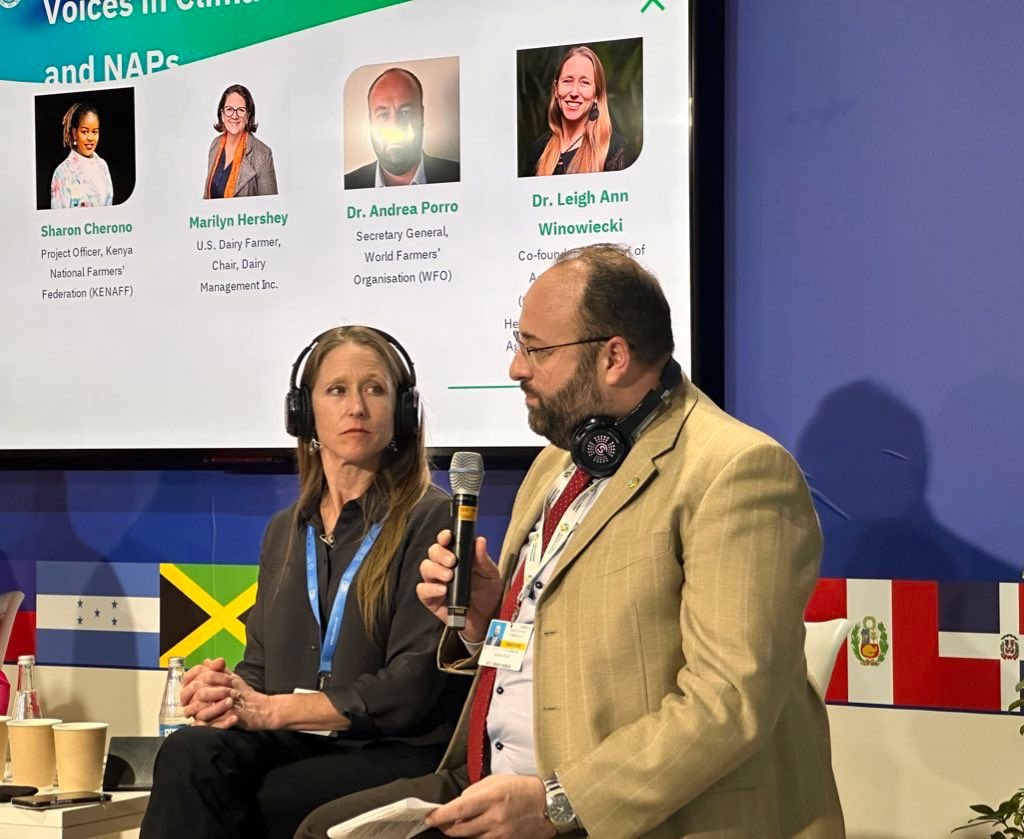
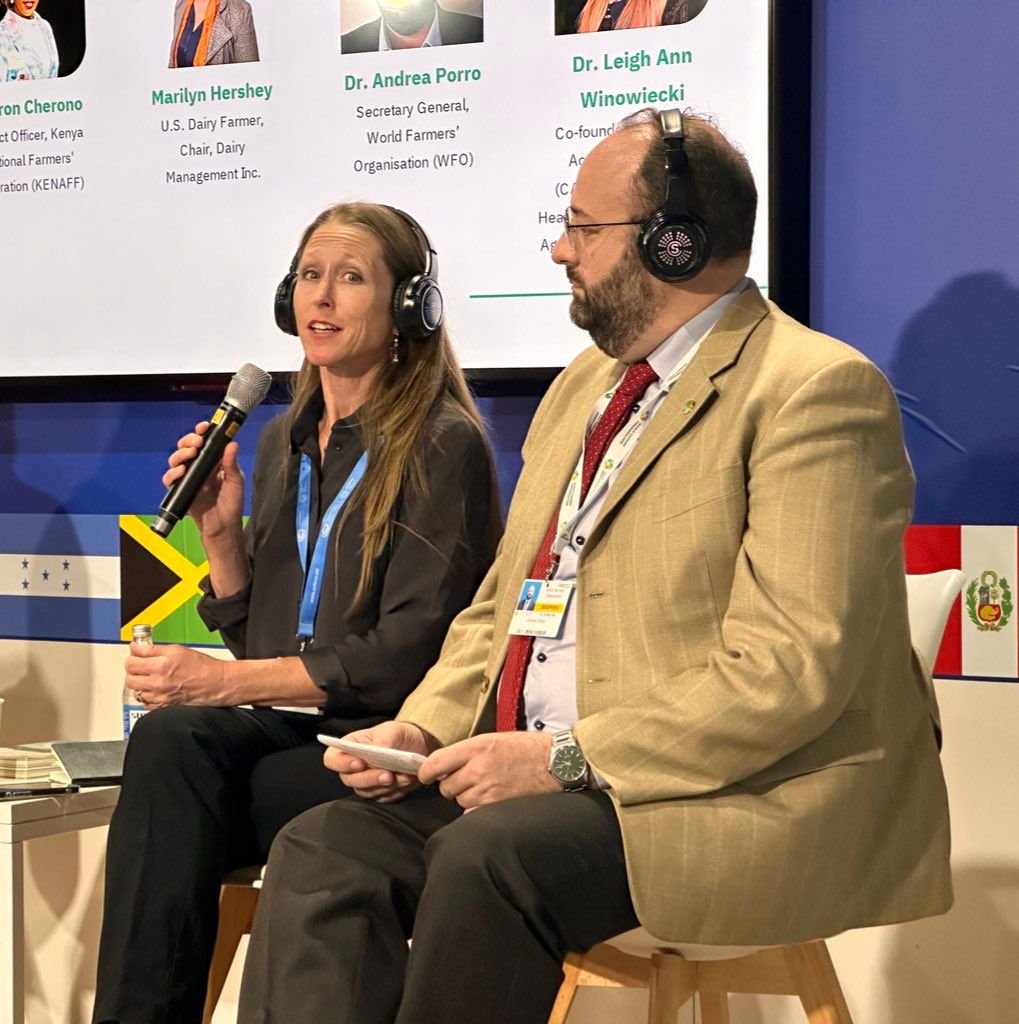
Advancing Soil Health and Green Fertilizers for Climate, Economic, and Food and Nutrition Resilience
CA4SH and partners CIFOR-ICRAF, RTI International, the U.S. Department of Agriculture (USDA) and the Sustainable Productivity Growth (SPG) Coalition co-hosted a side event at the US Centre exploring the importance of investing in soil health, sustainable agricultural productivity growth, and green fertilizer solutions to strengthen food and nutrition security, restore ecosystems, and drive sustainable, inclusive economic growth.

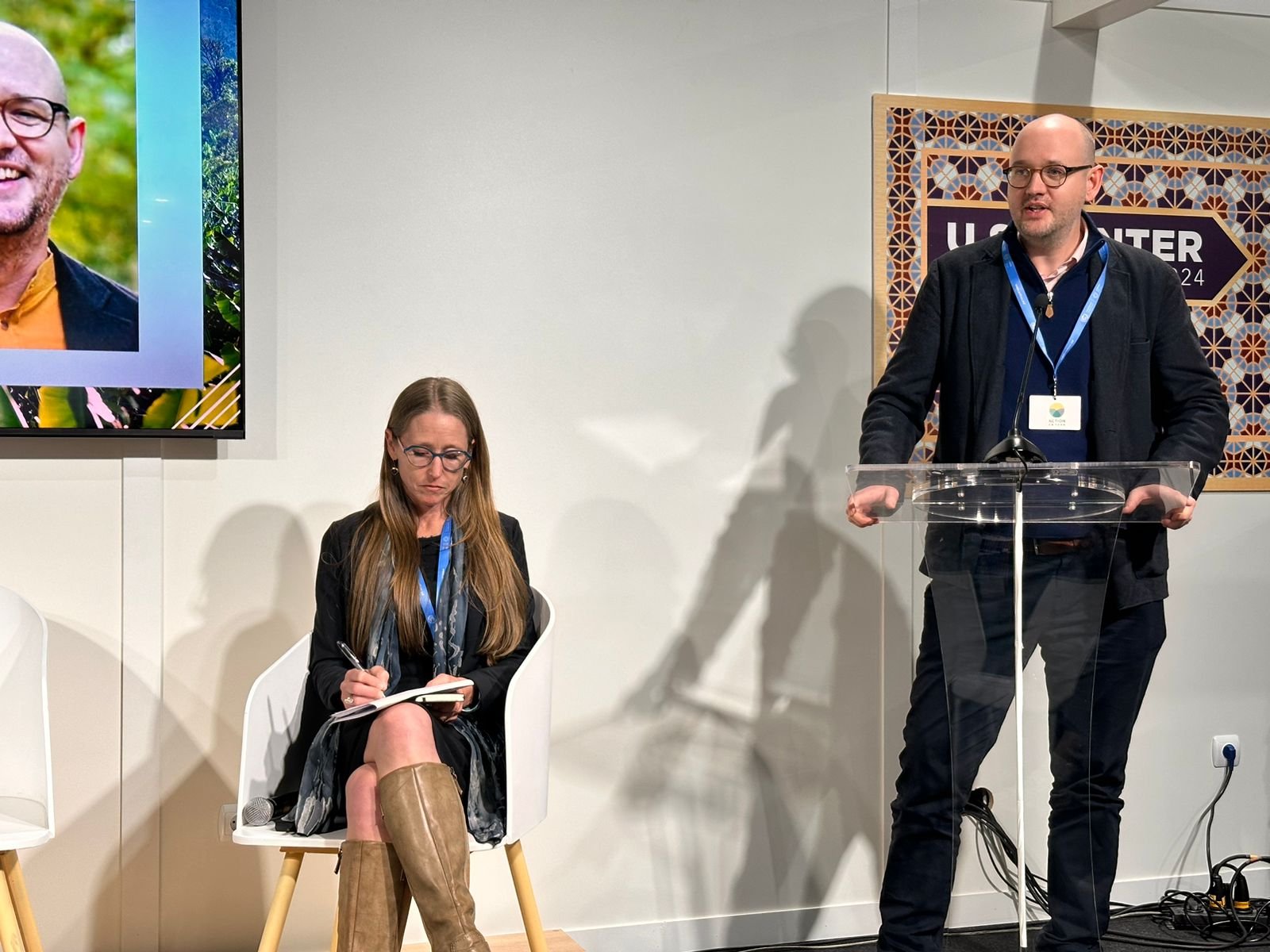

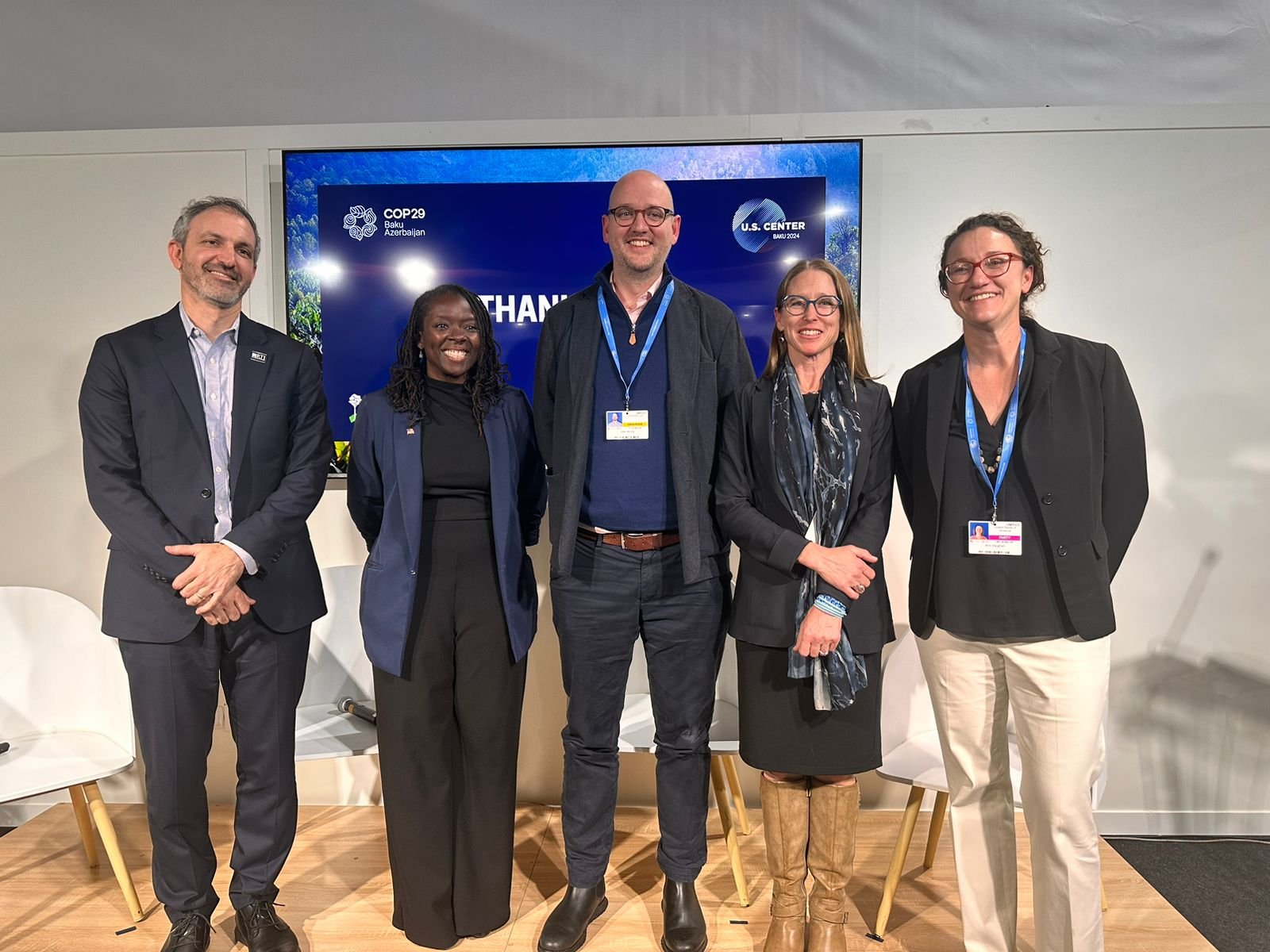


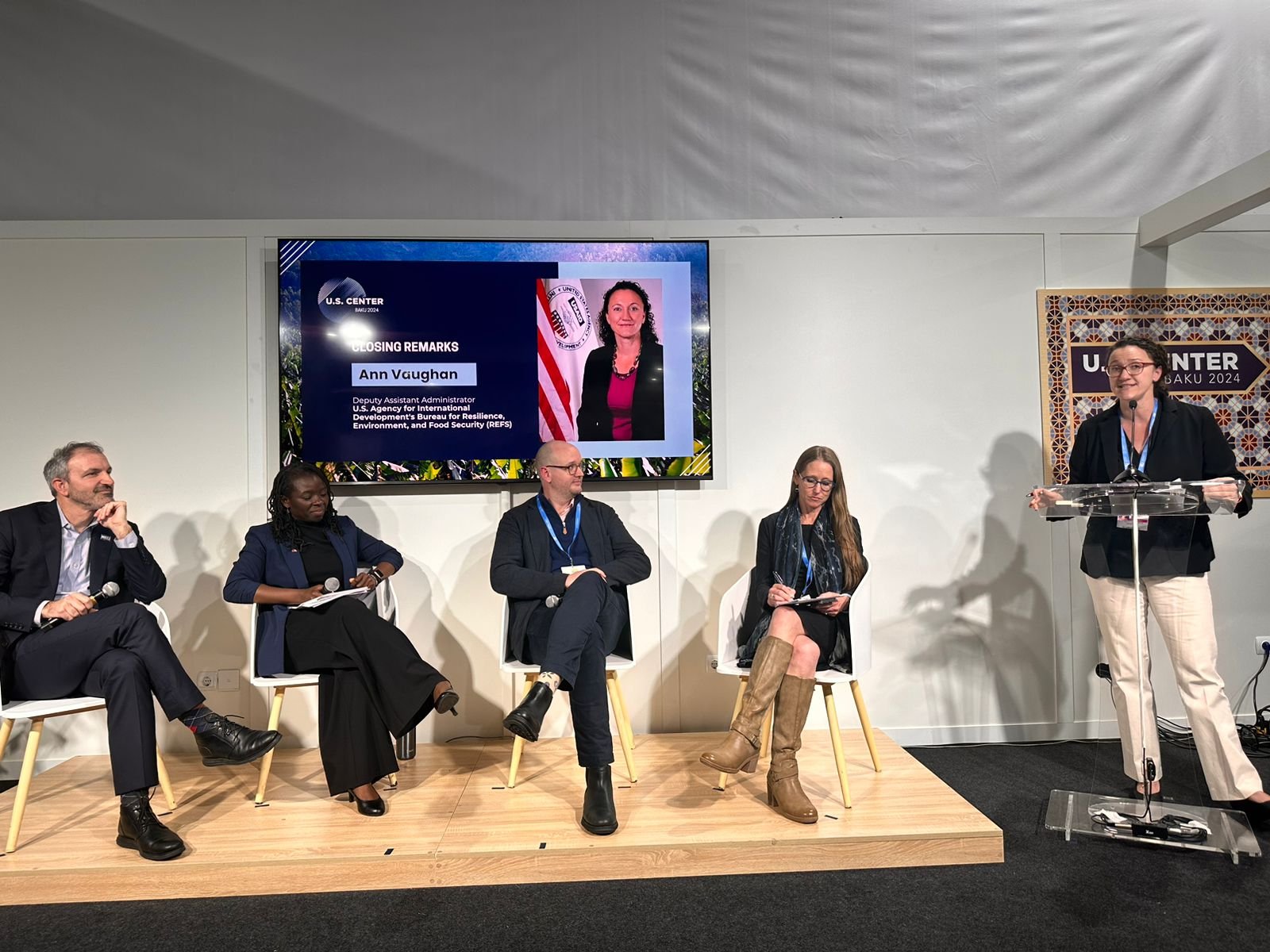
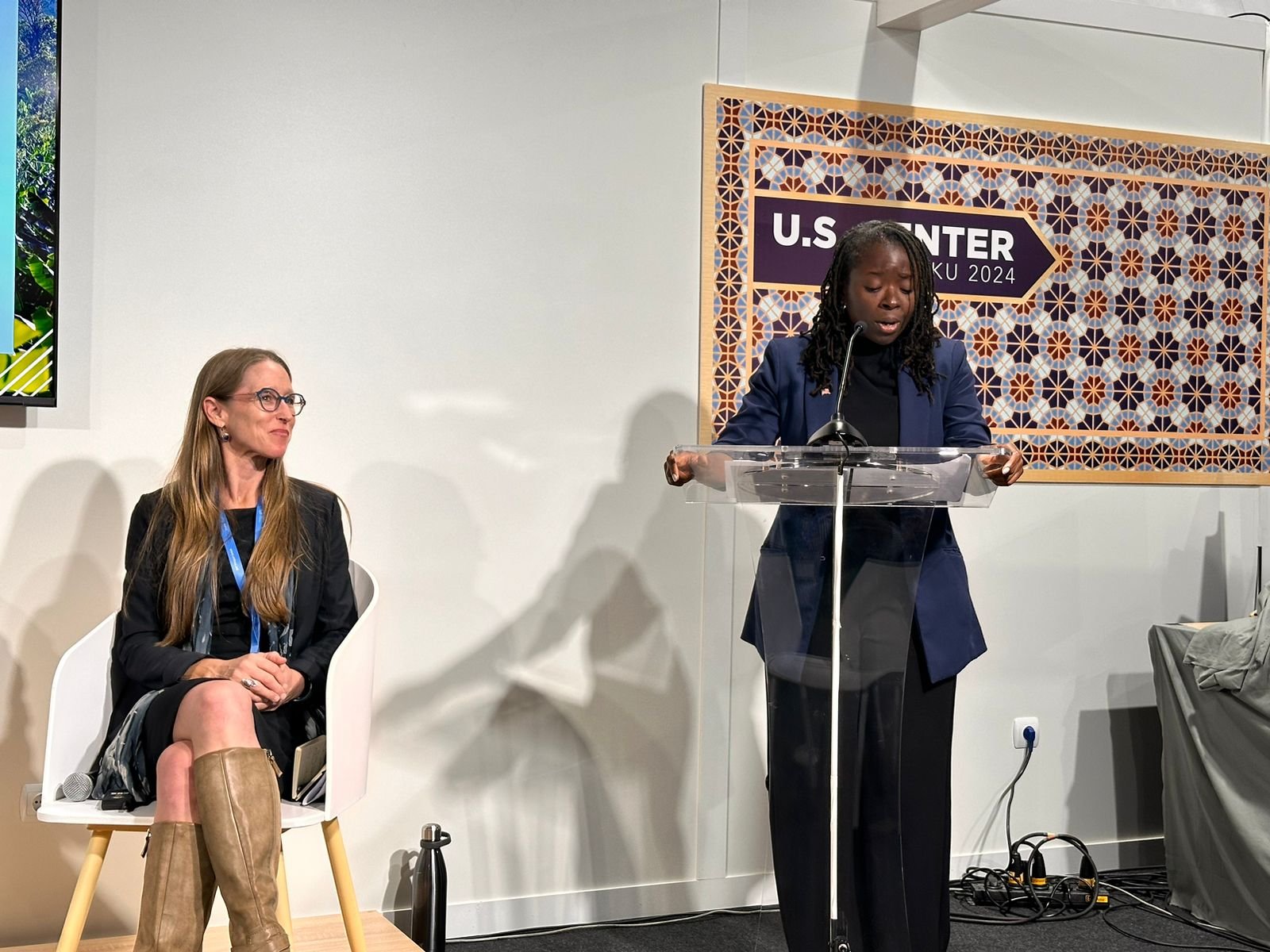
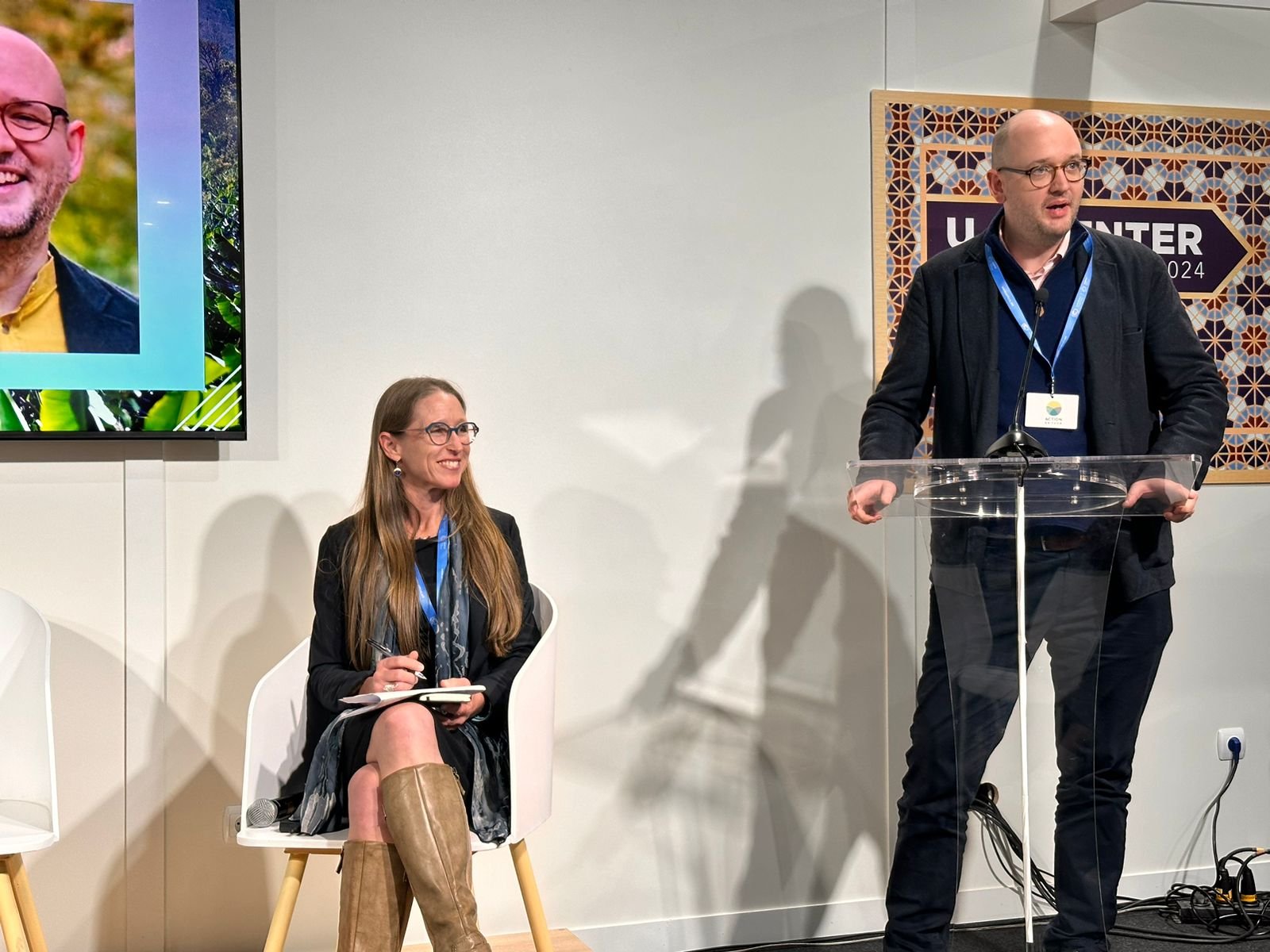
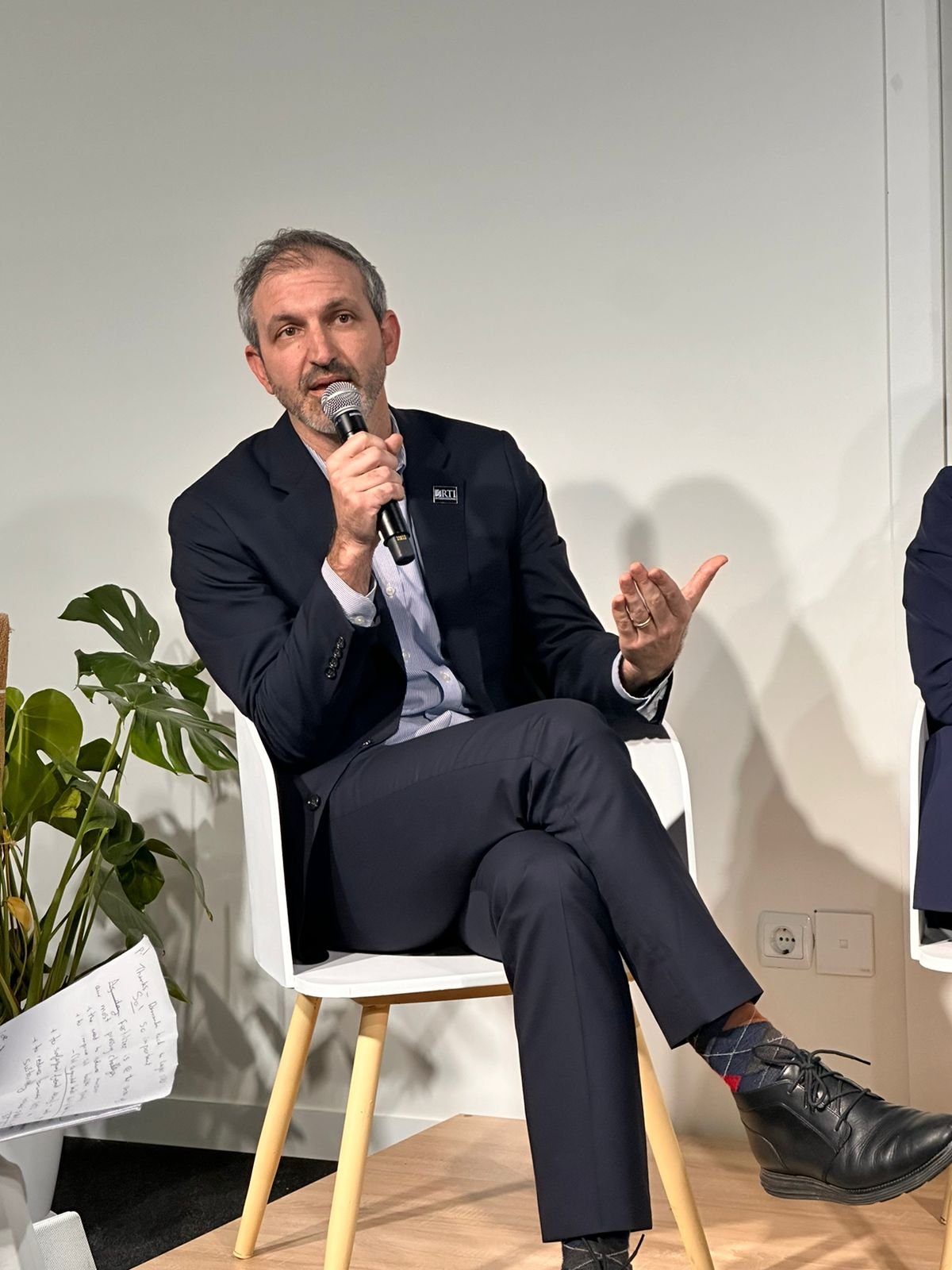
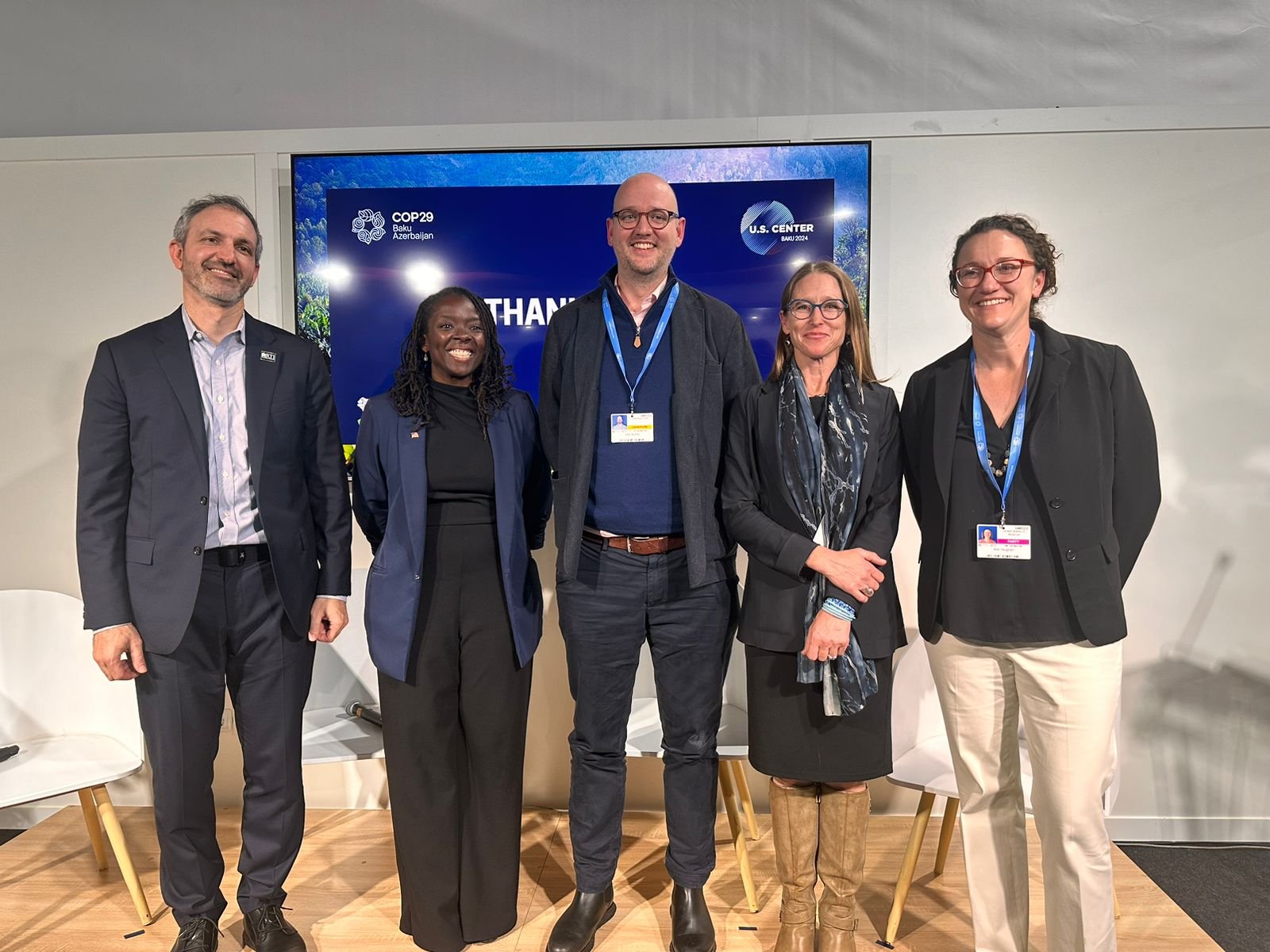

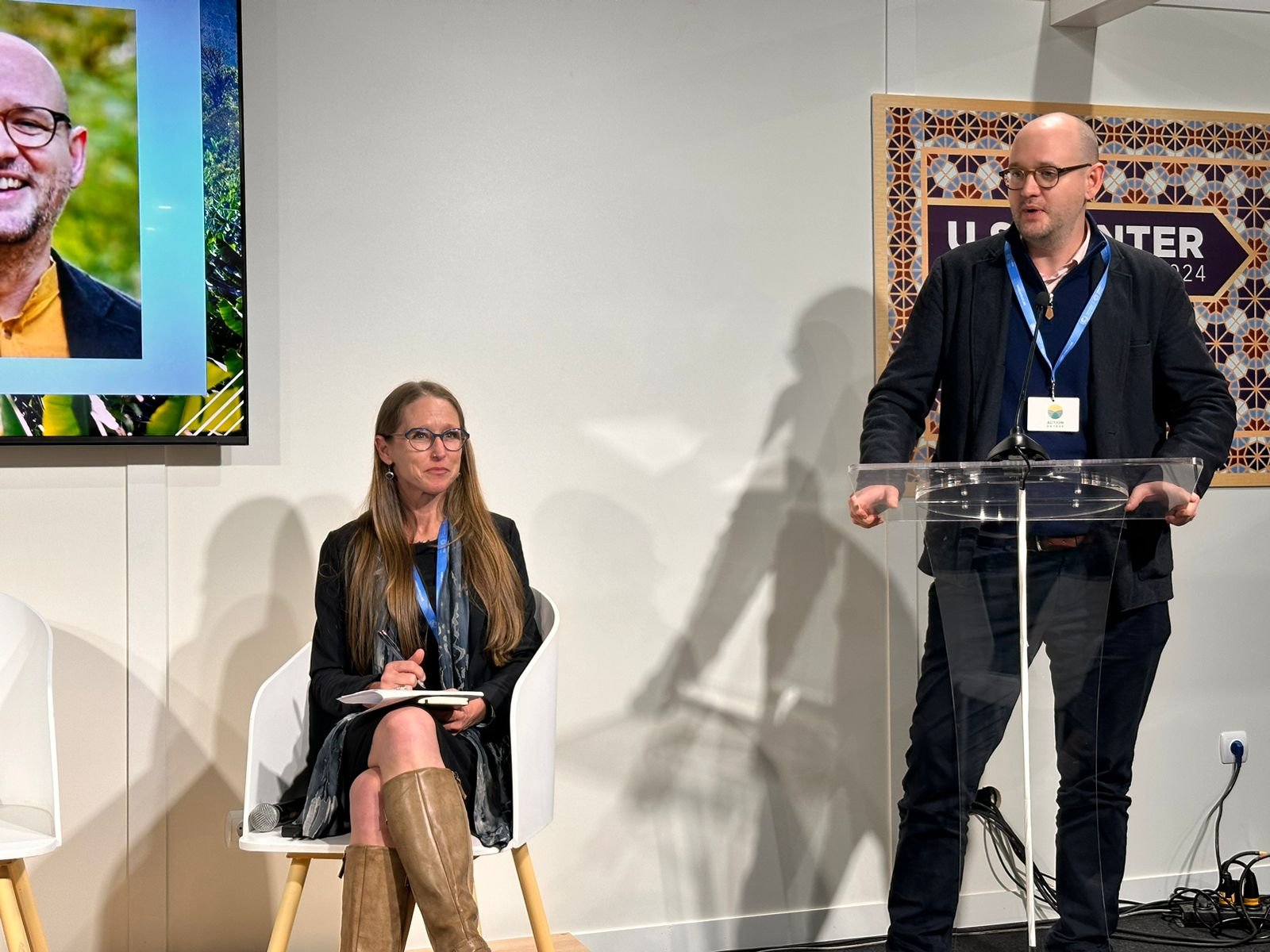
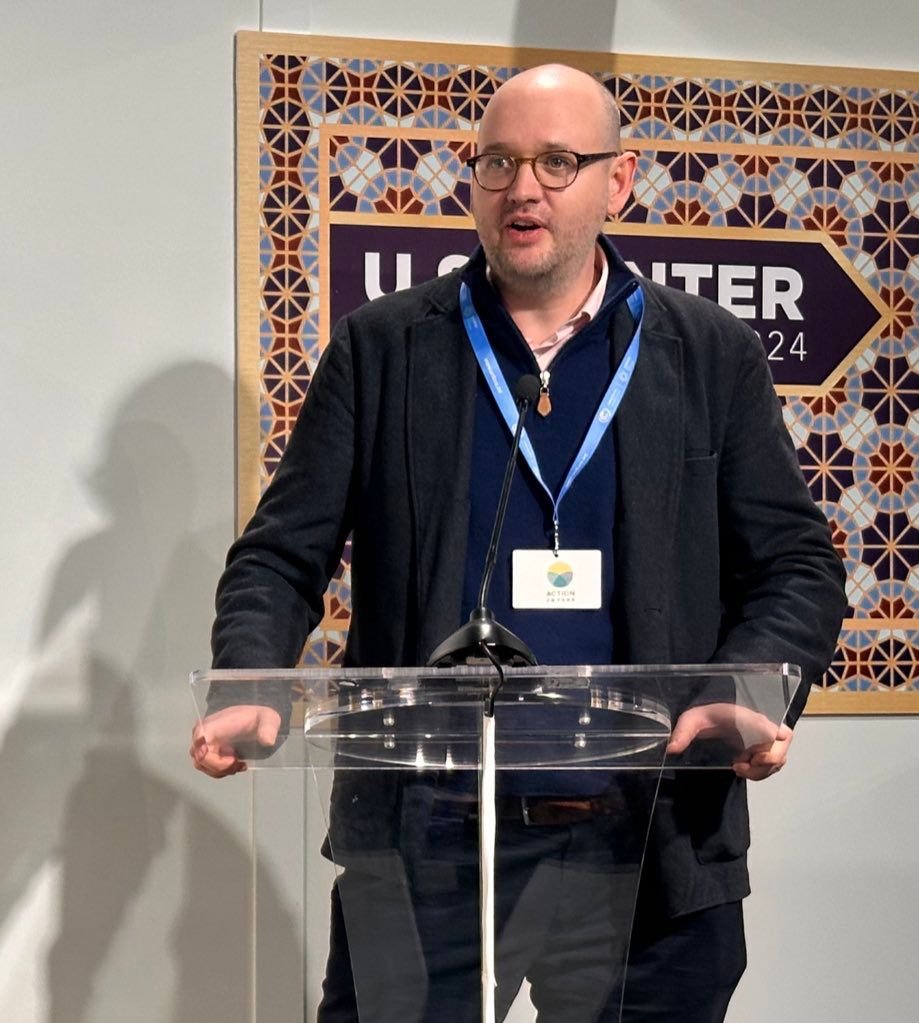

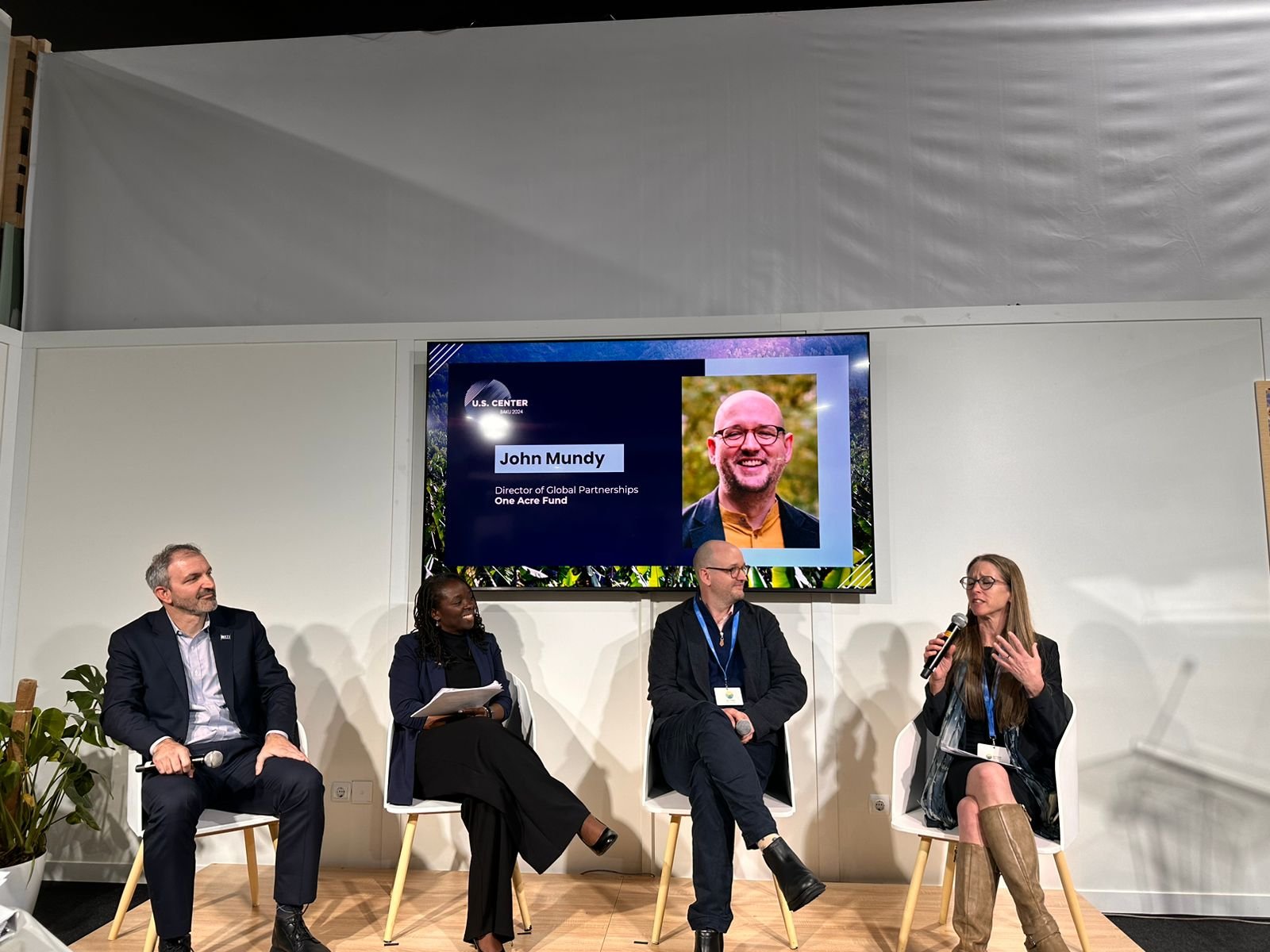
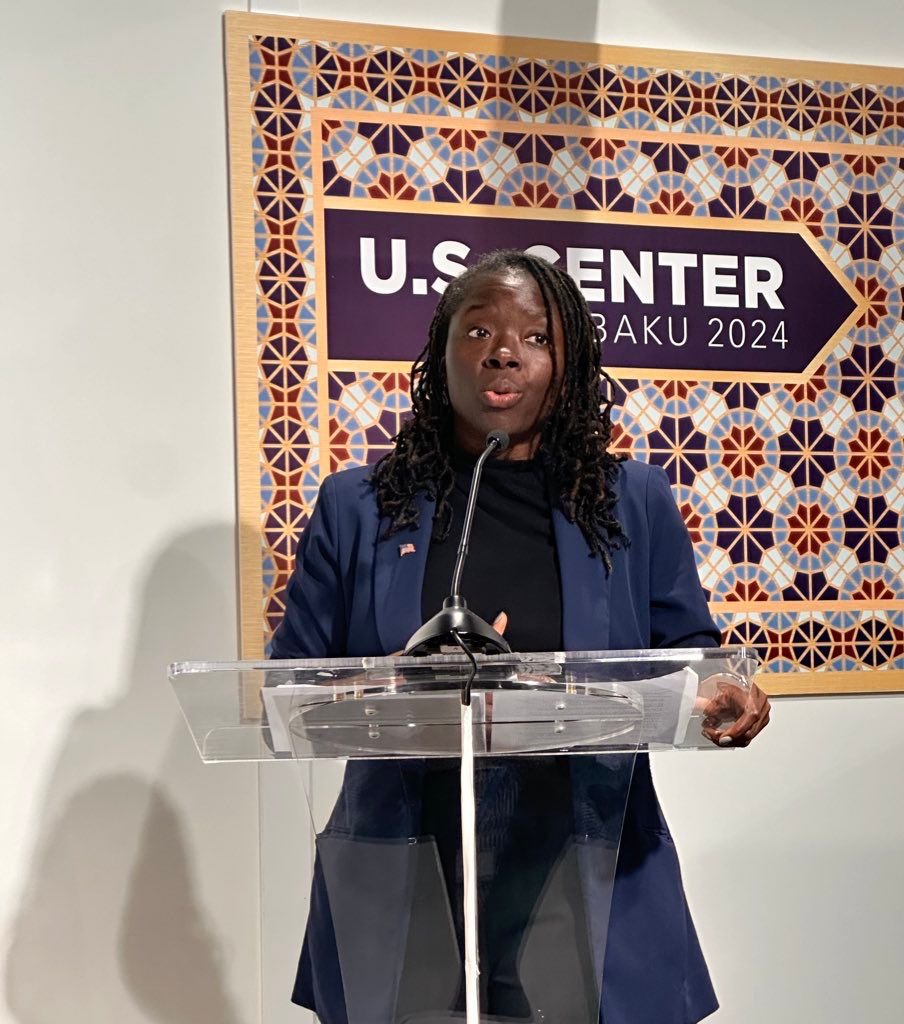
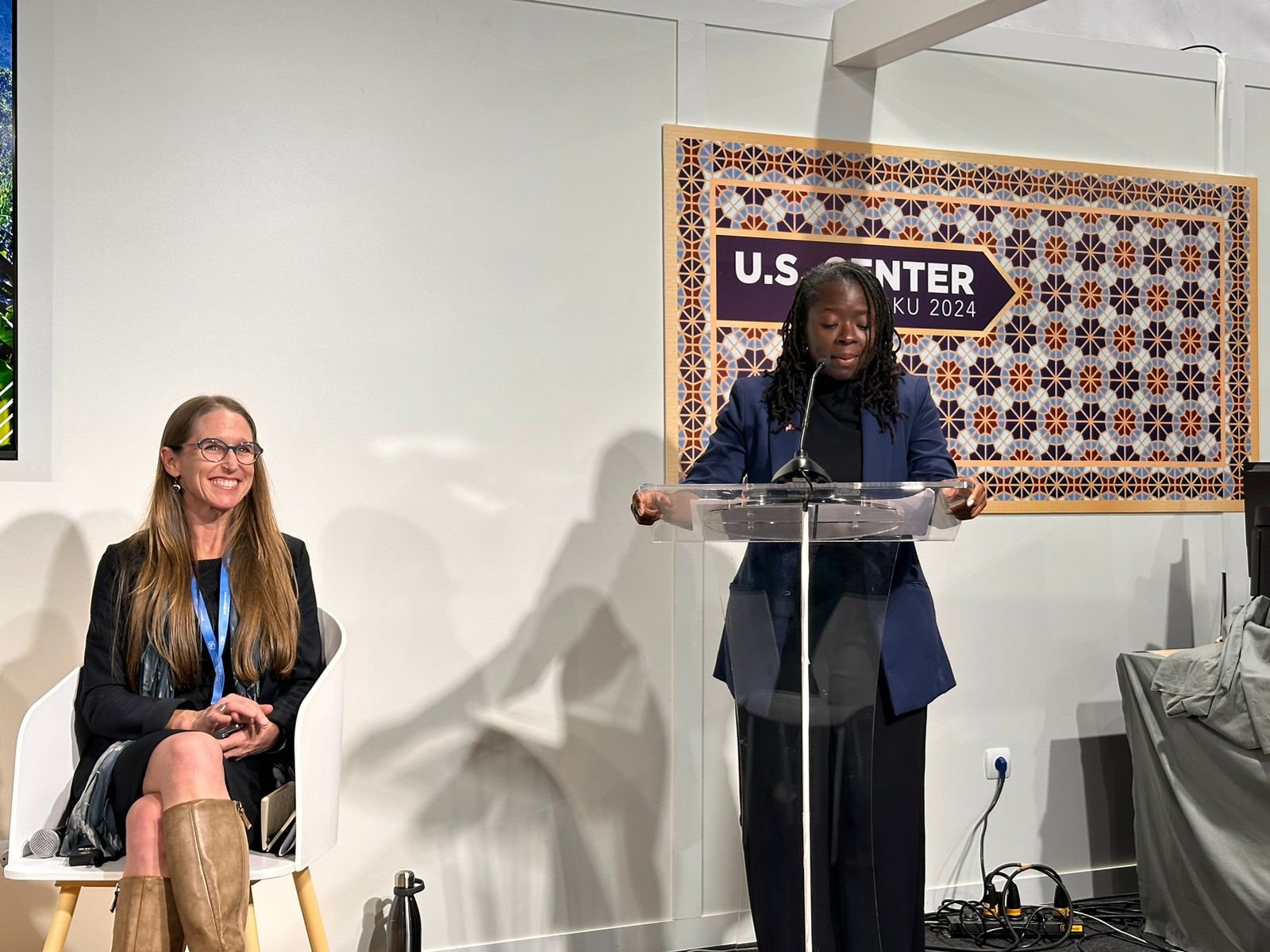
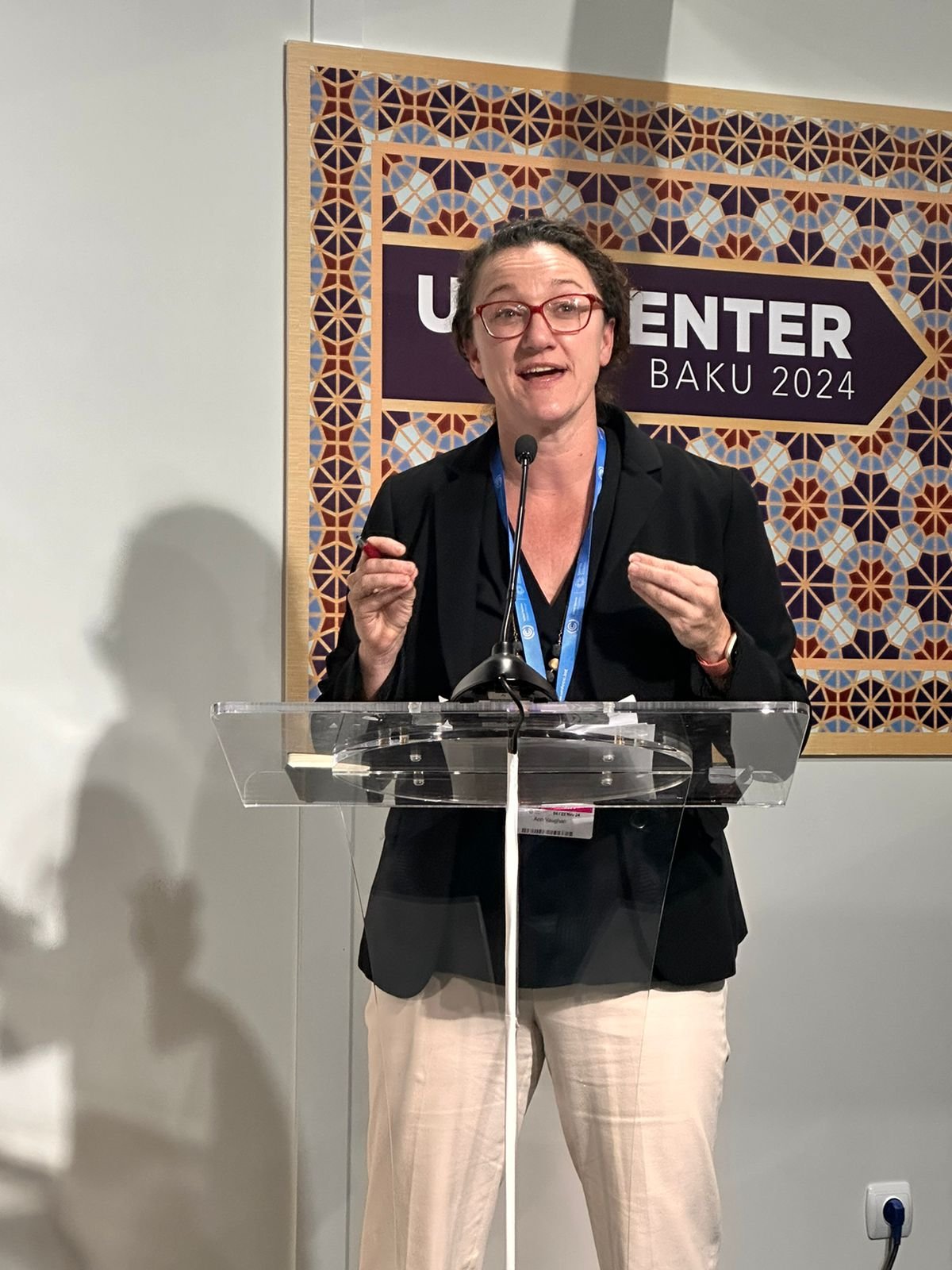

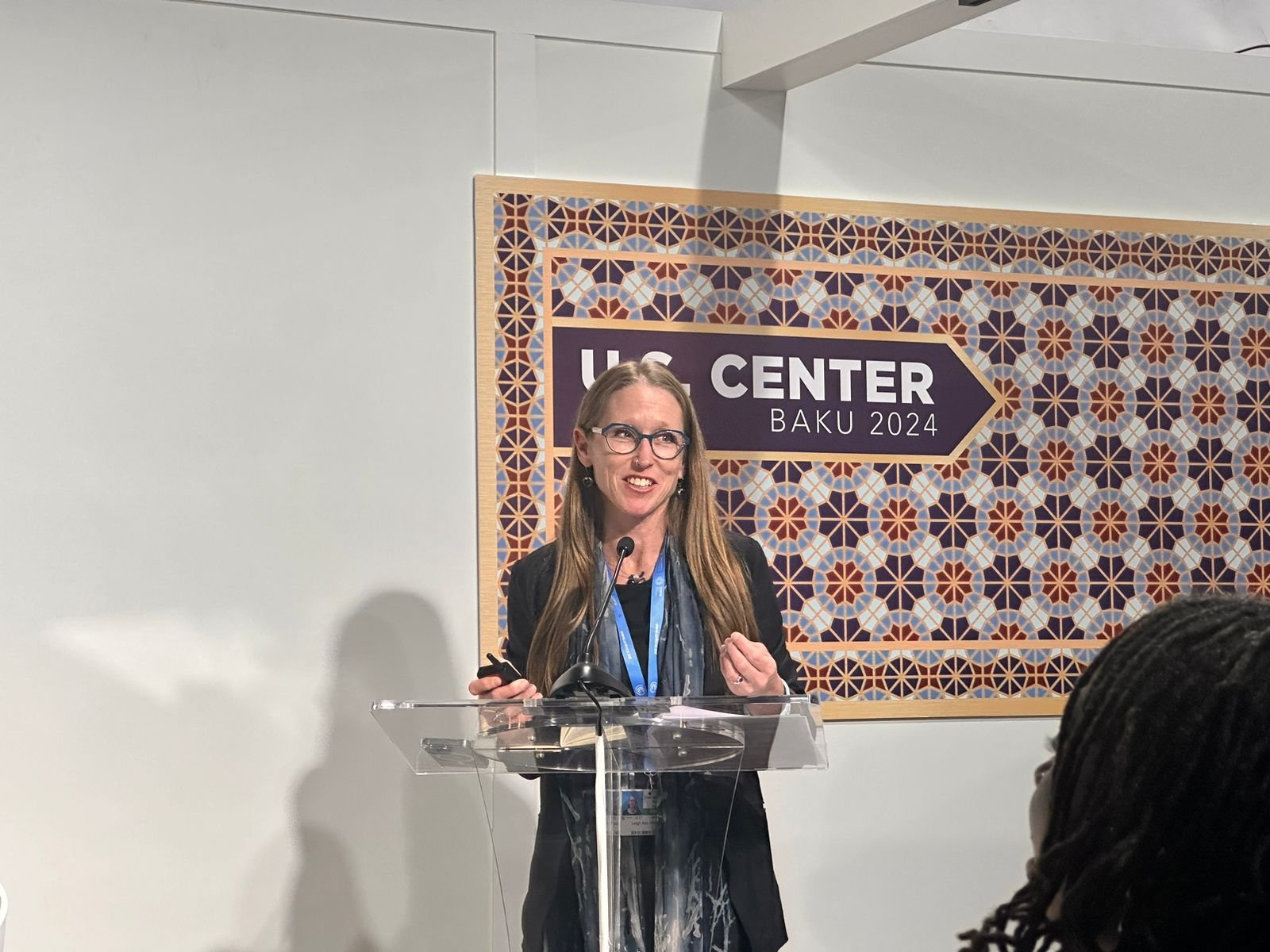
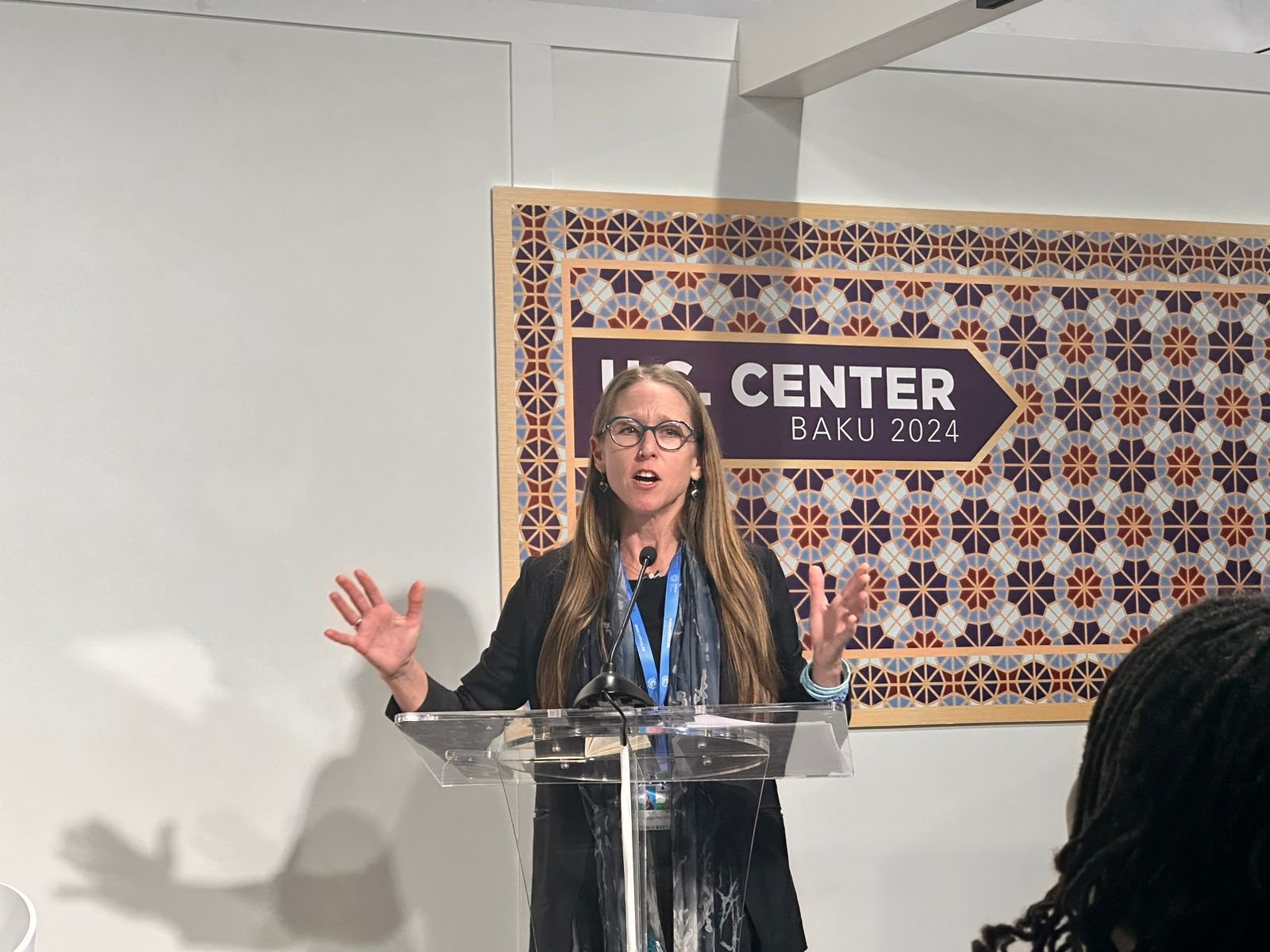
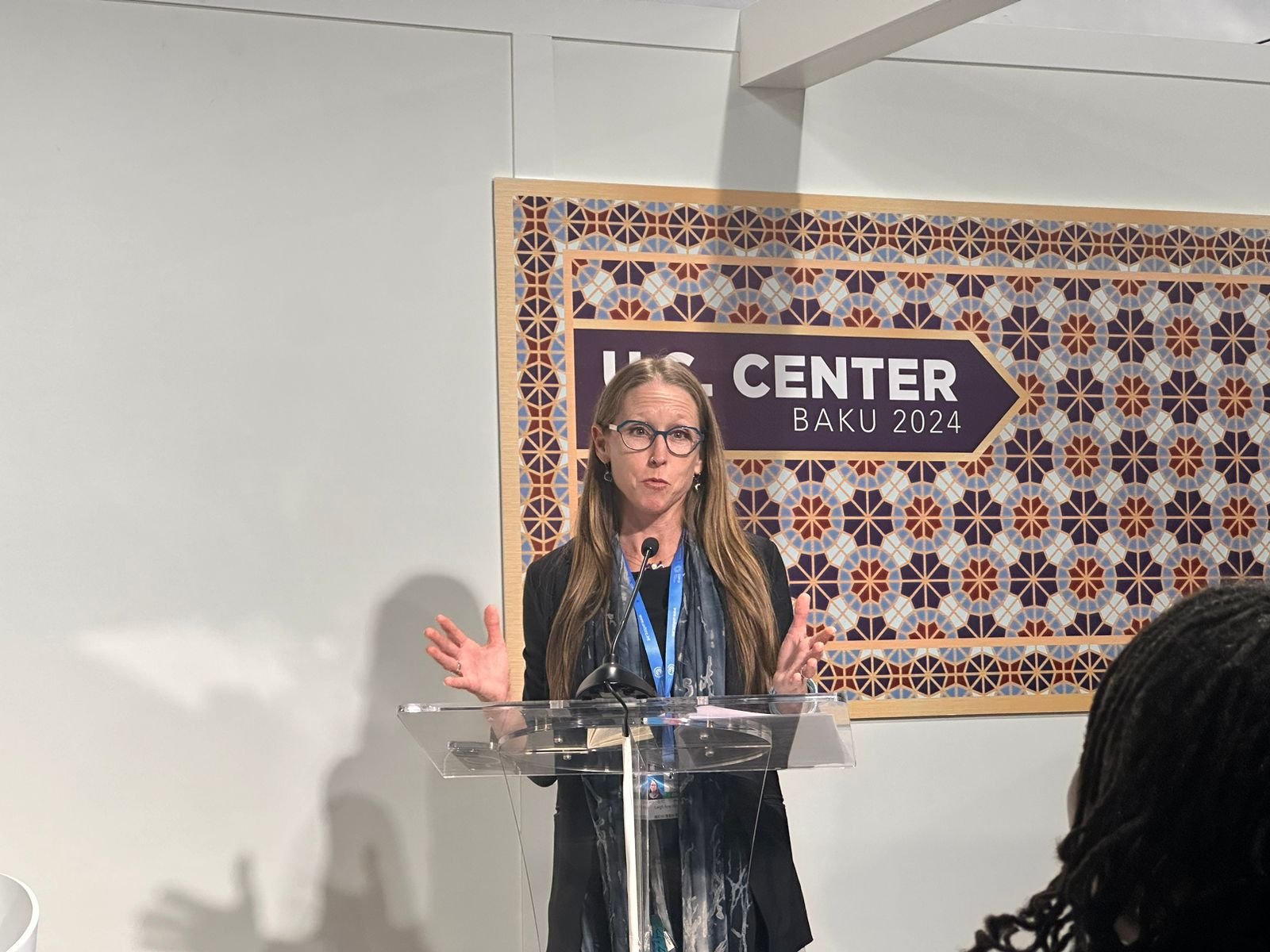
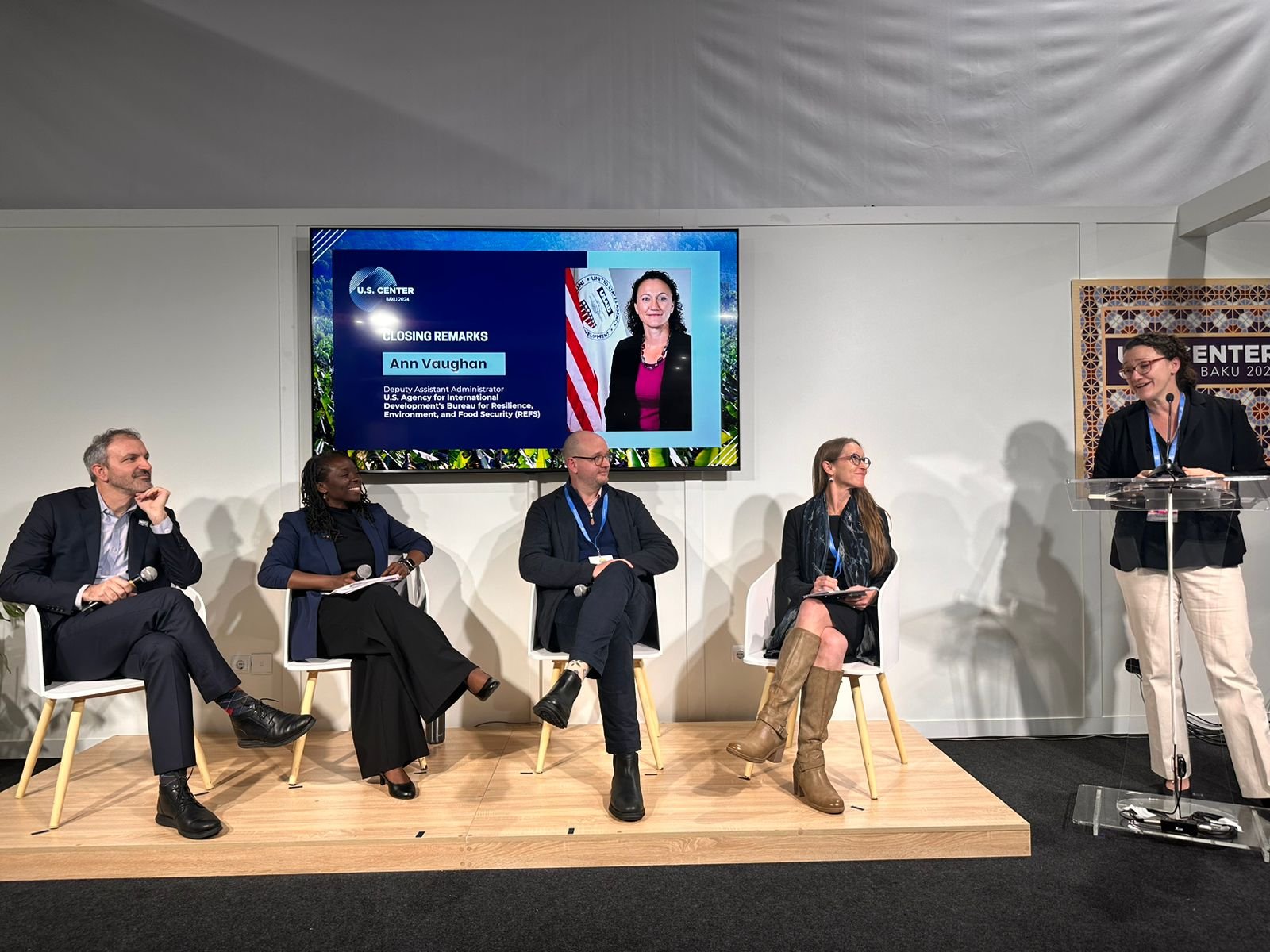





Soil Health
The Soil Health session was organized by GP Cotton Holdings and Emerging Ag at the Azerbaijan Pavilion, and brought stakeholders from across the agricultural and environmental sectors to discuss best practices, innovations, and policy interventions for improving soil health.
Soil health is a unifier across sectors and scales, and this session’s speakers were adept at underscoring the centrality of soil health for achieving multiple outcomes for contributing to global efforts in climate adaptation and achieving the Sustainable Development Goals (SDGs). The event aimed to inspire collaboration and action to support sustainable soil management practices,
Key messages:
Soil Health is Fundamental to Agricultural Sustainability: Healthy soil is essential for agricultural productivity, food security, and climate resilience. Maintaining and improving soil health is key to sustaining ecosystems and enhancing our ability to sequester carbon.
Cross-Sector Collaboration is Vital: Successful soil health management requires collaboration between policymakers, industry leaders, researchers, and farmers to implement scalable and sustainable soil management practices.
Innovative Technologies Drive Soil Health Improvement: Advances in soil monitoring technologies, regenerative farming practices, and climate-resilient crop production are crucial for enhancing soil health in agriculture.
Policy and Investment Support Can Scale Soil Solutions: Strong policy frameworks and strategic investments in research and infrastructure are critical to promoting widespread adoption of sustainable soil management practices.
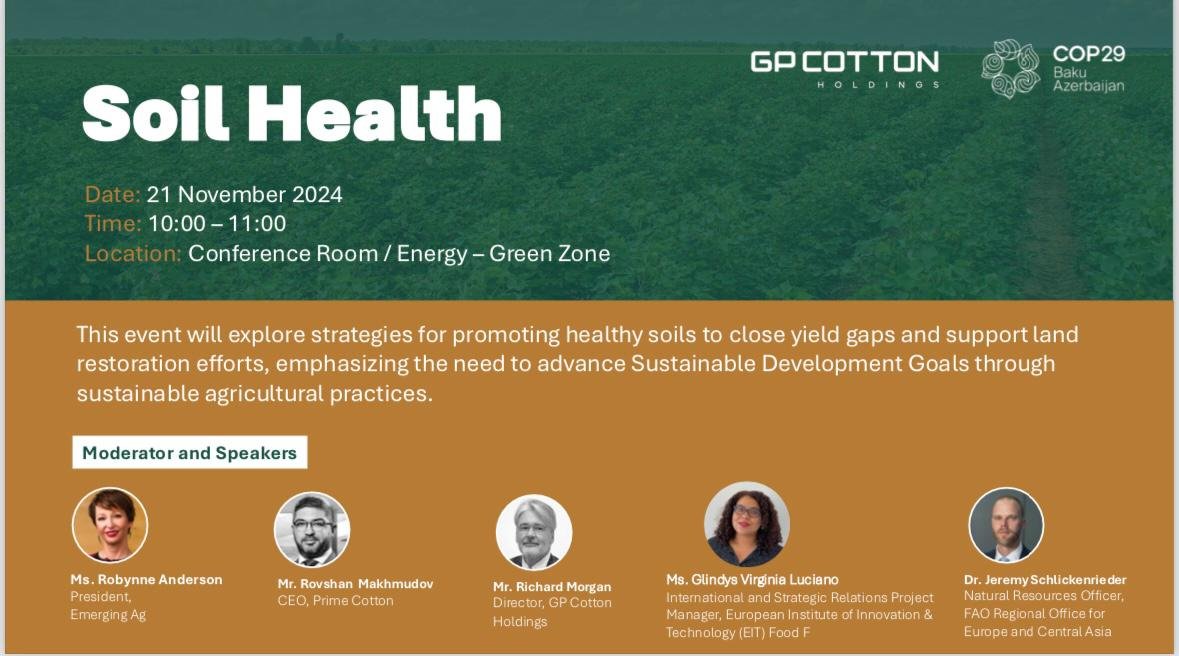
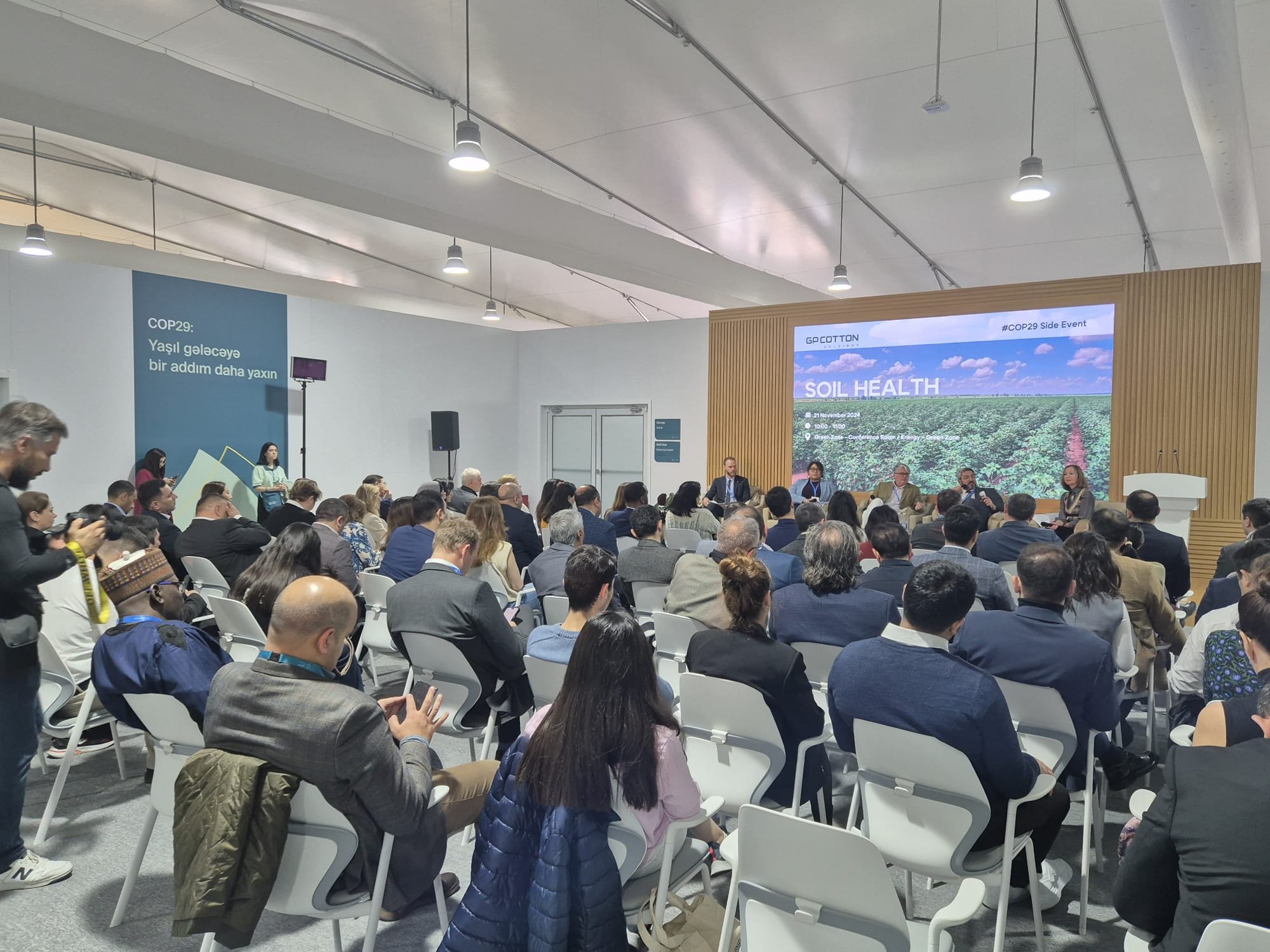
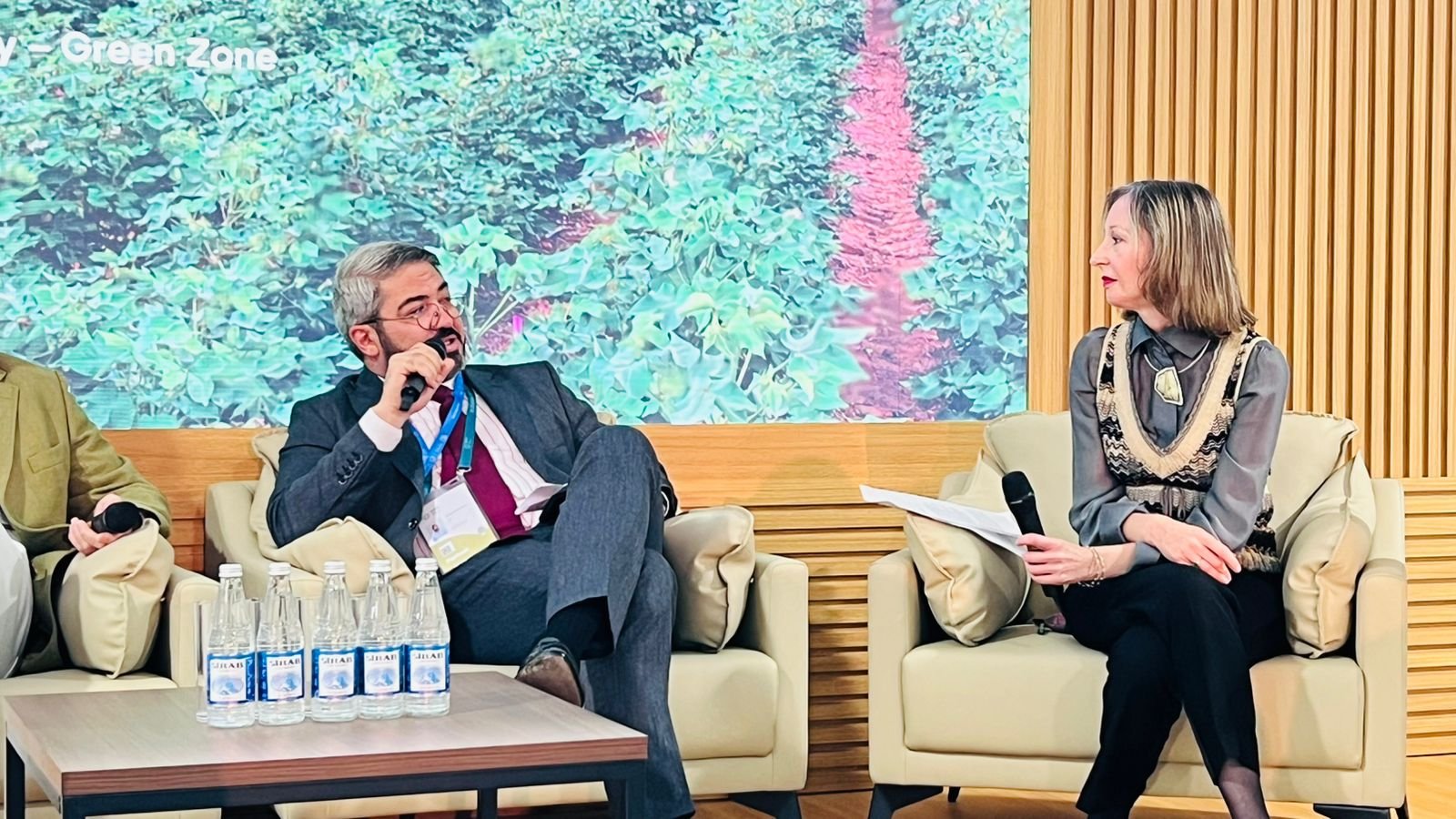

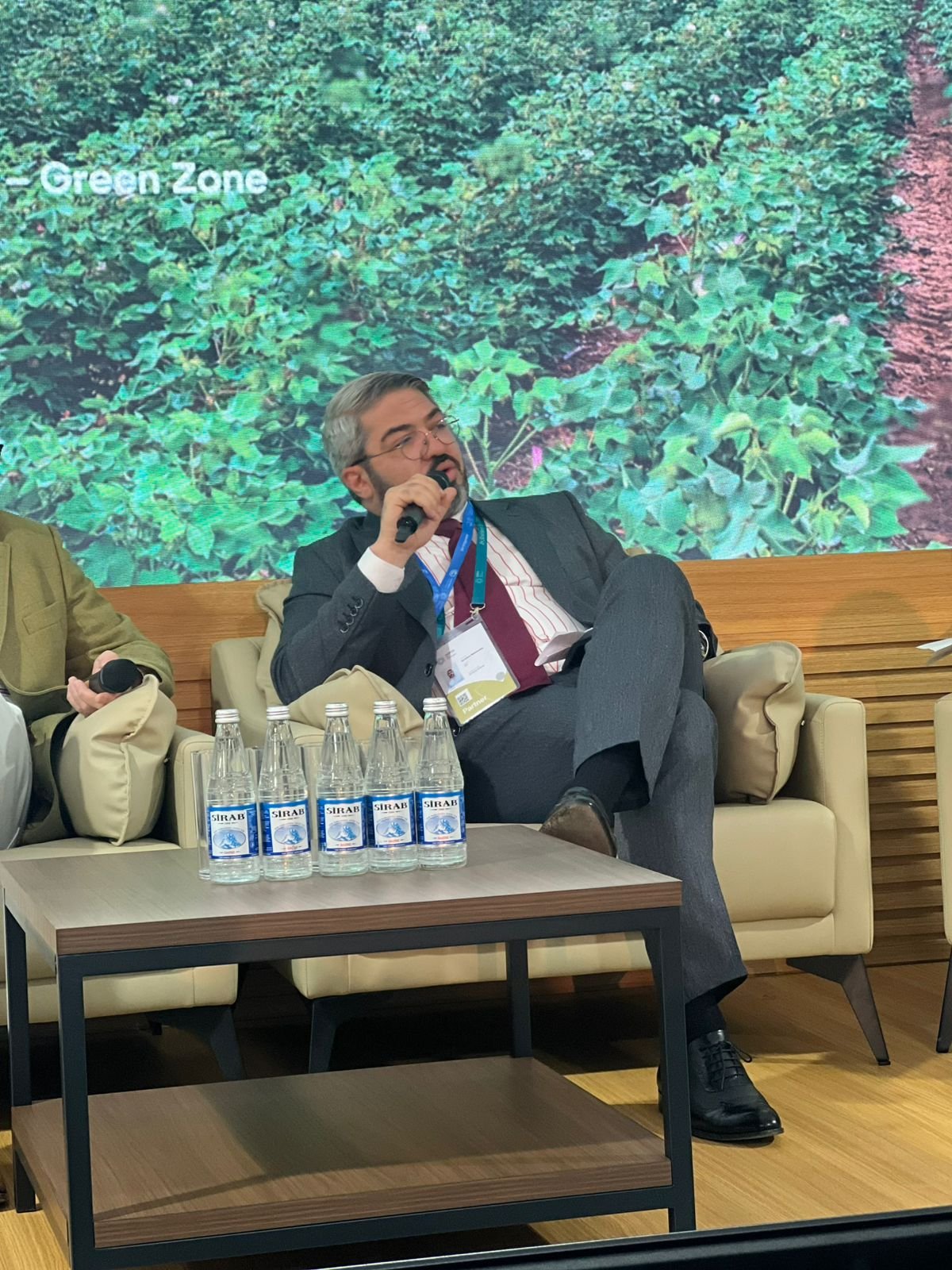

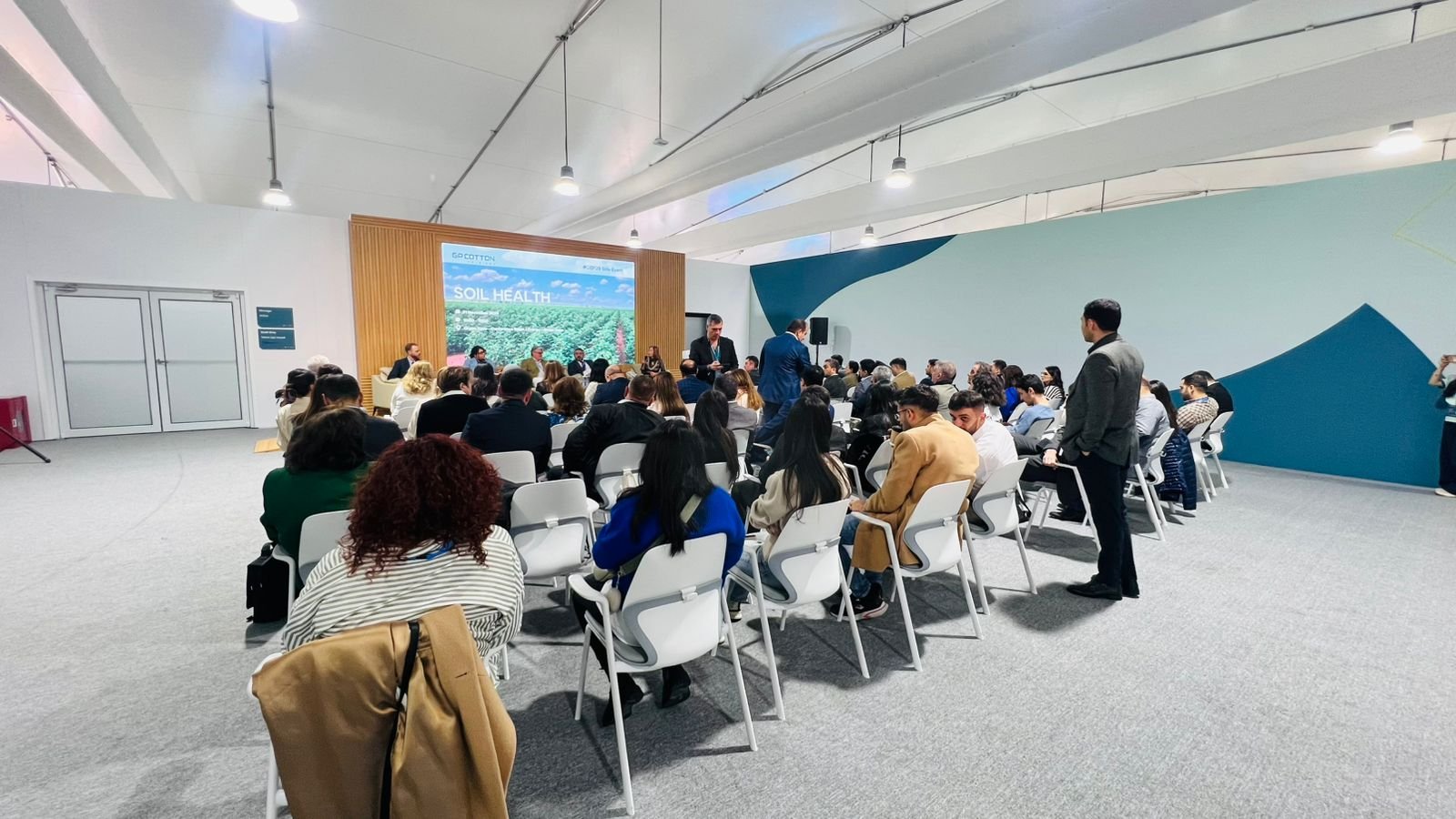

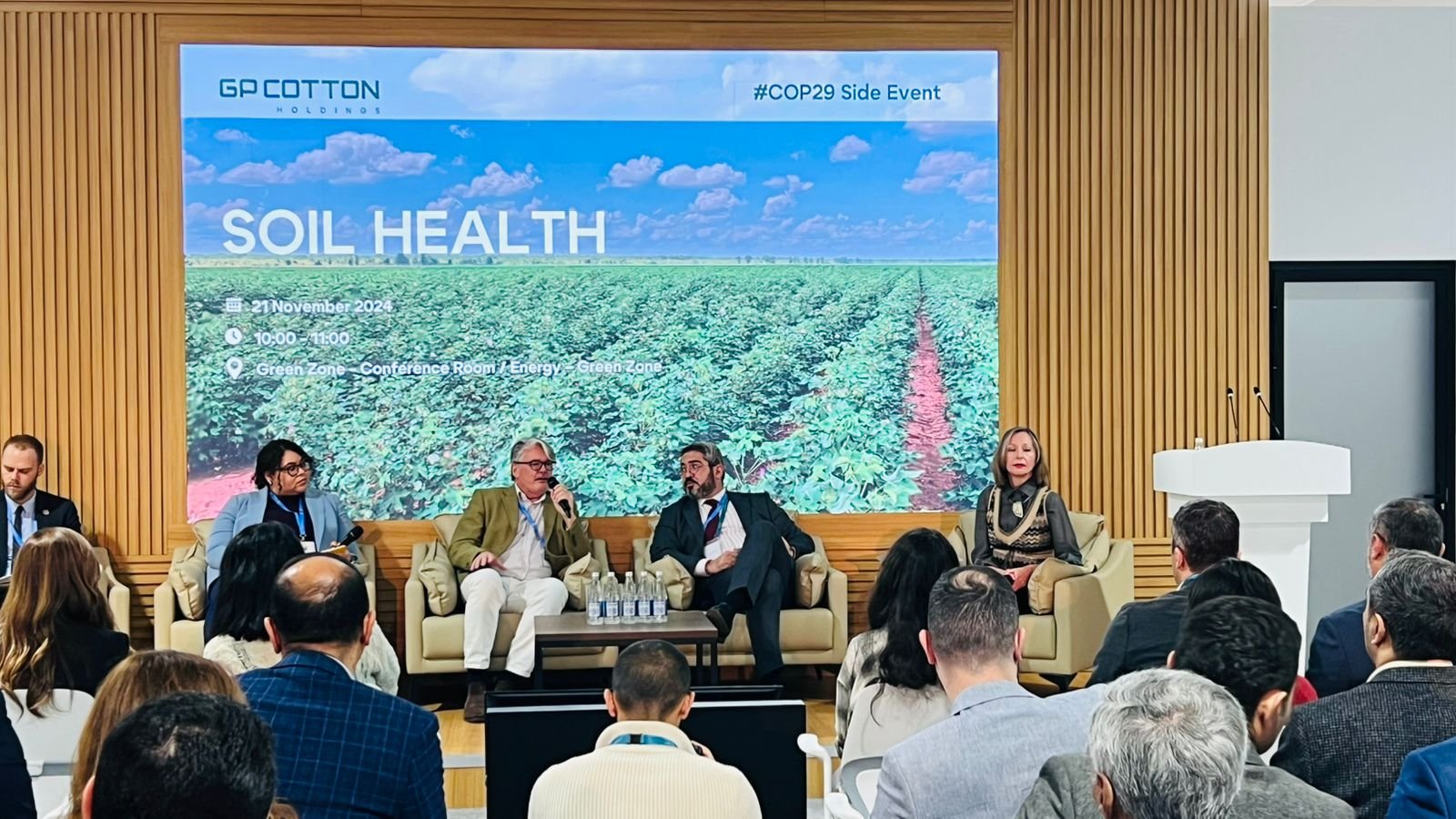
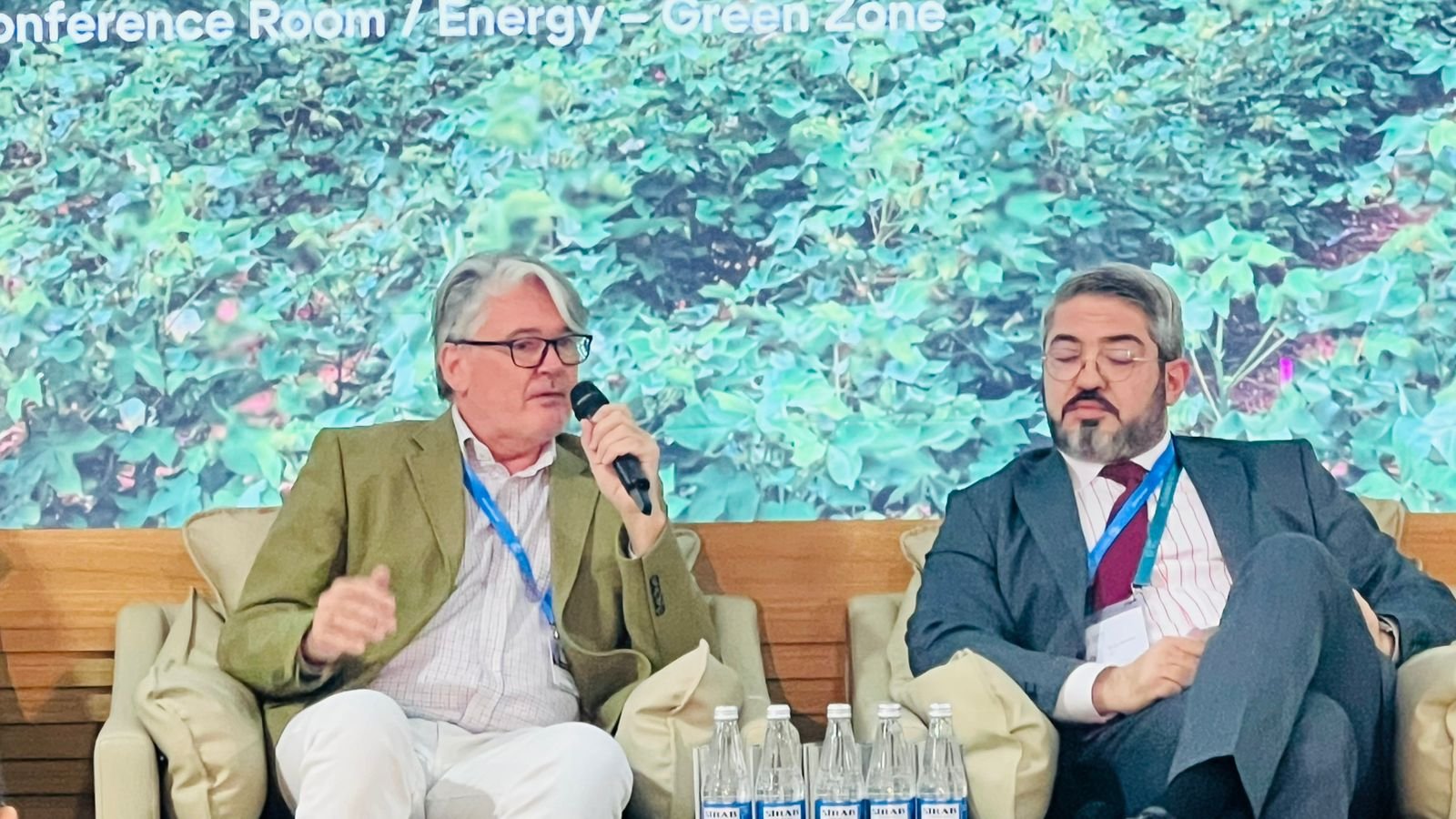
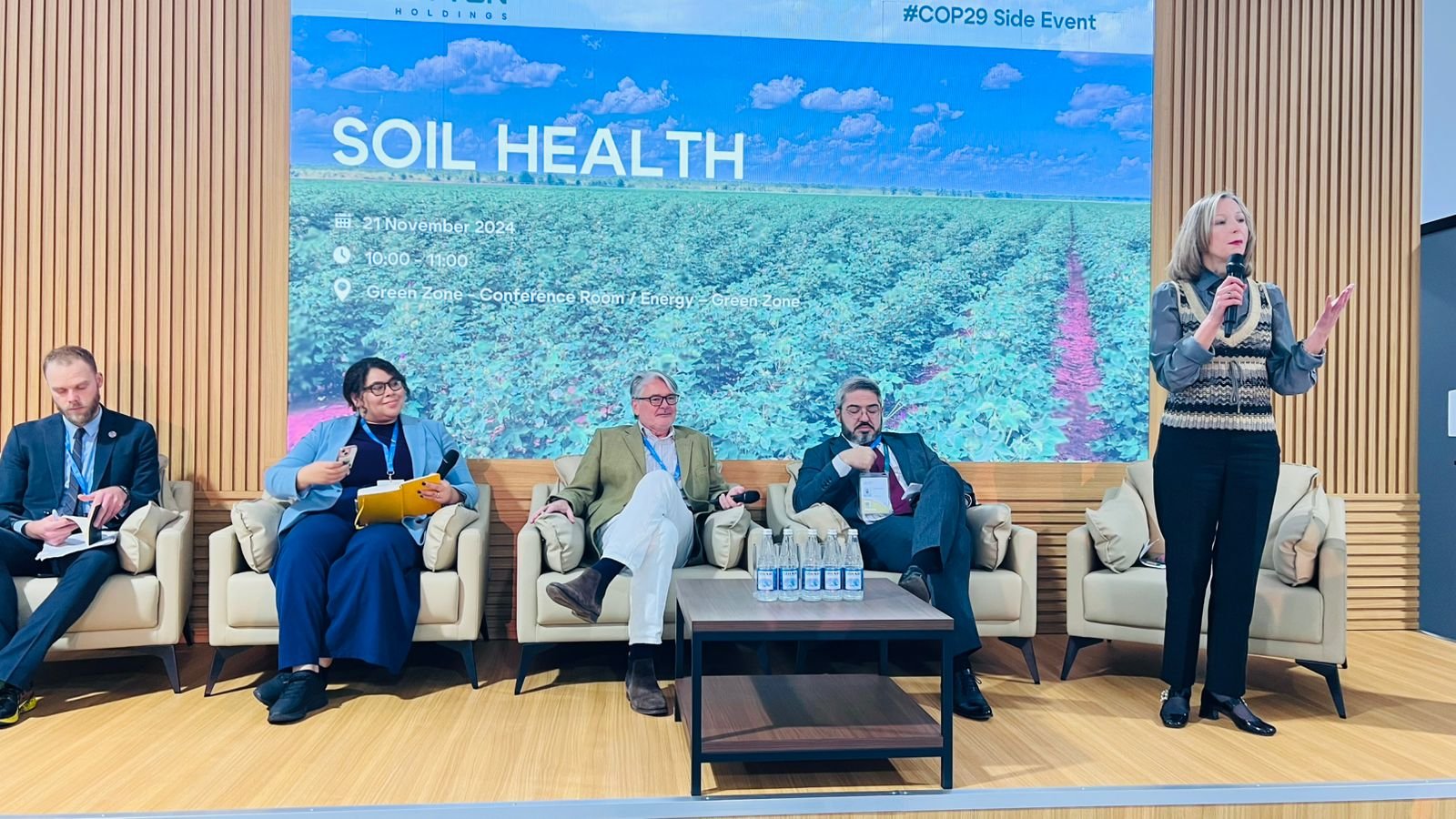
Toward UNCCD COP16
With one week to go before the UN Convention to Combat Desertification COP16 in Riyadh, Saudi Arabia, these COP29 dialogues were critical and timely for connecting the objectives of the three Rio Conventions and looking toward the next set of negotiations.
Join us at COP16 and beyond.

